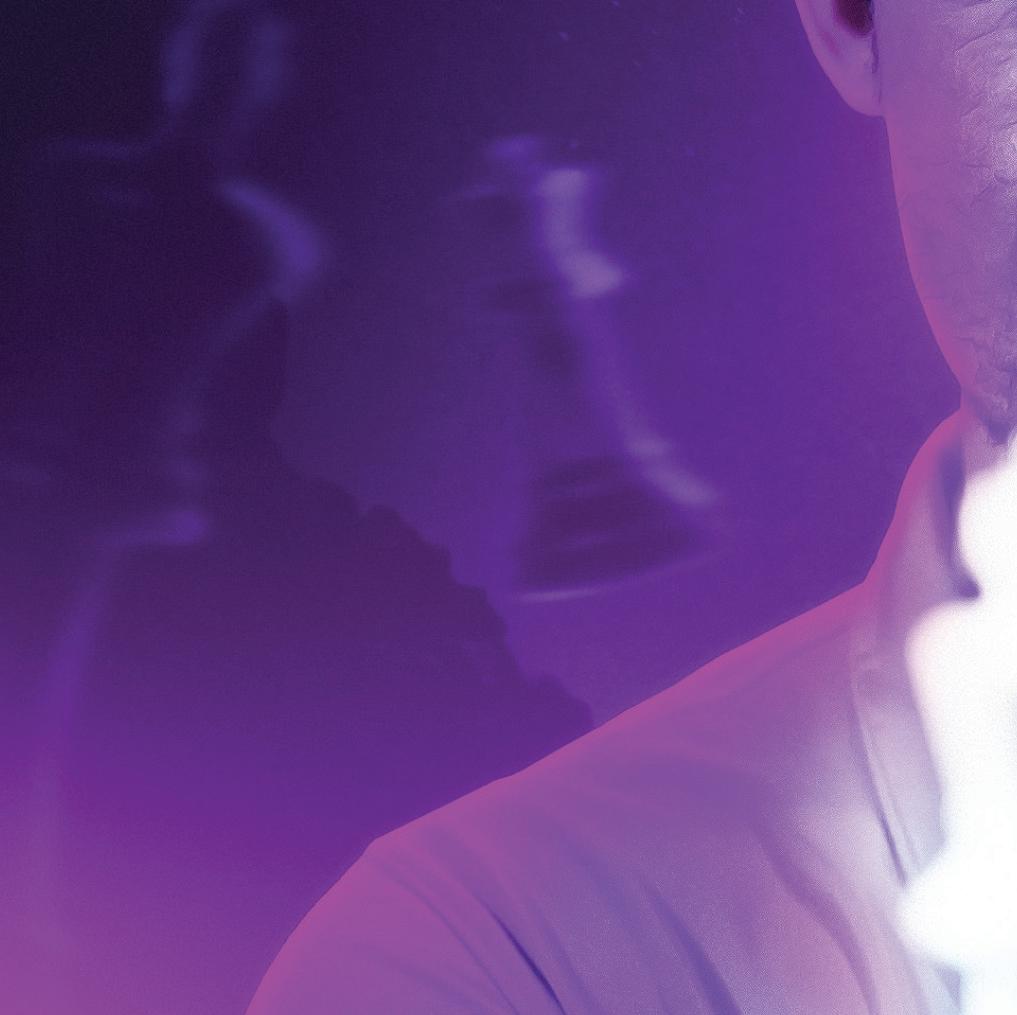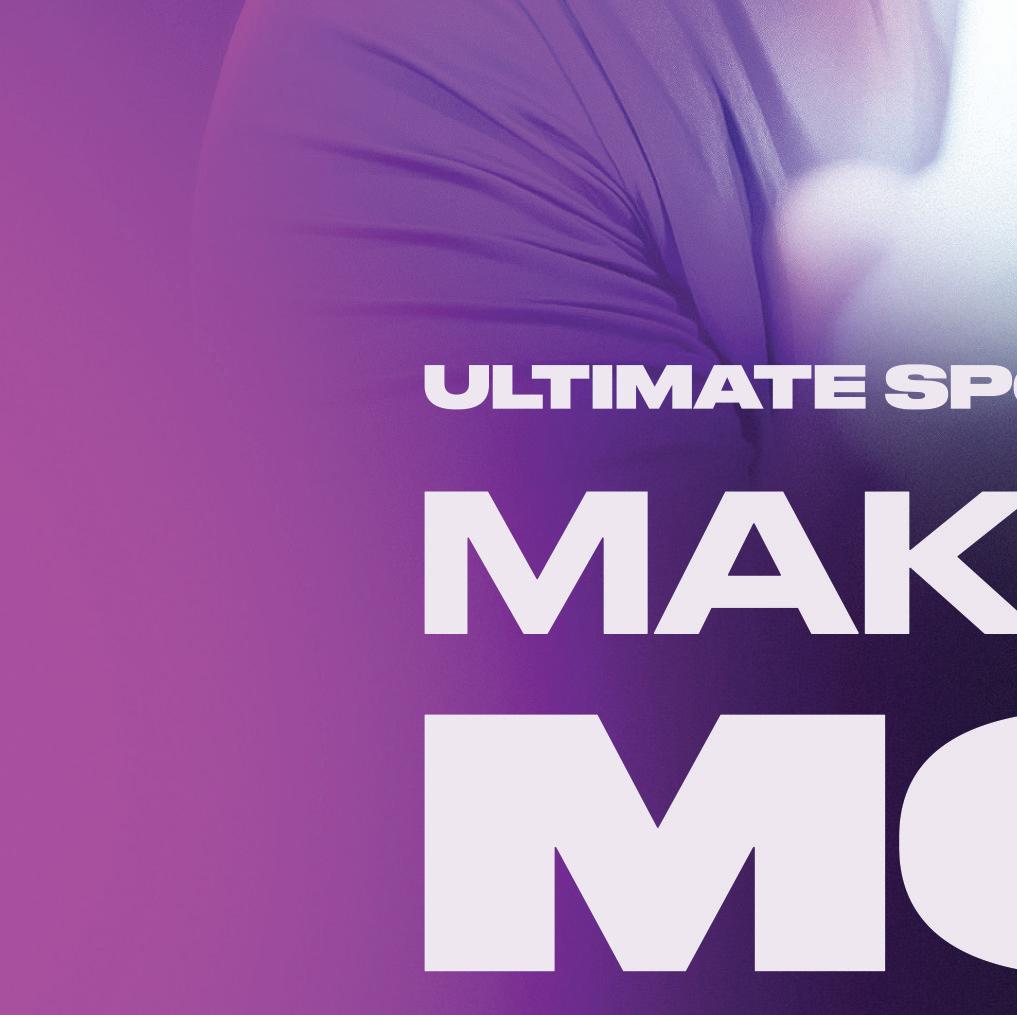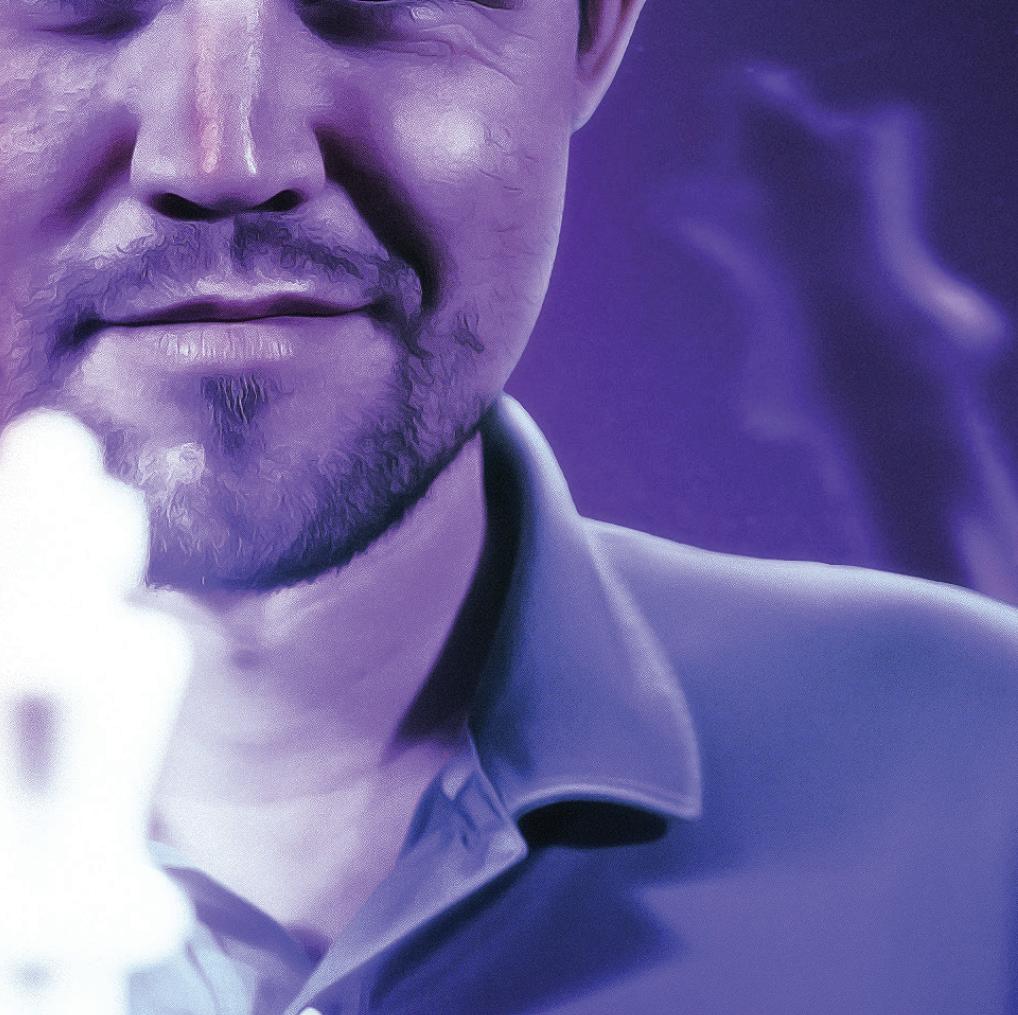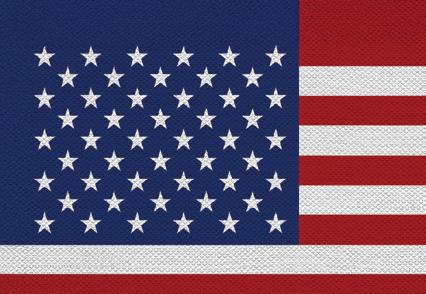

INSIDE
Betting data from the FIFA Club World Cup How do US operators fare in the off-season? DFS in California – what’s the state of play?














INSIDE
Betting data from the FIFA Club World Cup How do US operators fare in the off-season? DFS in California – what’s the state of play?














Gambling Insider looks into the rise of influencers within US sports betting marketing, as well as their impact across Latin America





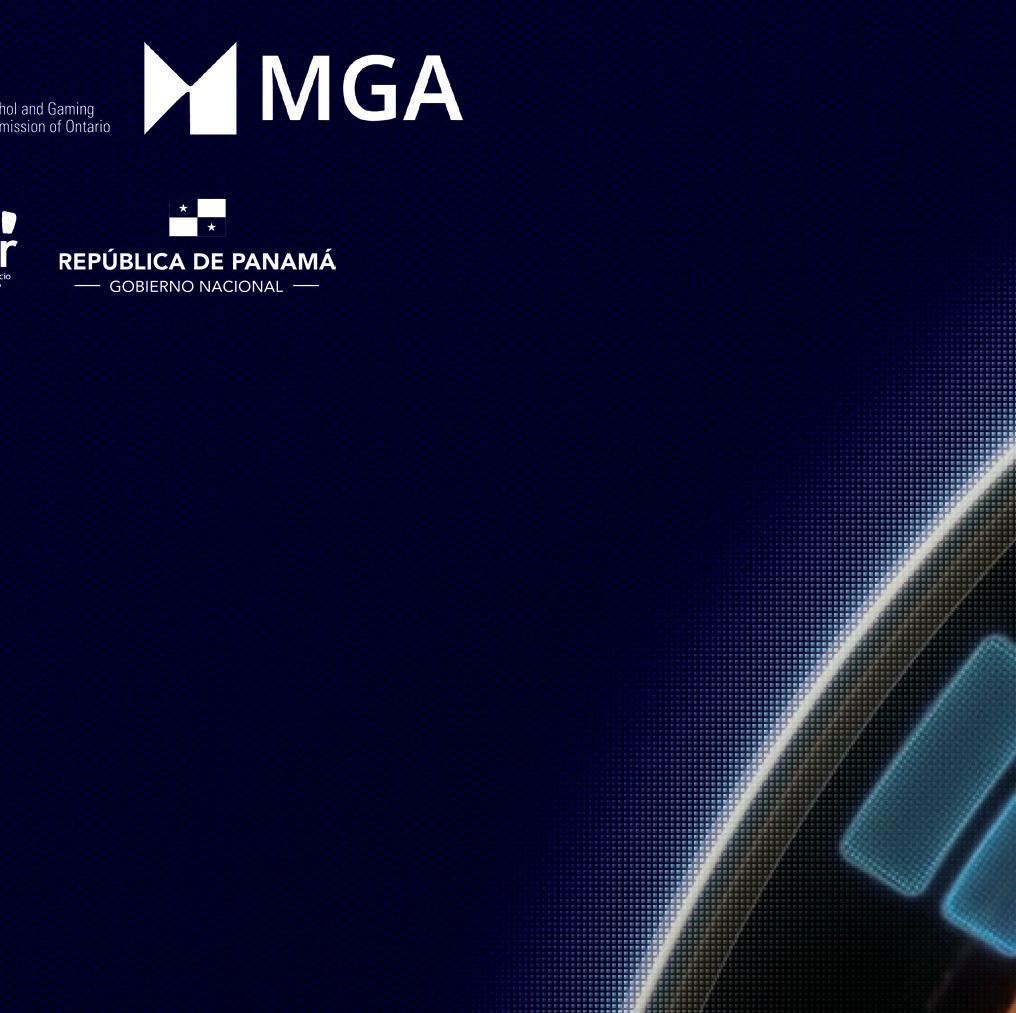







































The way of the world is changing. More precisely, how media is being consumed has already undergone immense change.
Yes, television is still around (and so too print magazines like this one). But watching the latest Netflix or Peacock series is far more important today than catching the newest episode of a 40-year-old soap opera on national TV.
Social media – and in particular influencer marketing – has embodied this change. It is a far more personal – and perhaps lucrative – method of engaging the audience of today.
Of course, traditional methods are still paramount, no pun intended, with gambling operators funnelling huge investment into TV advertising, sports sponsorships and the like. But there is so much value to be found in Instagram, X/Twitter, YouTube and more.
On the US side, an influencer who works with PrizePicks takes part in our cover feature, exploring the exact appeal of this personalised marketing route. Rather than celebrities who flash across your screen with a thumbs up and a smile, influencer marketing can involve a brand ambassador actually using an operator’s site, placing their own wagers, then posting a video analysis explaining precisely why. Players can engage in discussion with that very ambassador, creating an almost-incomparable rise in engagement.
In Latin America, however, influencer marketing has taken a very different, darker turn already. Perhaps it is my naivety, but as Gambling Insider Editor I was yet to come across anything as brazen as the approach of so many LatAm operators and influencers. Despite a whole national enquiry into these dealings in Brazil, there is still no clear understanding or regulation of how influencers and operators should work together responsibly.
The whole influencer phenomenon is most apparent in countries like Brazil and Argentina, where the popularity of one individual – that a typical gambling CEO may never have heard of –will carry far more weight with millions of followers than a famous athlete or politician.
But the dangers of that very influence going unchecked are also most apparent in South America. Indeed, there are numerous arrest warrants still active, after masses of players were duped into thinking the Fortune Tiger (“Jogo do Tigrinho”) slot possessed a glitch that would guarantee bettors lavish millionaire lifestyles, involving fast cars and even faster winnings.
We zone in on both influencer marketing in Brazil and Argentina in our cover section as a result, discussing the subsequent regulatory dissonance and what can be done to combat this in future.
Elsewhere in this Sports Betting Focus , we look at how US operators fare during the NFL off-season, as well as the undetermined status of daily fantasy sports’ legality in California. There is also a 20-year anniversary for DS Virtual Gaming – a landmark worth celebrating in today’s dynamic and rapidly changing industry.
COO, EDITOR IN CHIEF
Julian Perry
EDITOR
Tim Poole
Tim.Poole@gamblinginsider.com
SENIOR STAFF WRITER
Beth Turner
STAFF WRITERS
Will Underwood, Rory Calland
CONTENT WRITER
Megan Elswyth
LEAD DESIGNER
Claudia Astorino
DESIGNERS
Olesya Adamska, Callum Flett, Gabriela Baleva
JUNIOR DESIGNER
Medina Mammadkhanova, Monika Petrova
ASSISTANT DESIGNER Tanya Aleksova ILLUSTRATOR
PUBLISHING ASSISTANT
Ockenden
(0)
Juqula Michael.Juqula@gamblinginsider.com
Tel:
Tel: +44 (0) 203 787 4615 Irina Litvinova
Irina.Litvinova@gamblinginsider.com
Tel: +44 (0) 203 855 0662
BUSINESS DEVELOPMENT MANAGER - U.S.
Tel: +1 702 850 8503 AWARDS SPONSORSHIP MANAGER
Pugh
Michelle.Pugh@globalgamingawards.com
Tel: +44 (0) 207 360 7590
With panel reviews, interviews, features and company profiles completing the rest of this issue, I’ll give my final shoutout to our exclusive Betby data, assessing betting trends during this summer’s FIFA Club World Cup.
There may always be more pound-for-pound revenue in online casino than sports betting, but let’s not forget what unites the masses. I for one still live for sport as a spectator and, combined with the positive impact responsible gambling can have, sports and betting remain a powerful combination.



CREDIT MANAGER Rachel Voit
WITH THANKS TO:
Betby, DS Virtual Gaming, Marc Zwillinger, Araksi Sargsyan, Data.Bet, Bart Snoeks, SportGenerate, Tomás García Botta, Augustín Díaz Fúnes, Trent Attyah, Mike Quigley, Kevin Hennessy, Greg Karamitis & Les Ottolenghi.











06 THE TAX MAP


Gambling Insider looks into which states are raising sports betting tax rates in 2025
08 DATA: CLUB WORLD CUP
Data from Betby’s operator network highlights betting trends from the 2025 FIFA Club World Cup
16 IGB PANEL REVIEWS
We report from a sports betting-related talk from London
18 QUIET SEASON
Major US operators share how they retain positive activity in the NFL off-season
22 INFLUENCERS WINNING HEARTS & MINDS
Gambling Insider takes a deep dive into the emerging trend of influencer marketing – focusing first on the US
27 A MATTER OF INFLUENCE
Influencer marketing is shaping perceptions in Argentina, but not in a positive way...


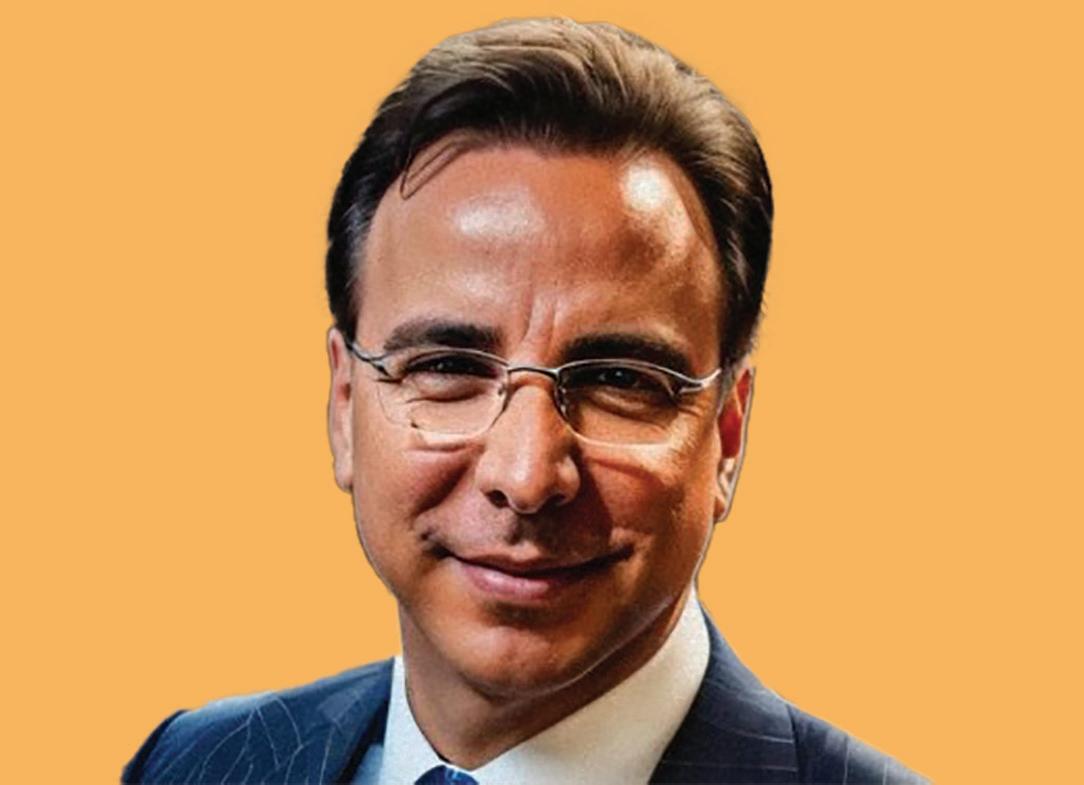
31 ONCE UPON A TIGER
Influencers have been a huge topic of discussion in Brazil, even leading to a national inquiry...
38 TAKING THE REINS
VIP Play CEO Les Ottolenghi discusses his iGaming career and appointment to the top job
42 AMBITION & BELIEF
DS Virtual Gaming Chief Commercial Officer, Araksi Sargsyan, reflects on the company’s journey on its 20-year anniversary
44 TAXATION IN THE NATION
Gambling Insider explores the potential ramifications of rising tax rates in the US sports betting landscape
48 UN-SOLD GROUND
A DFS legal expert speaks with Gambling Insider about the legal contention in the state of California
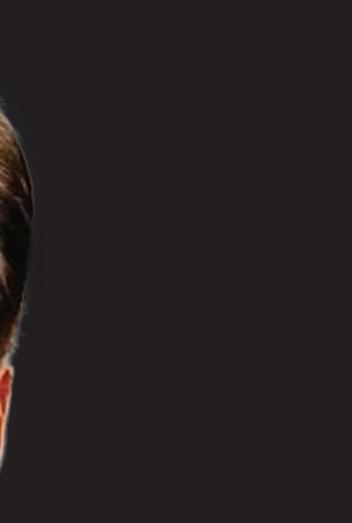
Gambling Insider looks into which states are raising sports betting tax rates in 2025, as well as some of the early responses from sportsbooks

While the state will not be raising its sports betting tax rate in 2025, Colorado Governor Jared Polis chose to eliminate an operator’s ability to deduct a certain percentage of “free bets” from its taxable revenue each year. House Bill 1311 will gradually phase out the deduction until it is completely removed by 1 July 2026, and is expected to reduce the amount of promotions offered by sportsbooks throughout the state. The new law went into effect on 1 July, limiting free bet deductions to 2% per month before falling to 1% in January 2026.

Wyoming’s Select Committee on Capital Financing and Investments proposed legislation in June that would double the online sports betting tax rate in the state from 10% of operator revenue to 20%. The Committee believes an increase to the tax rate would align Wyoming with other states in which the offering is legal, as the average figure across the US is approximately 19%. The legislation has not been approved at the time of writing, but would also increase the tax rate on skill-based games in Wyoming from 20% to 25%, as well as the rate on horse wagering from 1.5% to 2.5%.

> 21.5%
Louisiana will also join other states around the US in increasing its tax rate on sports wagering activity, as Governor Jeff Landry signed House Bill 639 into law in June, raising the current tax rate of 15% to 21.5% beginning 1 August. In addition to increasing the state’s sports betting tax, the bill will create the Supporting Programs, Opportunities, Resources and Teams Fund, set to receive 25% of the revenue generated from sports wagering. The Fund can be used by athletic departments of NCAA division one programs for the benefit of student athletes, as the 21.5% tax aligns online sports betting with the tax rate enforced upon retail wagering activity in Louisiana.

In response to the decision by Illinois lawmakers, both FanDuel and DraftKings will be enforcing a $0.50 per wager transaction fee for all bets placed in Illinois, while Fanatics also announced a $0.25 per bet fee beginning in the fall. Flutter, the owner and operator of FanDuel, stated it would cease enforcing the fee should the Illinois Government choose to repeal the tax increase. Fanatics will most likely not be affected by the $0.25 to $0.50 increase following the first 20 million wagers, as only DraftKings and FanDuel are projected to witness this level of activity within the state. ESPN Bet and Circa Sports, by contrast, have introduced minimum wager requirements.


Senator John Keenan proposed the Bettor Health Act in early 2025, which looks to raise Massachusetts’ tax rate on online betting platforms from 20% to 51%, ban sports betting advertisements during game broadcasts and limit how much people can bet until an affordability check is conducted. Sports Betting Alliance, a trade association representing sportsbooks such as DraftKings, FanDuel and BetMGM, says the increase will push Massachusetts bettors toward unregulated offerings and still have a negative effect on the tax revenue generated by operators. A committee hearing on the Bettor Health Act is still expected to be held by state lawmakers at the time of writing.
13%

Governor Phil Murphy originally looked to increase the sports wagering tax rate in New Jersey from 13% to 25% as part of his fiscal year 2026 budget proposal, but watched on as fellow lawmakers agreed to a 19.75% tax on all operators beginning next year. The increase was projected to add $402.4m in tax payments to New Jersey, designed to help offset a reported $58.1bn of spending in 2026, according to the newly approved budget. The figure represents a record high for state legislators, who also increased the tax rate on iGaming from 15% to 19.75%. ILLINOIS
Despite the state already implementing an adjusted gross sports wagering receipts tier system for taxes paid by operators, lawmakers have chosen to enforce a $0.25 fee for the first 20 million wagers accepted by a sportsbook, increasing to $0.50 for any wagers taken thereafter. The tax levy was announced following the approval of a new budget by both chambers of Illinois’ state legislature. The state’s Gaming Board reported total sports wagering handle of approximately $445m for April 2025 between professional, college and motorsport events. Operators have responded by either passing on a transaction fee to customers or enforcing a minimum wager – making Illinois an unprecedented sports betting market in this regard, and a fascinating case study.

In May, Maryland Governor Wes Moore officially signed the Budget Reconciliation and Financing Act of 2025, increasing the sports betting tax rate from 15% to 20%. Moore proposed legislation earlier in the year that would have raised the tax rate to 30%, but the state’s House, Ways and Means Committee voted to drop the tax rate to 20% – aiming to help reduce a $2.7bn budget deficit. As part of the bill, 95% of sports betting tax goes toward Maryland’s public education fund, while the remaining 5% is shared with the state’s general fund.

Despite North Carolina witnessing one of the more successful rollouts of sports betting in the offering’s history following its legalisation in 2024, lawmakers are already attempting to increase the tax rate from 18% to 36%. The budget proposal has not been signed into law at the time of writing, but the state has already generated $94m in tax revenue from sports betting throughout fiscal year 2025 alone, exceeding projections from the North Carolina State Lottery Commission. If approved, the proposed tax rise would officially go into effect for operators on 1 October 2025.

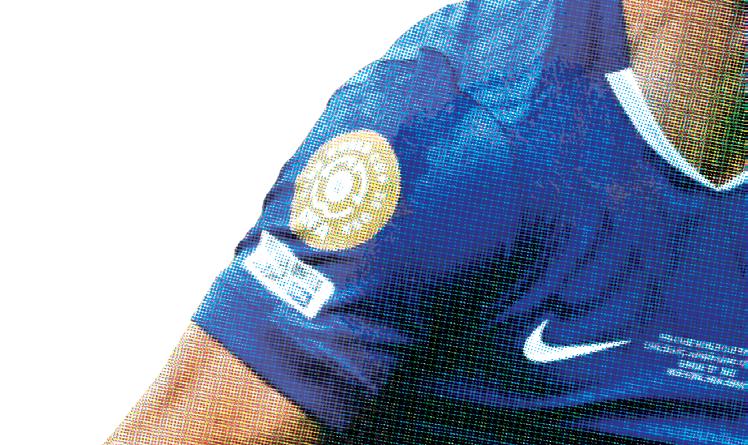





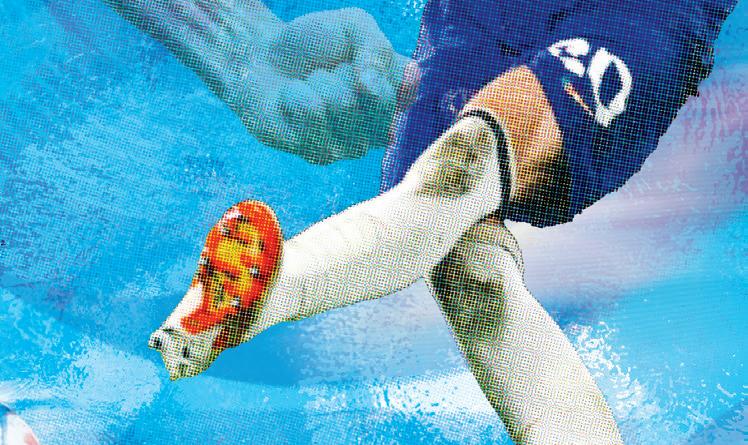



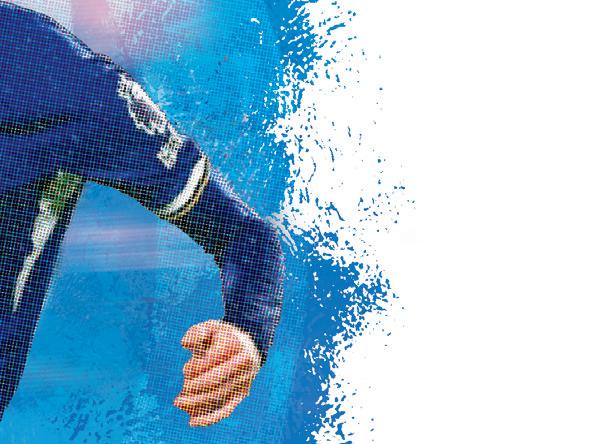


Sports betting supplier Betby provides Gambling Insider with exclusive data from its operator network on the first FIFA Club World Cup since the tournament’s new format was announced
- According to data from Betby’s partner network, the trend of major tournaments seeing more prematch betting than in-play continued at the FIFA Club World Cup
- However, another trend consistent with other major tournaments persisted – in terms of turnover (total amount of money wagered), this was much more even. Indeed, live turnover represented 45.3%, with pre-match turnover amounting to 54.7%
- This suggests players betting live were betting more con dently and with greater sums
- Individually, only twp PSG players made the top 10 in terms of attracting bets across all player markets. By comparison, four Real Madrid players featured
- Only one player featured from champions Chelsea (Cole Palmer), while the eternal greatness of Lionel Messi attracted the highest turnover – despite his team exiting at the group stage, and despite him being 38 years of age...
- 20% of bets were placed on player shots on goal – the highest of any player market, demonstrating the growing popularity of player stats markets
- Turnover, though, was still highest for player goals – and rather high for VAR too
- Huge tournament favourite PSG was the most bet-on team, which suited operators right down to the ground after PSG lost to Chelsea in the nal
- While eventual champions Chelsea was the third-most bet-on team, Inter Milan actually saw the second-most turnover behind PSG. This perhaps suggests some emotional home betting from Italian fans, or credit given for Inter’s run to the Champions League final
- Real Madrid was the most popular team to bet on in the last four, with both PSG and Fluminense – interestingly – generating more wagers than eventual champion Chelsea
- Rather anomalously, though, PSG attracted almost half of all turnover in the semi- nals, far exceeding its three rivals. So whoever was backing PSG... was betting big
12.29% of betting on the FIFA Club World Cup semi-finals was placed via a bet builder
33.39% of all semi-final bets were placed on the 1x2 (result: win, loss or draw) market
- There were no surprises when PSG was made an odds-on favourite for the final, given its Champions League victory and its 4-0 semi-final win over Real Madrid
- Chelsea, though, ensured a superb day for operators, with its 3-0 victory meaning 77.9% of bets and 86.6% of turnover was placed on the eventual losing team (PSG)
- Ousmane Dembele and Desire Doue attracted the most bets out of anyone, when analysing player markets in the nal. In fact, four of the top ve players represented losing side PSG
- Achraf Hakimi’s high ranking represents how well he contributed as an attacking force, despite being a rightback by nature
- Enzo Fernandes, Moises Caicedo and Marc Cucurella –one can speculate – would have generated bets based on their tackling and foul contributions
- Just like in overall tournament betting, the nal saw a majority of bets placed on shots on goal
- The most turnover went on goals, however, while cards were also a signi cant area of interest (they usually are when Moises Caicedo and Enzo Fernandes are playing!)


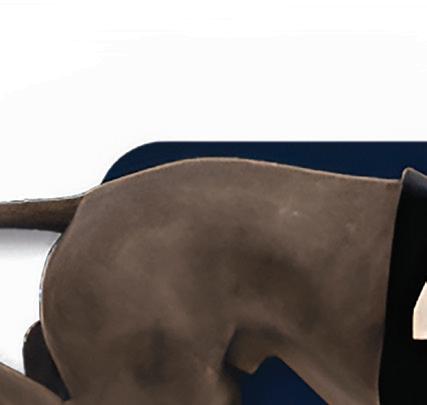

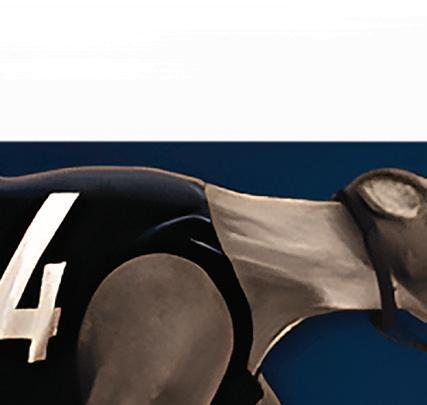



For over 20 years, DS Virtual Gaming has rede ned the virtual gaming experience through innovation, precision and a deep commitment to regulated, responsible markets. As industry pioneers, we’ve consistently anticipated player needs and turned those insights into intelligent product design – delivering engaging content and seamless accessibility anytime, anywhere.
Our latest breakthrough is the launch of proprietary single-player terminals, a product that reflects our forward-thinking philosophy. Now rolling out across Europe, Africa and Latin America, these terminals mark a major step toward our mission: Giving players full autonomy and 24/7 access to the games they love.
At DS Virtual Gaming, we ask one vital question: How can we give players more control over their gaming experience? Years ago, we began answering that question with the launch of the Order Ticket Solution – a system that let players create their own bets and collect tickets after payment at a cashier. This self-service model gave players more freedom and
set the stage for more immersive, user-led gaming.
Our single-player terminals build on that legacy. These fully independent, all-in-one machines give players direct access to our entire game portfolio, day or night, without relying on staff or operating hours. Whether in betting shops, arcades or other entertainment venues, the experience is always just a touch away.
Crafted in collaboration with MIKKA GmbH, a global leader in hardware development, the terminal combines sleek design with smart engineering. Weighing 100 kilograms and echoing the elegance of a premium casino, it’s a showpiece that delivers both performance and presence.
But looks are only part of the story. These terminals are built for plug-andplay simplicity. Operators won’t face long waits for integrations, complex configurations or third-party delays. With DS Virtual Gaming, you get a turnkey solution backed by in-house support – everything you need to go live, fast.
We recognise that many operators already have infrastructure in place. That’s why we don’t ask partners to start from scratch. For those with existing terminals who want to expand their game o erings, we provide custom integration solutions. Even if your current hardware lacks a gaming platform, we can deploy our content in a way that ts your operational setup.
This level of adaptability is why DS Virtual Gaming continues to earn the trust of top operators globally. Our goal is to provide tools that are as flexible as they are advanced.
With our proprietary terminals now active and more innovations underway, we’re shaping the future of gaming environments. As the industry evolves, so does our commitment to delivering secure, scalable and player-centric solutions that meet the needs of modern gaming culture.
At DS Virtual Gaming, we’re not just creating products – we’re building systems that empower players, simplify operations and raise the standard for what virtual gaming can be.
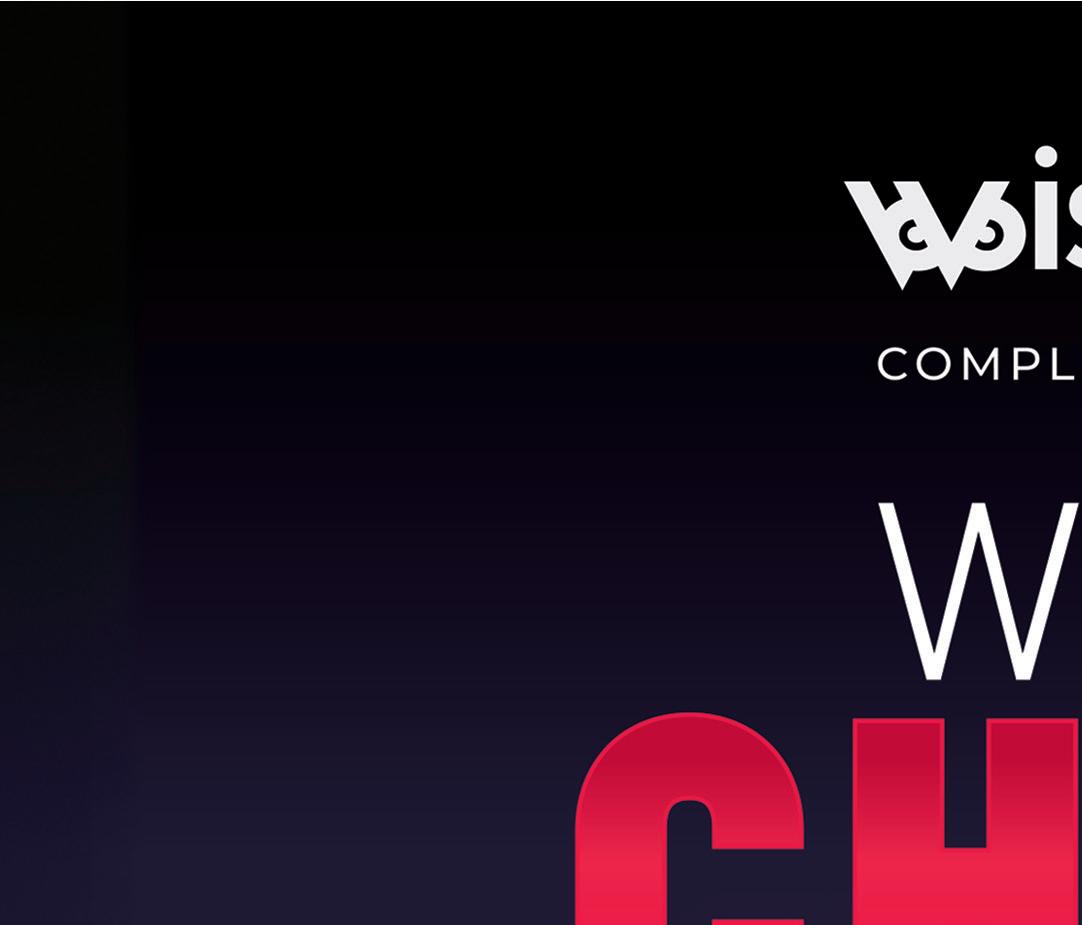
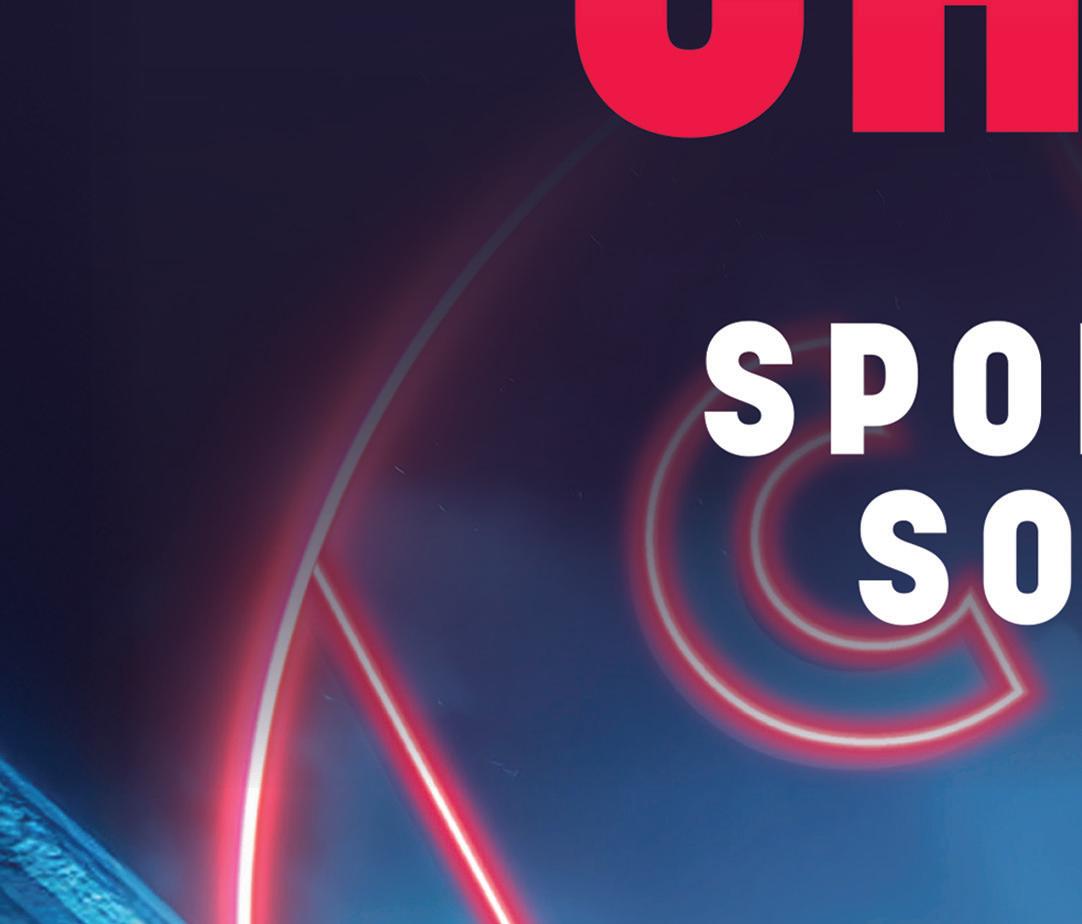

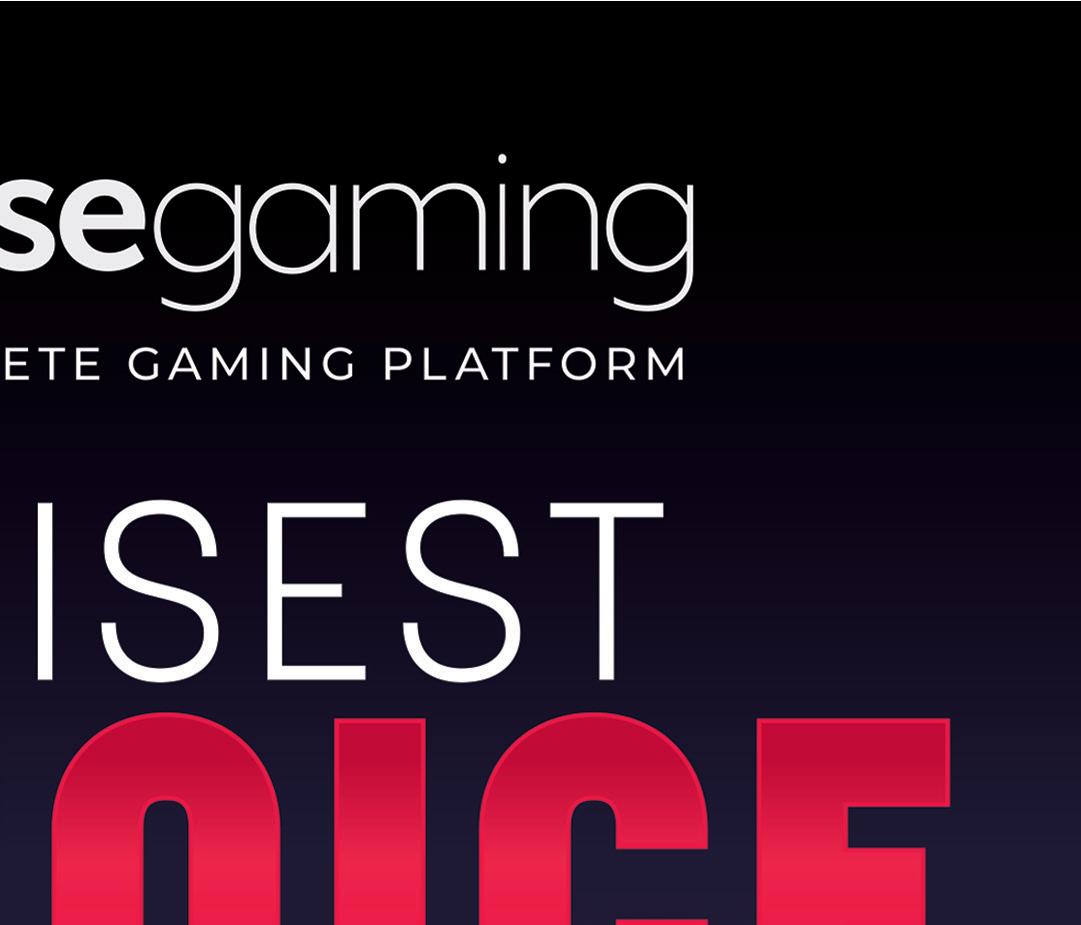
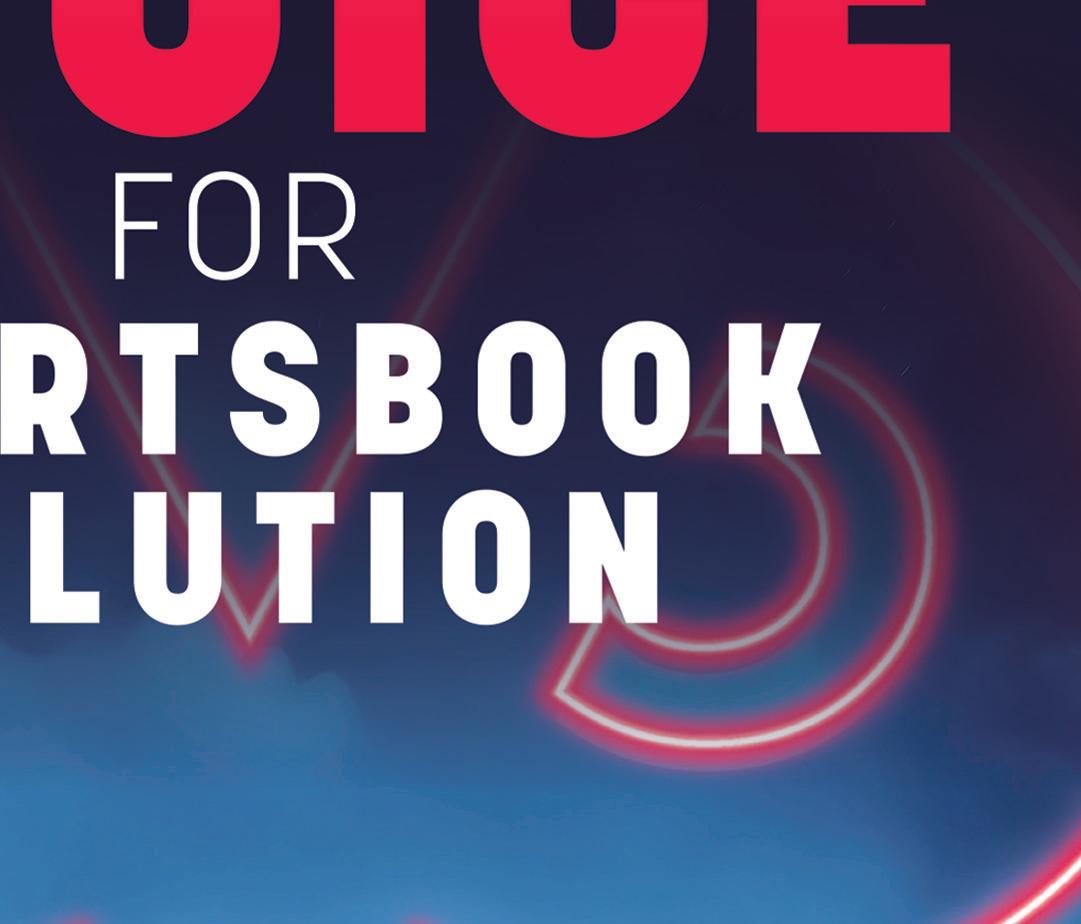

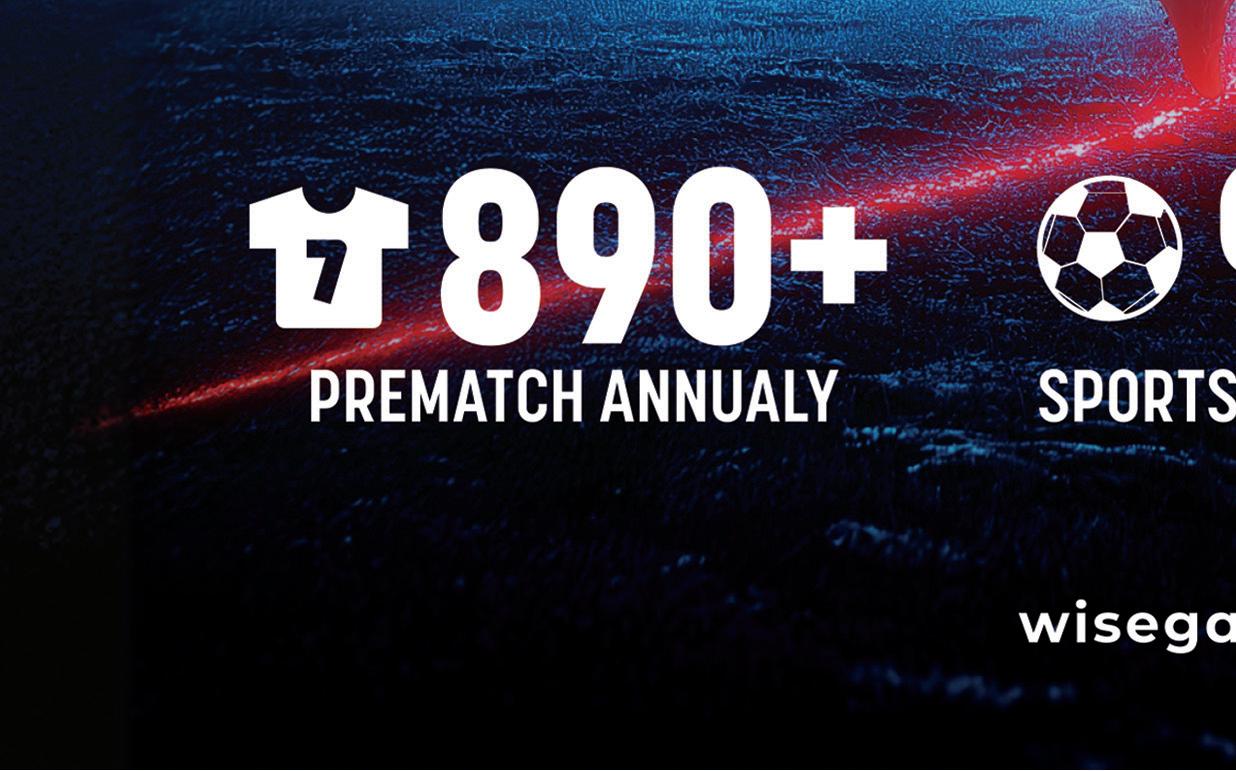
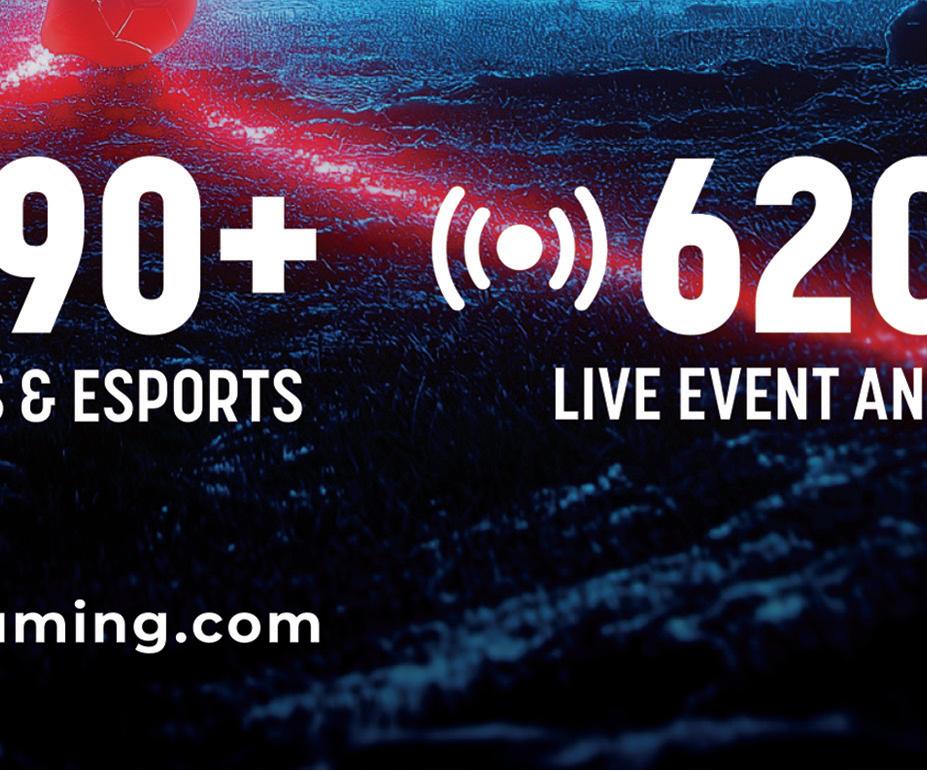


In June 2025, DATA.BET strengthened its portfolio capabilities by adding sports betting and opened a new chapter in the company’s history. The sportsbook covers over 50,000 events per month, featuring over 63 pre-match and 38 live sports, along with 1,000+ available markets. This sports betting launch marks a strategic evolution of DATA.BET’s business model – applying proven technology to a new domain where automation, scalability and operational performance can make an immediate di erence.
DATA.BET’s upgraded solution delivers comprehensive sportsbook functionality through a single integration point. The o ering includes Odds Feed, Risk Management, interactive Widgets, Video Streaming and customisable tools like Bet Builder – all integrated into a single, cohesive system. With a 24/7 in-house trading team ensuring over 93% market uptime, dynamic odds adjustments and automated settlements, operators receive consistent performance across all content types.

providers can integrate using the Single Page Application (iFrame) solution – a process comparable to connecting a new game provider that can be completed within a few weeks. Apart from SPA, there is a possibility of integrating Odds Feed via API for more extensive coverage.
Once integrated, operators access a comprehensive feature set designed to maximise player engagement and betting volumes while delivering a broader, player-centric betting experience. Cashout allows players to settle their bets before the event concludes, both single and multiple bets, and Player Props allows for placing bets on specific actions. Video Streaming covers football, American football, tennis and basketball. These interactive Widgets help turn the operator’s project into a key information source, eliminating the need to seek information elsewhere.
custom engagement modules, this solution allows for faster rollout and better longterm maintainability across product lines.
DATA.BET’s expansion results from the company’s technical capacity are reaching a level where its core models, initially developed for esports, can be e ectively applied to a broader range of disciplines. These models are built to handle large volumes of data with speed, structure and classification accuracy, making them well-suited for the complexities of traditional sports where fast decisionmaking and dynamic market management are required.

The company’s portfolio now includes esports, sports and virtual sports, providing access to all betting verticals through one delivery point. This reduces the time and resources typically required for multi-provider integrations. Betting operators, casinos and platform



Many betting businesses may face signi cant entry barriers when adding a sportsbook vertical, including integration complexity and operational setup. DATA. BET’s offering addresses a clear gap for operators and platform providers who miss out on a sports opportunity.
The primary challenge in the market is that bookmakers must choose between signing up for a complete platform that includes everything from tech to payments or piecing together multiple data sources. DATA.BET identified this massive opportunity for a high-quality, plug-and-play solution that works seamlessly for any market. Clients from Canada, Brazil, Finland, Sweden, Poland, Ukraine and the Philippines have already experienced the benefits of this unified approach, reporting improved operational consistency and faster time to market compared to their previous multi-vendor setups.



A common challenge for operators expanding in the betting space is maintaining consistent product logic and user experience when switching verticals. By offering consolidated infrastructure complete with streaming, pricing tools and

The company maintains complete control through an integrated portfolio of services built and maintained internally. This ensures adaptability and compliance while relying on official data sources to ensure quality, precision and consistency at every stage of the process. The in-house data science team fully adapted its mathematical models, synchronising them with the tempo, segmentation and logic of traditional sports events, developing new classification protocols and pricing mechanics while preserving the speed and consistency of the existing system. From the beginning, the company has focused on building sustainable, long-term technical infrastructure using the synergy of AI automation and 24/7 trader supervision, ensuring stable performance and relying on data-driven systems that support different content types through a single, flexible infrastructure.
DATA.BET’s sports launch represents the next revolution in the company’s history. The initial rollout focuses on high-demand, globally recognised sports and leagues, including football, basketball, tennis and American football, with infrastructure designed to integrate new disciplines e ciently. This allows operators to meet specific audience preferences, offering a wide coverage of sports without compromising performance or quality.


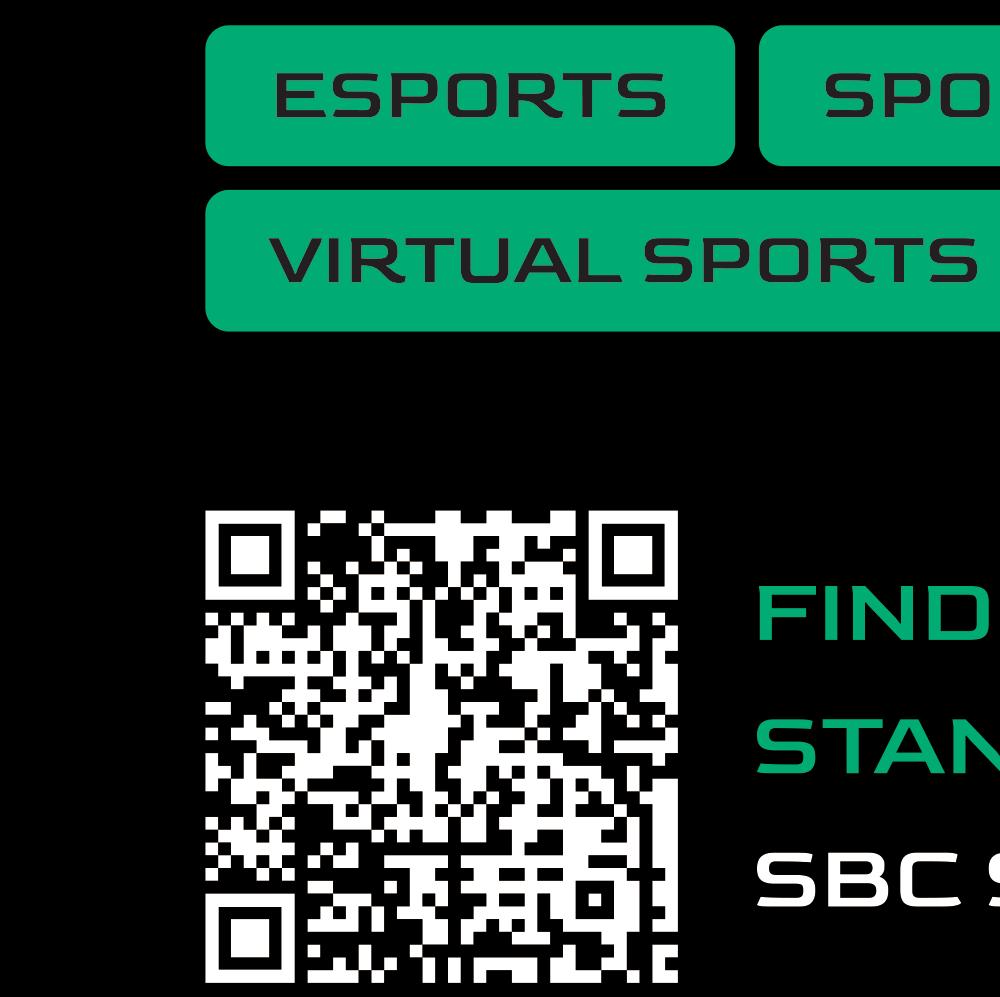

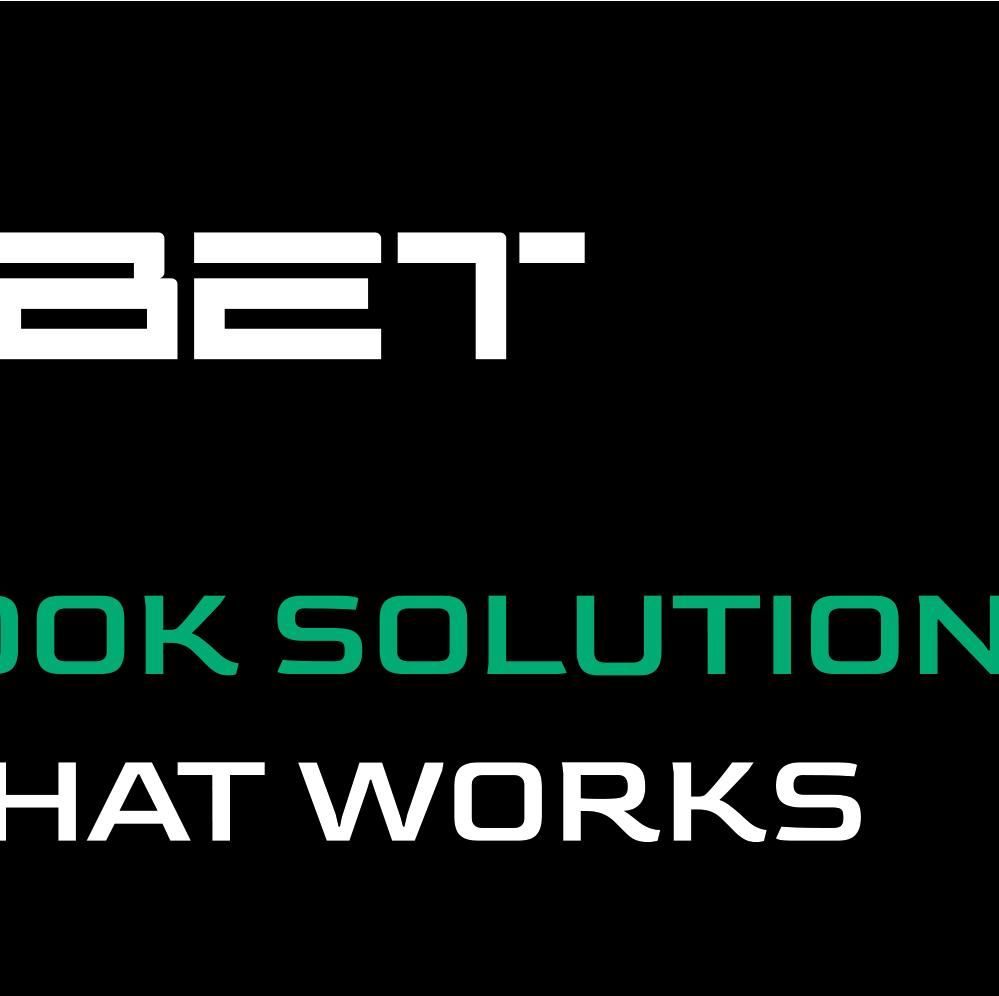







Earlier this year, we reported on FanDuel’s partnership with Are You Watching This?! for real-time sports alerts. Now that little phrase tells you everything. These little parcels of information delivered at rapid speed epitomise how casual viewers and bettors engage with sporting events across the world nowadays. Gone are the times of only watching your local football team and no longer do we rely on the morning papers to nd out who won the European Cup the night before. Calls for an end to the 3pm blackout on Premier League games increase because punters struggle to contextualise the idea of not being able to watch the sport they want to watch, wherever they are.
People want to watch the Super Bowl, they want the Aussie Rules and see no reason why they shouldn’t be able to bet on horseracing in Mongolia just as easily as they can the FA Cup Final. Crucially, they want to know what’s going on in real time. Or as close as.
Speed for speed’s sake is not the sole focus of Bart Snoeks’ talk at the Pulse Theatre, but slicing an extra second off your latency is big business in the world of sports betting. So, providers have to hop to it. Snoeks is the Tech Sales Lead at Dolby OptiView, the tech giant’s live streaming solution. In horse and greyhound racing, as Snoeks explains, speed is still king. It’s very easy for a betting operator to quantify the losses that bad latency is costing it. They can see clearly see the well-meaning flutters coming in as players follow a stream
that’s 10 seconds out of sync. In reality, the race is run and those bets will now be rendered invalid. The operator can do nothing but watch those stakes flutter away.
One use case Snoeks cited involved an operator covering some horseracing thousands of miles away. It was working with a latency of 12 seconds until Dolby reduced that to one. Overnight, revenue rose over 20%, according to Snoeks, as those wagers previously lost in betting window purgatory became valid.
But even overlooking that immediate gratification (and why would you?), Snoeks is convinced the Dolby OptiView technology represents a worthwhile investment. To his point, the watch-time statistics he provides bear that out. The same company experienced a 29% increase on that metric after switching to Dolby, indicating that when players compare sites and see that one is further ahead than another, they’re likely going to stick around a bit longer than with a laggier platform.
That treasured low latency is a boon for security, too. With faster and better controlled streams, the betting window can be eased open at the same time the door is shut on bad actors.
“So DRM is encrypting your content, decrypting it on the player side, making sure that it doesn’t get stolen on the way. In the cloud, we are one of the only solutions out there that can do this at low latency, and make sure your content is encrypted and decrypted without being stolen in the middle.”

Dolby is a storied innovator in sound and vision, but in sports betting, data is just as vital a component. In the battle for eyes and bets, especially on sports like football, data prevails. It sounds off-trend, but does that mean pure latency speed capabilities take a back seat?
“When we talk about latency for sports betting, most of our competitors say: ‘As fast as possible, that’s what’s needed.’ We do not agree with that.”
‘No secondary streams’ is a drum Snoeks beats repeatedly and, in practice, that can mean slowing the visual stream slightly to synchronise it with the data. Because: “What sense does it make if a viewer is watching data streams on a secondary device, because it’s faster than a video stream?”
In-play betting can’t be ignored as an opportunity for operators. Syncing data in an assured, intuitive way that gives the player the most encouragement and licence to make informed in-play bets is only going to boost revenue.
But data goes both ways, and as well as keeping track of the score, Dolby wants to know what and when people are watching. Where are they when they bet, and on what device? The more user data Dolby can process and roll out to clients, the more those operators are going to be able to refine their offering.
Achieving the level of consistency and technical smoothness that Dolby needs for all this is not without its challenges. For the protocols to scale out, it has to be able to

optimise under sub-optimal technical conditions. Look at Brazil, perhaps the most talked-about emerging market of the moment, Dolby has no choice but to be light on its feet as the streaming traffic intensifies.
“To cope with that, you can’t come up with a tier-three or tier-two solution. You need to have a steady cloud solution, tier one, and also with decent ISP connectivity, because in the end, your data centre can be great, but your traffic to the end user using the local ISP connectivity needs to be assured as well.”
Showing adaptability and an ability to localise the approach to building up your tech infrastructure in every region gives Dolby the tools to flatten out itso ffering; ensuring that both users and operators are getting a fair crack of the whip, wherever they are. “We should have one experience. For me that’s not only in sports betting, but also in regular streaming.”
Gathering around the screen at the local bookies may be a more obsolete way to bet on sports than it used to be, but innovating landbased channels is still on the agenda for Dolby. “We have a technology whereby we can stream multiple games and see them simultaneously. That could be one game with multiple camera angles, but for betting use cases, that could also be a multi-game live stream.”
The traditional betting shop can be hamstrung by a limited number of screens, which often may be insufficient to show all the streams the shop has the rights to. With Dolby OptiView, Snoeks proudly tells us how a player
can select exactly which stream they want to watch and bet on from an interactive preview display.
One concern might be the quality of these streams, not in terms of speed, but resolution. Broadcast rights often have stipulations on what kind of bit-rate the stream can be run at. Dolby certainly wouldn’t want a grainy stream tarring its reputation and has instead found a

solution using AI to improve the quality of the stream while keeping the resolution itself the same. A neat workaround that doesn’t jeopardise the broadcast agreement.

Sports betting is a huge market and one sport is not like the other, but Snoeks’ exposition of Dolby OptiView’s capabilities might be a vision of the future, arriving in real-time.
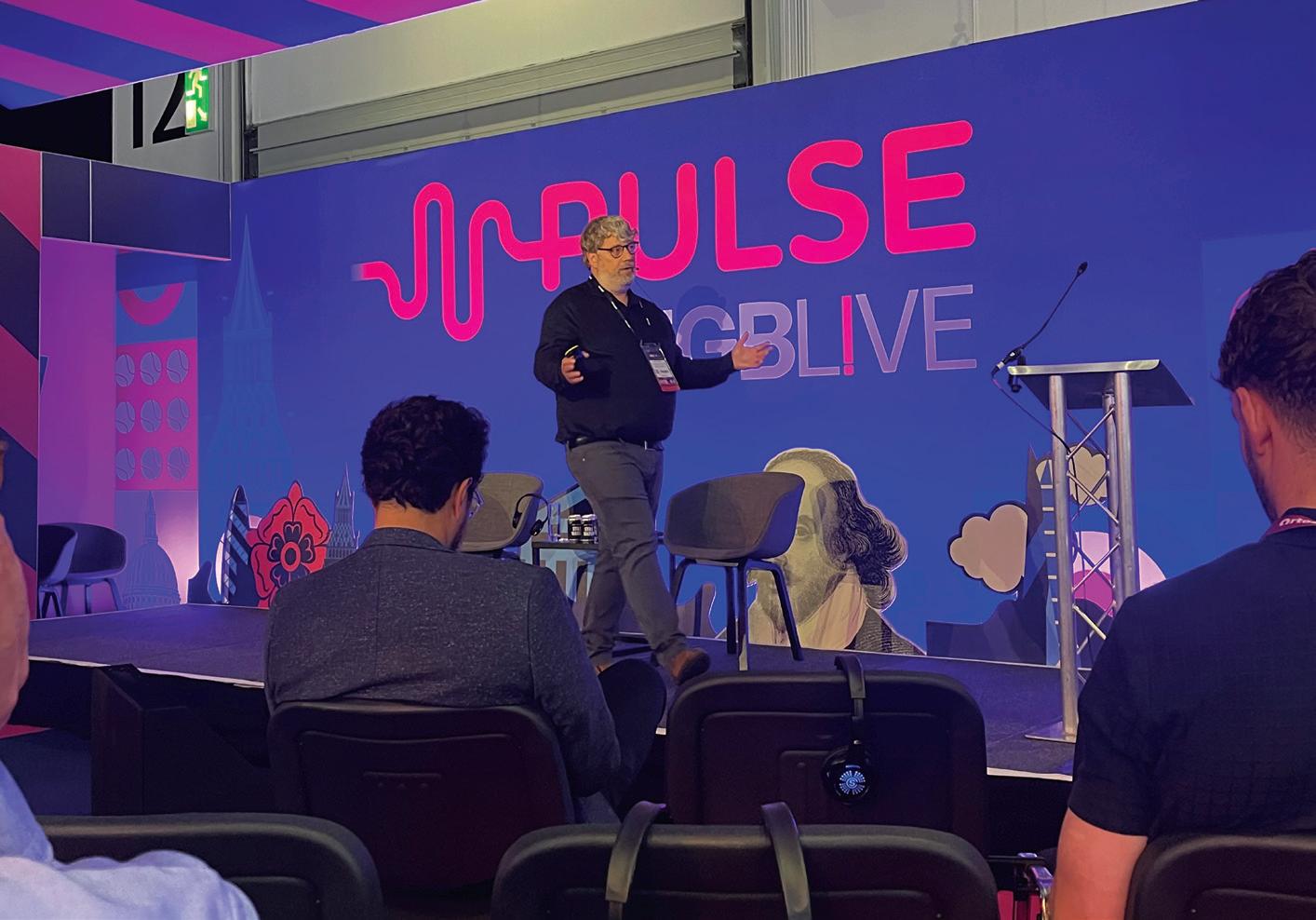




As the NFL prepares to kick off on 4 September, operators such as DraftKings, PrizePicks and Fanatics share how each continues to witness positive activity in the league’s off-season period.
No matter who one asks in the sports betting industry, operators and suppliers alike would confirm the number one producer of handle and revenue is the National Football League (NFL) – and the activity it drives between September and the Super Bowl every February. Through weekly lines, betting props and futures offerings, sportsbooks find little issue in navigating the fall and winter months while the NFL dominates television and streaming viewership.
Prior to the 2024-2025 season, the American Gaming Association (AGA) projected US bettors would wager $35bn on NFL contests and confirmed a handle of $26.7bn for the 2023-2024 season through analysis conducted once play had concluded. For Super Bowl 59 in February, the AGA predicted a total wager amount of $1.39bn in the matchup between the Kansas City
Chiefs and Philadelphia Eagles, a new record generated for the event. The league also bears witness to a significant

















portion of the highest individual wagers placed each year in the US, as sportsbooks take bets of six-to-seven figures and possibly extending further for the big game.
“No single event unites sports fans like the Super Bowl, and that excitement extends to sports betting, with this year’s record legal handle reflecting its widespread appeal,” AGA President and CEO Bill Miller said at the time of announcement. “This figure underscores the positive impact of the legal market – from protecting consumers to generating tax revenue that benefits communities across the country – while enhancing the game experience for all.”
While the NFL undergoes its annual o -season period – covering the majority


of February through the end of August –operators must identify ways of maintaining similar levels of activity while utilising fellow US sporting leagues such as Major League Baseball (MLB), the National Basketball Association (NBA) and National Hockey League (NHL). The NBA and NHL typically complete its final matchups by the end of June each year, leaving baseball as the final major US sport in competition for July and August.
Circa Resort & Casino VP of Operations
Mike Palm spoke with Gaming America as part of an exclusive interview to cover the type of activity seen throughout the NBA


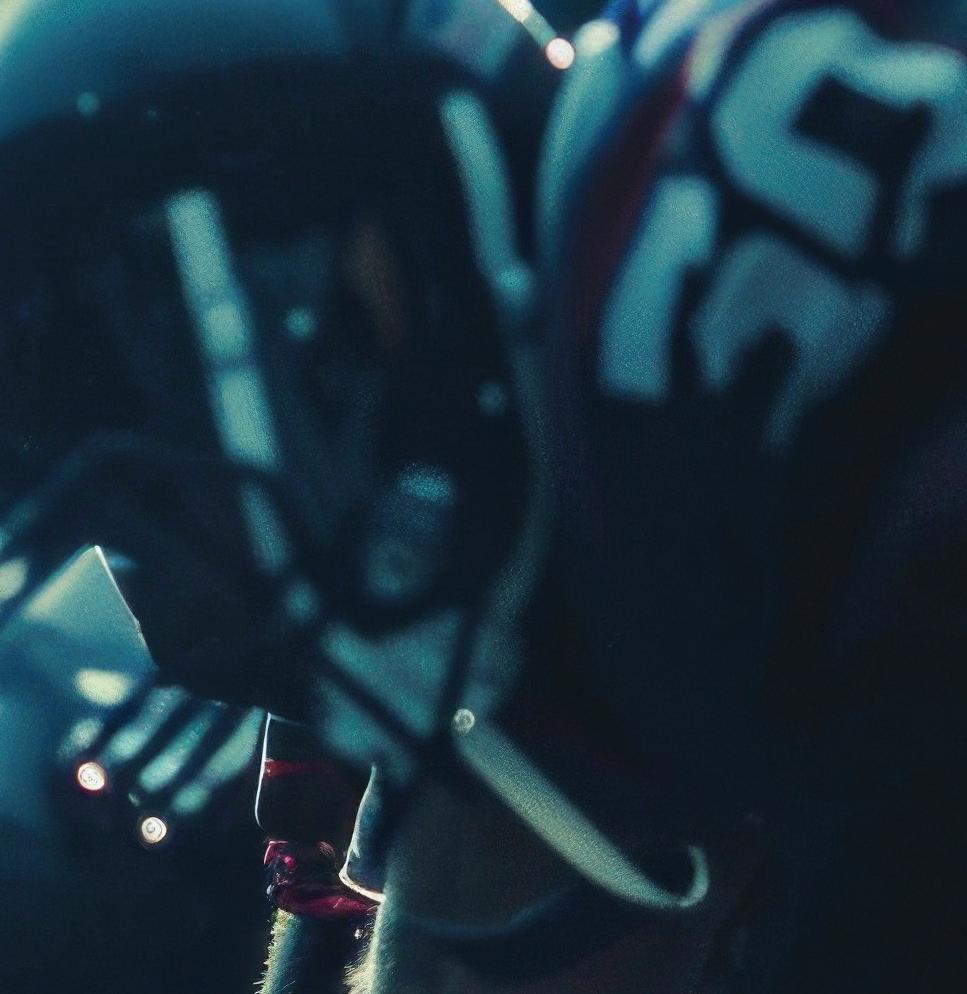

and NHL Finals events in June, having said, “The NBA is one of those leagues that’s heavily driven by player props. Betting over/ under points, assists, rebounds, sometimes depending on the player over/under steals. So no matter the teams that are playing, people will still get involved in wagering on individual players, and that’s what the NBA has become more and more about. Wagering on player stats more than actually placing money on either side.”
Sportsbooks received a level of good fortune to begin the summer when the NHL and NBA Finals matchups reached six and seven games, respectively, despite many around basketball believing the Oklahoma City Thunder would defeat the Indiana Pacers in five games or less. The Edmonton Oilers and Florida Panthers series was certainly a noteworthy result in addition to the thrilling basketball event, but failed to reach similar heights to the franchises’ first Stanley Cup Finals battle in June 2024, when Edmonton nearly claimed victory after going down 3-0 in a best-of-seven contest.
“At DraftKings, we operate at the speed of sports – and that means sports never pause. While the NFL is a cornerstone of the American sports calendar, our platform thrives year-round by tapping into the continuous rhythm of sports. Whether a thrilling tournament like March Madness,
or the drama of the NBA and NHL Playoffs or the daily cadence of MLB action, we offer fans an immersive, narrative-first betting experience that evolves in real-time with the sports world,” DraftKings CRO Greg Karamitis told Gambling Insider.

“Our customers don’t just watch it all ‒ they engage with it all and we’ve built our product to surface storylines across all sports – curating rich real-time live content and social features that let fans share their voice. For our customers, it’s not just about placing bets, it’s about being part of the moment and, for us, it’s about creating a platform that moves with the rhythm of






Palm, VP of Operations, Circa
sports and keeps the energy high, every single day of the year.”
The NHL struggles to witness the same levels of betting activity as compared to an NFL or NBA year-over-year, but the introduction of player props or offerings such as “first goal scorer” has certainly played a crucial role in helping operators maintain interest in the sport. While the offering by no means pales in comparison to its football or basketball counterparts, ice hockey is held back by typically receiving the lowest viewership counts among the four major US sports. Operators such as BetMGM and Caesars have made attempts to forge new connections with the league, however, as NHL star Connor McDavid appeared in a responsible gambling campaign with BetMGM in 2024 while Caesars Digital began the integration of league branding across its online casino platforms.
PrizePicks has looked to make similar progress with the MLB, establishing new partnerships with franchises such as the Los Angeles Dodgers, San Diego Padres and San Francisco Giants in California alone. Baseball’s pace of play creates a relatively unmatched opportunity for sportsbooks compared with other sporting events, as fans or bettors could realistically place a live bet in between pitches, at bats or innings and earn payouts in real-time. Whether it be the result of a certain at-bat or even the speed of a pitch about to be thrown, it’s di cult to nd any sport that o ers similar timeframes to baseball for placing live bets.
“We’ve also recently expanded our relationships with several Major League Baseball organizations. PrizePicks is now the official daily fantasy sports partner for
five MLB franchises: the Atlanta Braves, Los Angeles Dodgers, San Francisco Giants, San Diego Padres and Houston Astros,” PrizePicks CMO Mike Quigley told Gambling Insider. “Driving further awareness in key markets directly to sports fans in these endemic environments is enabling us to expand the successful communities we’ve created to date, and reach even broader and more engaged target audiences.”
In 2023, the MLB named FanDuel as its third official sports betting partner, joining BetMGM and DraftKings while having worked with the league since 2019 as Authorized Gaming Operator according to the release. “The baseball fan is one of the most engaged in all of sports, which is why we’re delighted to be the new sports betting partner of Major League Baseball. Our team is eager to showcase FanDuel in nationally broadcast MLB games and help enhance game narratives and bring America’s Pastime directly into our mobile app and OTT platform for fans to watch and wager,” FanDuel Group President Christian Genetski said at the time of announcement. “We’re also very excited about the opportunity to work together with MLB on new betting product innovations that will give customers the opportunity to enhance their experience on every pitch from March until October.”
While the comments from Genetski appear standard, citing the specific timeframe in which the MLB carries its season through – and coincidentally the vast majority of NFL’s off-season – can help showcase the level of focus operators place on this potential activity standstill. Fanatics Betting and Gaming VP of Communications Kevin Hennessy spoke on the major sporting events outside of the MLB which helped to
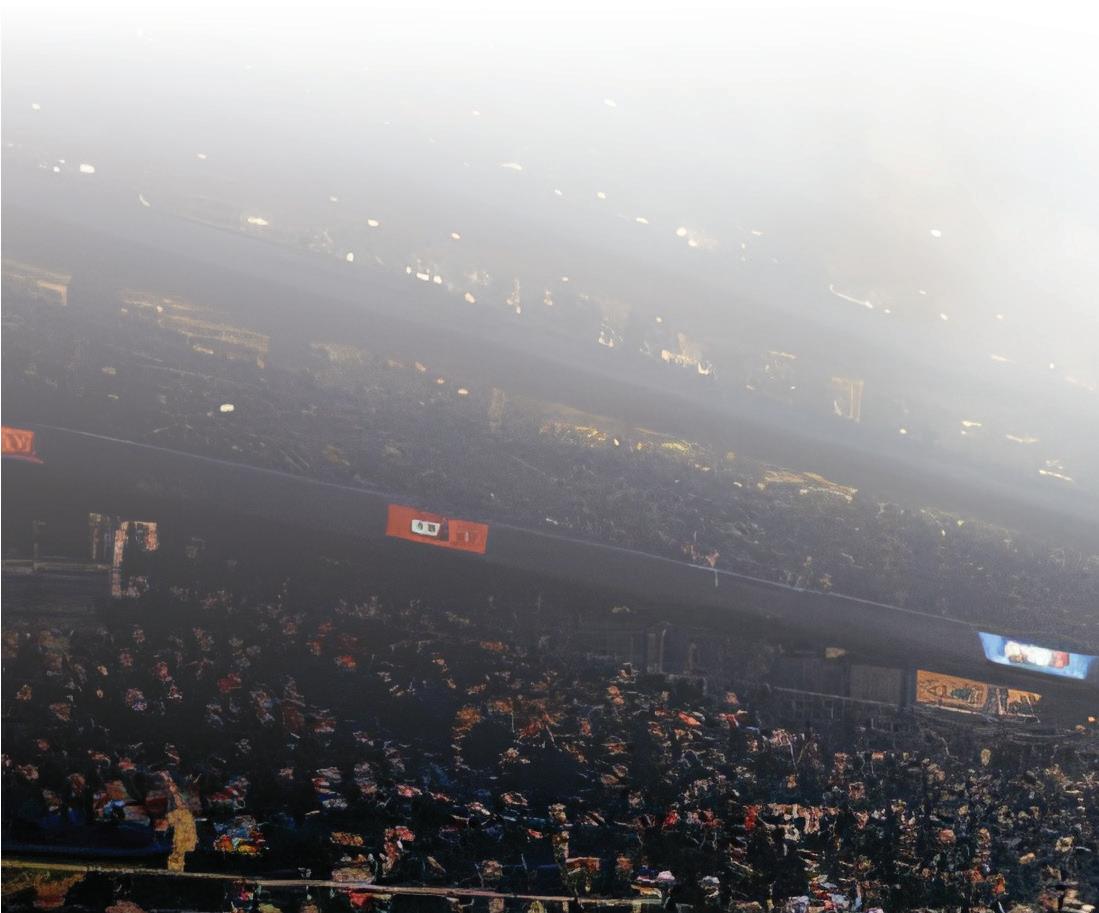
retain betting interest from consumers, telling Gambling Insider: “The summer will see other sports taking center stage for customers at Fanatics Sportsbook. We will see an uptick in betting on baseball, soccer and tennis – due to major events like Wimbledon and US Open, and women’s sports like the WNBA and NWSL will get their moment to shine.”
Hennessy went on to predict Indiana Fever star Caitlin Clark would be one of the most bet-on athletes across all of July, only for the women’s basketball sensation to battle through injuries for a large portion of the month. It is not yet known what type of impact Clark being unavailable had for sportsbooks and the level of activity seen for the WNBA, but results from her final March Madness tournament in 2024 help indicate the type of potential she holds for women’s sports betting.
DraftKings reportedly witnessed 3.5x more bets on the 2024 Women’s March Madness tournament compared to the prior year period, and nearly four times as much total money was wagered on the individual matchups. BetMGM’s WNBA betting activity was up 175% through Clark’s rookie year in 2024, while Hennessy confirmed the Fever’s over/under win total for the same season was the bet future of any WNBA offering from Fanatics sportsbook.
Fanatics also manages to utilize its branding outside of sports betting to generate consumer interest in the operator throughout the summer, most notably its Fanatics Fest event which ran from June 20 ‒22 this year. “Fanatics has a larger footprint in the world of sports and entertainment, so the summer is great for our customers
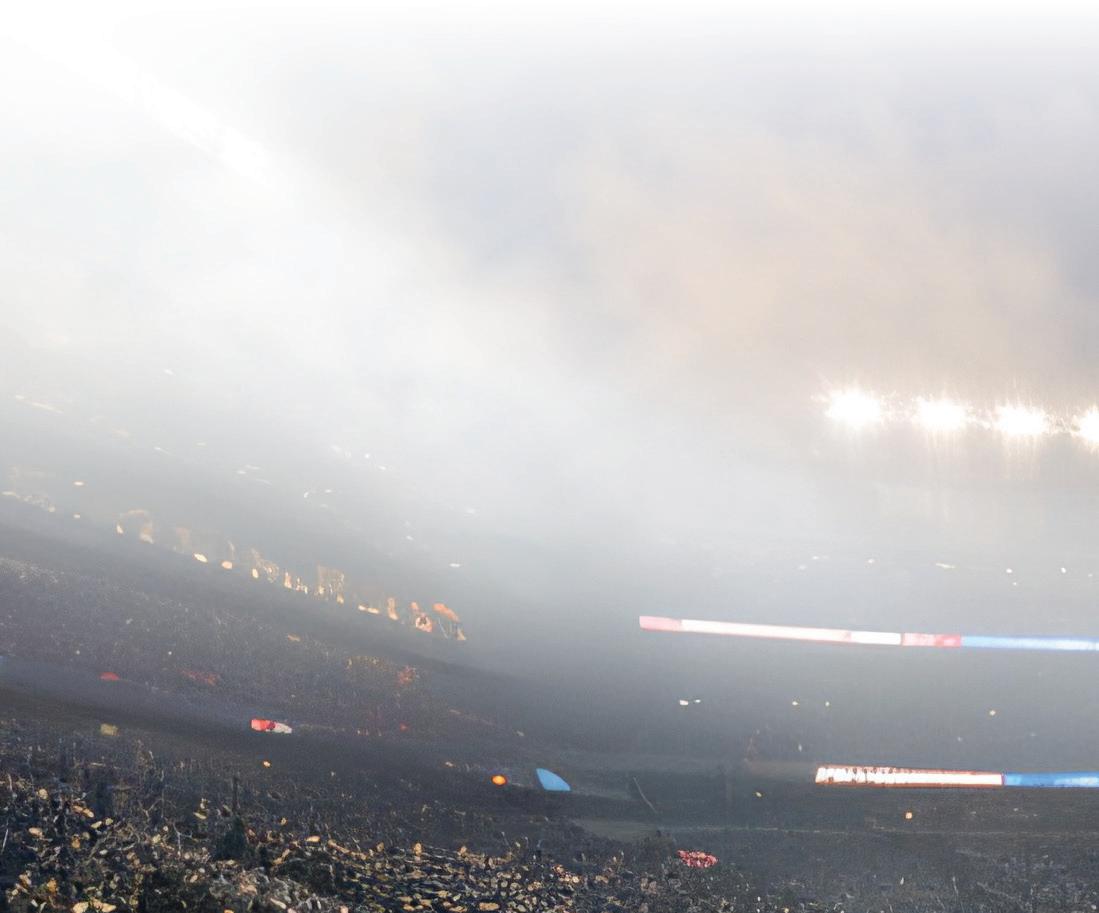
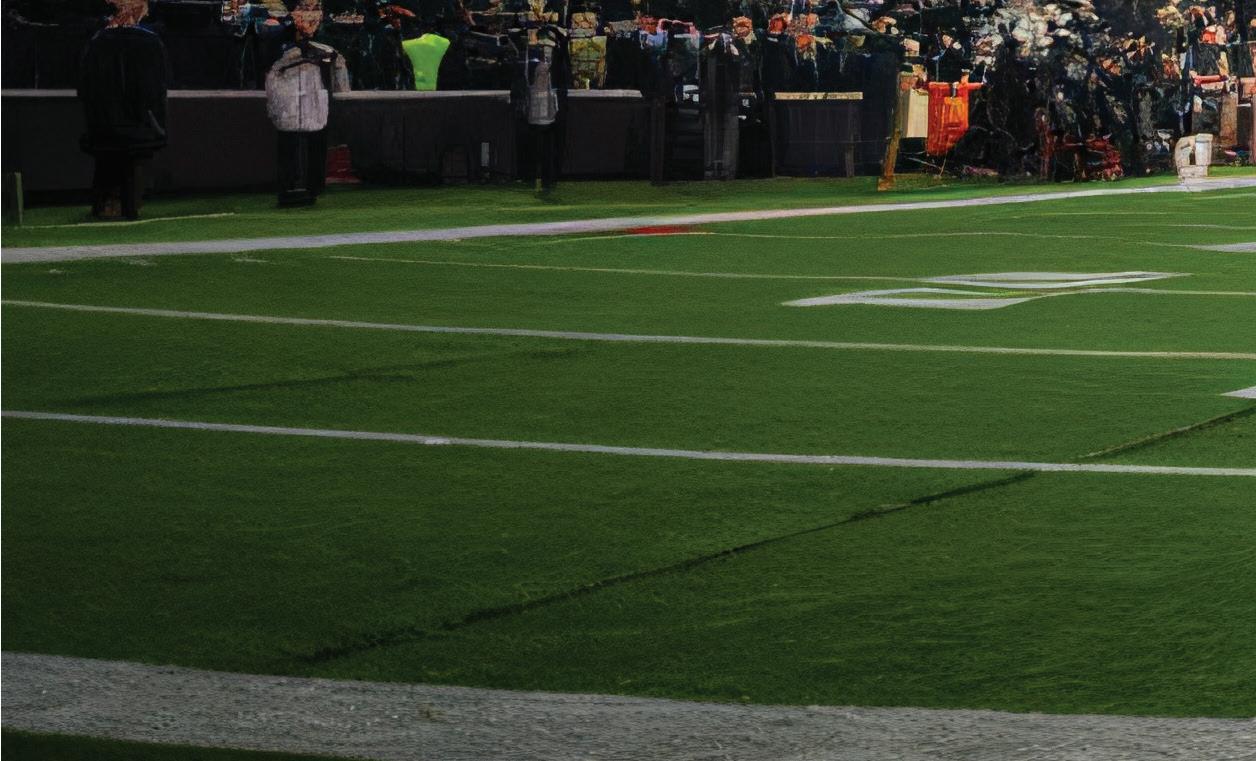


with unique access to events like MLB All-Star Weekend, WWE SummerSlam and more,” Hennessy said.
The overall rise in popularity around sports betting has also helped to lessen the impact of when the NFL is not active, as the AGA reported on July 23 gross gaming revenue (GGR) for the offering increased 24.3% year-over-year to US$1.37bn for May 2025. Over the course of January through May 2025, sports betting GGR showcased growth of 13.1% from the prior year period for a total revenue of $6.5bn in the ve-month stretch.
Not only that, the AGA stated US residents wagered approximately $12.1bn throughout May 2025 alone, an increase of 15.5% year-over-year while the national hold rate for operators equated to 11.3%, the highest recorded since September 2024 by the Association. Even without the NFL, various sporting leagues continue to inflate the appeal of offerings for consumers throughout the summer seasons, greatly showcased by the financial success garnered by operators in recent months.
“Key summer events like major golf tournaments, blockbuster UFC cards and global soccer matches offer incredible moments of engagement opportunities. By delivering immersive product experiences –like enhanced live betting, custom markets and curated content around these marquee moments – we’re not just reacting to fan interest, we’re amplifying it,” Karamitis said. “That momentum carries forward, keeping customers active and engaged as the sports calendar transitions back to NFL, NBA, NHL and more.”
From the March Madness college
“Fans are watching together, debating narratives and sharing opinions with their community. That’s a big part of what makes sports special”
basketball tournament – both men and women’s – to the NBA/NHL Finals and finally the MLB season, new promotions and innovation can be introduced while thoughts of NFL activity are put on the backburner.
Operators such as FanDuel continue to make use of its long-term collaborations with the MLB, offering promotions such as $150 in bonus bets for any $5 wager placed on a baseball game or receiving one month of the league’s streaming service for no cost. DraftKings is offering users parlay boosts for both the MLB and WNBA, while also creating a “no sweat” token for home run wagers placed every Friday throughout the baseball season.
“The NBA, NHL and MLB each attract different audiences and regional fanbases, creating entry points for expanding our reach. Beyond just extending reach, these leagues are a gateway into the broader culture of sports fandom. Sports don’t happen in a vacuum – they’re inherently social,” Karamitis said.
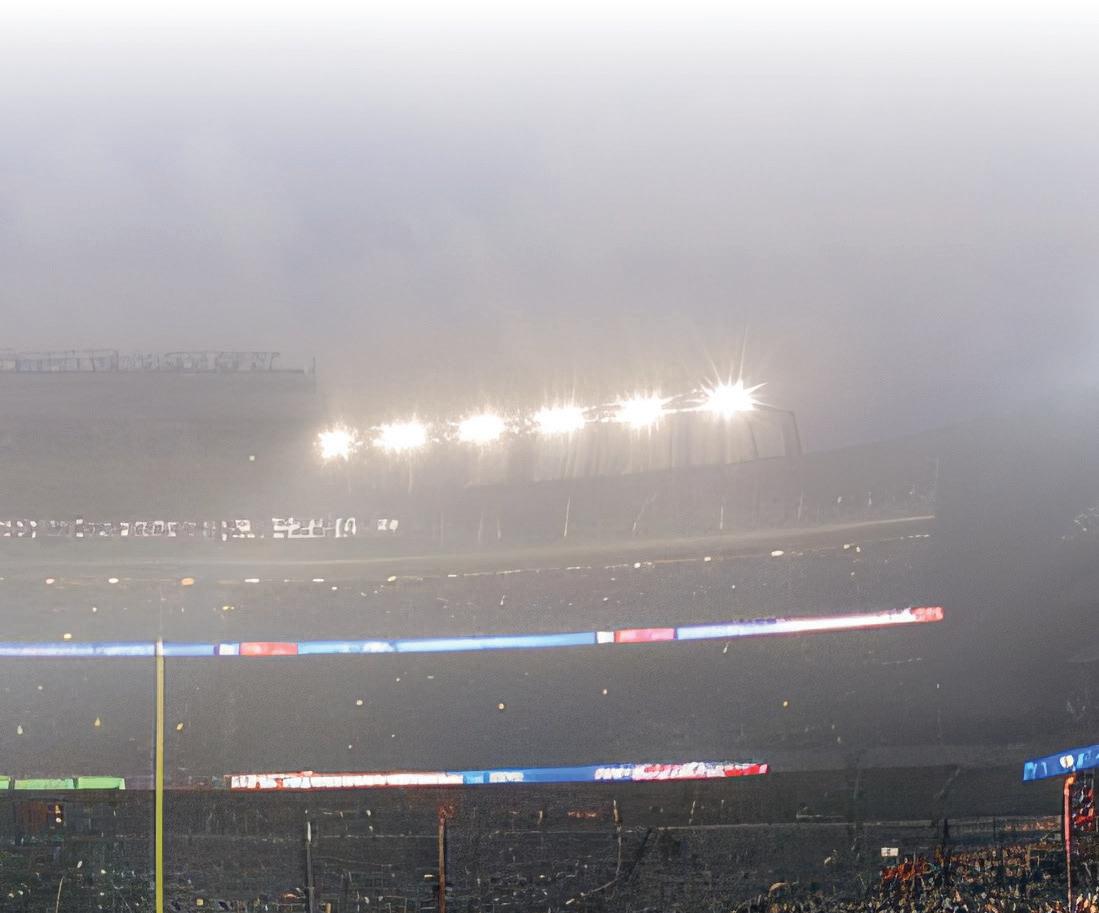
“Fans are watching together, debating narratives and sharing opinions with their community. That’s a big part of what makes sports special, and it’s a dynamic we aim to capture in our sportsbook. Whether it’s sharing picks, seeing what others are betting or experiencing the live sweat together, we bring betting into the social arena. It’s about
more than just the bet – it’s about being part of the moment.”
With the NFL season just days away, however, the time for new activations and promotions is nearing for operators, including improved touchdown betting offerings from DraftKings or Circa Sports’ Survivor and Million VII contests, featuring its highest payout to date of $21m, as well as the introduction of Circa Grandissimo. The anticipation of football kicked o into high gear on July 31, especially, when the rst preseason action of the year was played between the Los Angeles Chargers and Detroit Lions, albeit resulting in a lopsided a air. Still, the NFL off-season is as much about opportunity as it is finding ways to keep bettors entertained when live football cannot be found, displayed by the growing momentum for additional verticals from consumers. As week one is set to kick off on September 4, any fear of having to punt on the spring and summer months has long been tossed to the wayside by operators. Despite the NFL remaining sports betting’s king, leagues such as the NBA, NHL, MLB and WNBA have exemplified time-andtime again how noise can be generated even when one would assume the industry is at its quietest.



















As sportsbooks continue to partner with influencers, former athletes and celebrities, Gambling Insider speaks with multiple operators on how these collaborations help increase exposure in the US


Since the Professional and Amateur Sports Protection Act (PASPA) was overturned in May 2018, US sports betting’s rise through verticals such as online wagering, daily fantasy sports (DFS) and even events contracts has been undeniable throughout the six-year period. The growth of sports wagering extends further than the di ering betting types provided by operators, however, as the utilisation of social media, television and advertisements have helped propel consumer bases to new heights. As social media becomes an apparent necessity for people of all ages across the US, opportunities to create betting accounts in which followers can track daily picks, parlays and even live wagers have begun to integrate itself with the marketability of operators.
Having founded the BookIt Sports brand in 2019, Trent Attyah became one of the first recognisable figures on social media platforms such as X (formerly known as Twitter), TikTok and Instagram for the bets he would place on any given day. As many entertainment viewers may have discovered in watching Attyah lose a particular wager, his personality resonated with fellow bettors given the frustration or elation he was experiencing in real time. While BookIt Sports does not offer sports betting to its consumers, Attyah harnessed the attention he had garnered through social media and used it to form a new collaboration with PrizePicks just four years after the operator had originally debuted in the space.




“I had this idea for a mobile app that was essentially an Instagram for sports bets. It was a social media platform and, long story short, we ended up pivoting from the social platform to creating a content brand but just for sports betters. I was on TikTok, which is where I really started, and was just making relatable content about betting even though at the time I was not affiliated with PrizePicks in any way and wasn’t even really a fan of player projections,” Attyah told Gambling Insider.
“I was only betting on teams, overs/ unders and stuff like that. But I was making videos that my audience, the average sports bettor in the space, could really resonate with and ended up going viral overnight. It was crazy and I was just posting videos, getting millions and millions of views, which then led to getting some inquiries about partnerships.”
Attyah “obviously” began his




search for a potential collaboration by focusing on one of the “Goliaths” in DraftKings and FanDuel. But he was also being constantly reminded of a certain DFS operator that had plenty of ideas as to how both parties could expand their respective business ventures. “There was one partner that would always, so persistently, want to hit my inbox and sell me on their product. And that was PrizePicks.”
“At the time, I’d never heard of PrizePicks or had any idea what they were. But they were so persistent; they would not give up. And I kept shutting it down because I didn’t like choosing players or daily fantasy, that wasn’t my thing. I loved traditional sportsbooks, but it got to a point where I said ‘okay, let’s just give them the time of day, hear them out and see what’s up,’” Attyah explained.
“I think they had maybe five employees, which is crazy considering where they are now; but we took the phone call and they were just so sold on me. At the time they had no partnerships with influencers, so I think they just did the best they could to sell me on this product, what it does, where they’re going, what the future looks like and so I took a chance.”
That “chance” was in the form of a one-month contract between Attyah and PrizePicks, having now grown into a six-year partnership that has helped the operator expand its business to 45 states within the US along with Washington DC. Attyah, meanwhile, has now surpassed 375,000 followers on X and currently maintains more than 486,000 followers through TikTok where he originated.










PrizePicks CMO Mike Quigley also spoke on the different methods with which the operator has applied its collaboration with Attyah and fellow in uencers such as Drew “Druski” Desbordes and Joe Budden. He told Gambling Insider: “Partnerships and collaborations with notable creators have been a signi cant driver of PrizePicks’ brand awareness, interest and engagement for years. We have had the good fortune to work with many talented in uencers and personalities early in their careers, watching them ascend while promoting our brand and growing into some of the top creators in all of sports and entertainment.”
Quigley continued: “Not only do we utilise brand partners for social media campaigns, we tap them for national advertising spots that drive mass market awareness for sports fans across the country. These ambassadors speak to our audience on both a mass and micro scale through diverse mediums, allowing us to attract new players across a variety of demographics.”
Touching on how PrizePicks goes about seeking potential deals with various influencers, Quigley stated the operator constantly spreads awareness of the brand through “smart and efficient” partnerships as opposed to finding the “biggest names possible” which may command “large spends” and show little ROI.
“Partners like Druski and Trent Attyah are two prime examples. Our member base is very social media-driven and our goal is to meet them where they are, something that Druski and Trent have perfected. They have cracked the code to becoming engaging social personas and are able to disseminate our brand messages in creative ways that our members grasp,” Quigley said.
Attyah found little issue in describing why fellow operators may struggle to generate
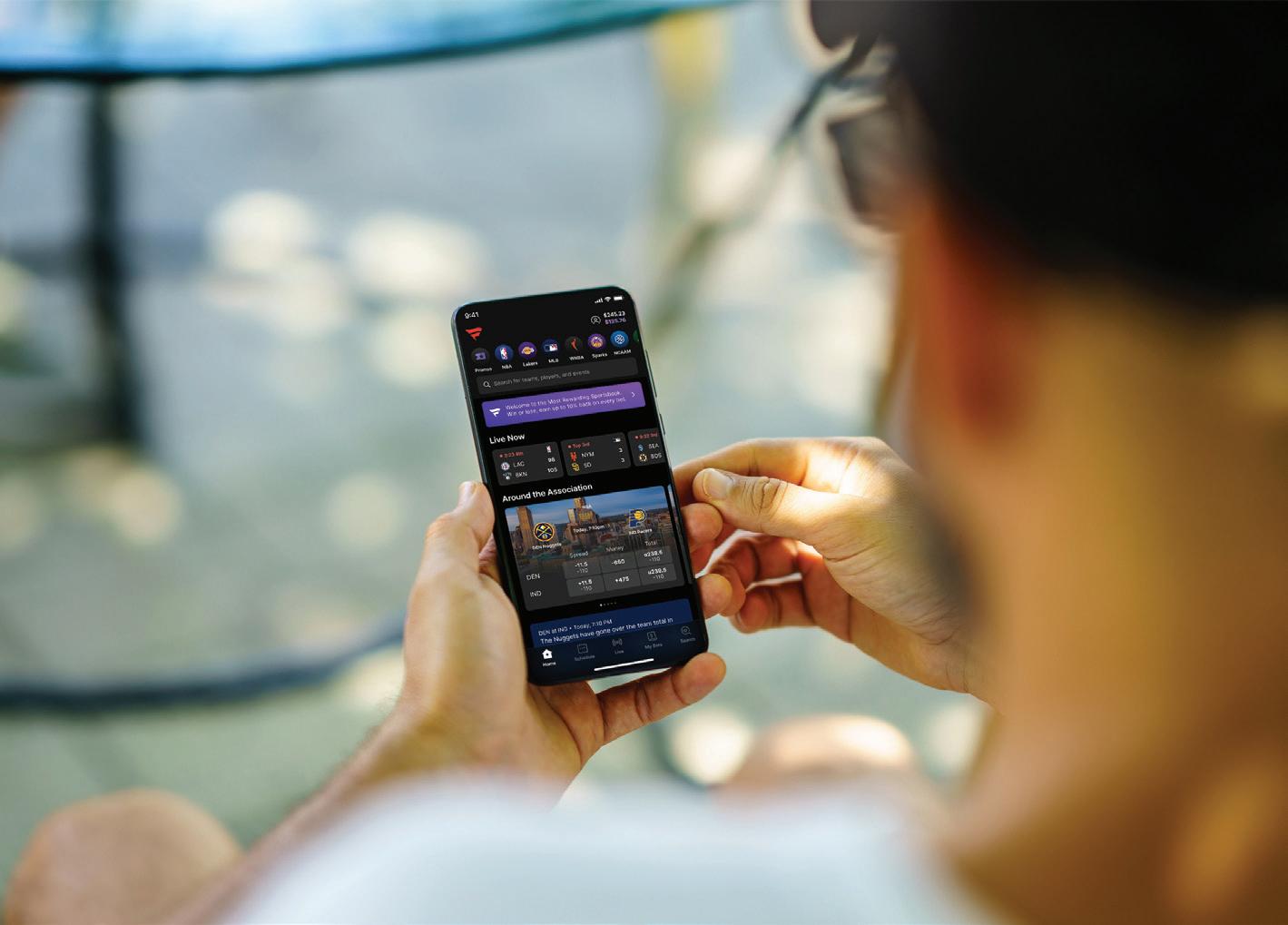
similar levels of growth as PrizePicks. “The way they’ve been able to establish this brand, this culture and this community is light years ahead of anybody or any of the other goliaths in the space. Look at all these other little guys that are under the big three, the reason they’re failing is because of their lack of community, their lack of culture and the lack of just understanding what the user wants.”
A comparable partnership is perhaps that of DraftKings with NBA superstar LeBron James, as well as with celebrity comedian Kevin Hart. Or perhaps not so comparable... Attyah certainly had choice words for how he believes collaborations with influencers can provide higher levels of consumer interest for sportsbook operators.


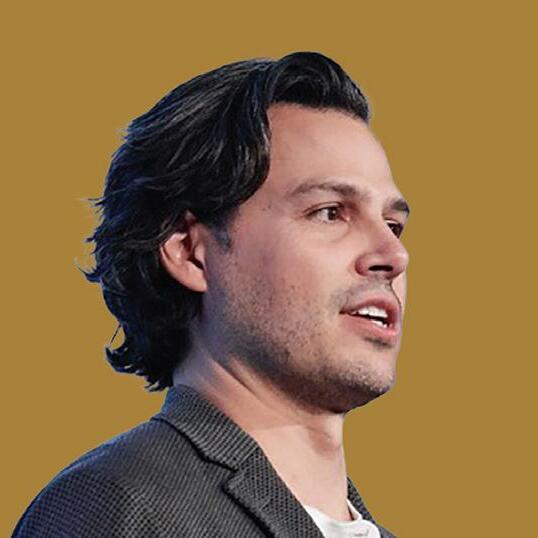


“LeBron’s not playing DraftKings, he never will. He doesn’t give a s**t and same with Kevin Hart. Druski and I are obsessed with PrizePicks. We’ll play it every single day. We’re posting content about it, asking for plays, we just genuinely use the product. I guarantee you LeBron’s never used DraftKings and more than likely Kevin Hart doesn’t use DraftKings either,” Attyah said.
Despite the stance Attyah takes on celebrities and former athletes becoming partners with sportsbooks, it has not stopped brands such as BetMGM from forging its own collaborations, having done so with former New York Yankees shortstop Derek Jeter in July 2025. BetMGM Director of Brand AJ Mazza told Gambling Insider : “Derek Jeter and really all of our

athlete ambassadors, we do deals with them to include obviously their name, image and likeness in our advertising, but also in all of our communications, quite frankly. With athletes particularly like Derek Jeter, Wayne Gretzky, Barry Sanders, we built into all of those contracts the ability for us to host VIP events and visiting people from a hospitality perspective.
“When we look at a Lions game, for example, and we want to take some of our players to a VIP suite, we can have a meet and greet with Barry Sanders there. It’s really important for our contract that we build in the ability to leverage them both in advertising and in some of those more intimate opportunities we want to give our players as well as on the iCasino or iGaming side.”
In 2020, the operator partnered with








a Gretzky Light the Lamp slot game exclusively in New Jersey and Michigan in February 2025.
The NHL Hall-of-Famer starred in the operator’s advertising campaign, Vegas Magic, which highlighted how live dealer games from BetMGM Casino let players “feel the magic of Vegas” in their own homes, ending with Gretzky at the blackjack table making a reference to his famous jersey number 99. “The ability to bring ‘Vegas Magic’ to its players is one of the biggest reasons BetMGM is so unique. Gretzky Light the Lamp is a great combined example of my role as a BetMGM ambassador and the company’s constant innovation,” Gretzky said at the time of launch.




celebrity actor Jamie Foxx for a new advertising campaign, The King of Sportsbooks, as part of a relationship that has now extended over five years. As recently as the 2024-2025 NFL season, Foxx was starring in digital campaigns to help promote numerous BetMGM offerings for its consumer base. Even walking around the Las Vegas Strip, it is near impossible to not come across an advertisement board with Foxx and the BetMGM logo displayed. Location, as Mazza explained with Sanders and the Detroit Lions, is key for these partnerships to find success within the market BetMGM is looking to expand its presence.
“If you go into MGM Grand Detroit, we will be featuring Barry Sanders more prominently than if you were at MGM Springfield where you’ll see Kevin Garnett on the wall, as we do try to leverage all of our brand ambassadors if we have one in a key market,” Mazza said.
“Oftentimes you would see Jamie Foxx in Las Vegas if we didn’t have a perfect fit from an athlete perspective. It’s focused mostly on the celebrity and athlete ambassador themself, but certainly it’s a big piece of the puzzle when it comes to our team and league partners especially. In the land-based casinos or in the sports books we will leverage those markets as well, whether it be the Lions in Detroit or the Raiders in Vegas, so we use both the athletes and league IP. But again, it’s about extending the brand and creating a continuity between the digital and physical experience that we feel are the only brand that can offer.”
Mazza also spoke on how BetMGM prefers to nd ambassadors who are a greater t to promote the respective sport its hoping to draw increased activity. These include Jeter for baseball, Sanders for football and Gretzky for hockey, having even released
Not shying away from how social media can be applied to generate traction on the operator’s sports betting and iCasino offerings, Mazza commented: “Obviously, being able to harness their reach is great for us. We work into all of our deals, the social media posts, posting on our behalf, their ads and their paid content. Jamie Foxx has 17 million followers on Instagram, Kevin Garnett has over a million, Jeter just shy of a million, and so it’s important for us to use that as a handle or a mouthpiece for the brand. A lot of people trust spokespeople, whether those are now influencers or celebrities. If they’re advocating for something, some people make decisions based on that. We are able to leverage their personal handles, but then also use them in our own sort of paid advertising on social media as well.”

or create memorable and
rest of the category.





Mazza continued: “We believe these legendary athletes help convey or create memorable and legendary experiences on and offline, unlike the rest of the category. It’s really going to be about the campaign, the launches and we’re really excited to bring it to market.”

excited to bring it to market.”

operator’s newly introduced





will hope to be featured “for a long time,” but “certainly”



the MGM brand in general can the industry’s history, Mazza






Mazza went on to preview the operator’s newly introduced “Legendary” brand which will hope to be featured “for a long time,” but “certainly” into the 2025-2026 NFL season kicking off in September. Highlighting how the MGM brand in general can be traced back throughout the industry’s history, Mazza explained the operator’s sense of “credibility” in the sports betting landscape even while still expanding its presence in the market.

“I think when we look at our place in sort of the landscape of sportsbook operators and iGaming, we are certainly the entertainment brand having been born out of Las Vegas and


with MGM as our parent company. We feel like it gives us the liberty to have credibility and to lean into athletes, celebrities and the more entertaining spectrum,” Mazza said.
“It’s part of our brand DNA to utilise them because we believe celebrities and athletes can help breakthrough to people who are fans of them. They obviously accrue their own personal following, and when used properly, the goal is to hopefully resonate with the respective player’s fanbase.”

Fanatics Betting and Gaming VP of Communications Kevin Hennessy additionally explained how the sportsbook integrates its ambassadors with the sport in which they have the most experience, having said, “The best example that I can give in our short










history is when Jalen Rose headlined our college basketball campaign.
“We were looking for someone that had real credibility in the college basketball space and there aren’t too many people that can say they revolutionized the college game like Jalen - as a member of the Michigan Fab 5. He headlined our ad campaign and one customer received tickets to San Antonio to the game and met with Jalen. It was an experience that Fanatics and only Fanatics could offer. For Fanatics Sportsbook and Casino it will always be about authenticity. If we are working with a wellknown figure we will have an authentic reason for bringing that person on board.”
A relatively unconsidered part of forming these collaborations with in uencers, athletes and celebrities is the possibility of a negative response from the public if a bet, parlay or future were to be unsuccessfully promoted by each respective gure. Take a FanDuel or DraftKings, which routinely partner with various sports networks and leagues to showcase its odds during a live broadcast, or even have part of the broadcasting team make wagers on air. If one were to see Charles Barkley recommend taking the over on points at halftime, what’s stopping a near automatic reaction of ooding the NBA Hall-of-Famer with hate messages if the bet were to be deemed unsuccessful?
This is not to say a Charles Barkley, Wayne Gretzky or Trent Attyah would care for the negative responses each could be exposed to given either their dissociation with social
media, or in Attyah’s case, the knowledge that some online voices are much quieter inperson than through a cellphone or laptop.
“99% of the time what people are saying in my DMs would never be said in person. I’ve had thousands of run-ins with people in public, and I’ve never once had somebody say anything negative to me. I know these people are mad at the moment, and they want to express their anger and put it on somebody else, which is me typically,” Attyah said.
“But I know for a fact if I met them in person, they wouldn’t say that. In fact, some dude the other day ran into me at the Rangers game and was begging me to follow him on Twitter. He loves me, he’s a huge fan, so I say ‘fine, I’ll follow him.’ I clicked his profile, check his DMs and there’s 17 straight messages of him saying, f**k you, you’re a piece of s**t, go to hell, and this is literally a prime example of what I’m talking about. He was so nice, happy to see me, asking for a picture. There’s two sides to it every time, but I never let it get to me and I just keep pushing through.”
Ultimately, the cover of a hidden pro le picture or typing from behind a mobile device is enough to drive any user towards sending hateful messages towards ambassadors of a respective operator, and even current athletes face the same issue in their day-to-day lives. Universities around the US have had to relay messages about the dangers of sending hate to an 18-, 19- or 20-year-old student just attempting to help their team win in whatever way possible.

In July 2025, during the MLB’s All-Star Break, starting pitcher Lucas Giolito had to confront Commissioner Rob Manfred about the negativity his own family has seen from sports bettors and the difficulties explaining to his young daughter why people online would want to endanger their livelihood. It’s one of the many reasons, as Mazza would go on to point out, why the popularity of partnering with athletes who are still competing in their respective sport has not grown among sportsbooks.
That, along with the fact leagues prohibit its athletes from, at the very least, wagering on the sports itself, is why operators such as DraftKings who do find themselves collaborating with athletes like James, will typically refrain from having the star speak on basketball wagers, or showcase any type of bet within the advertisement as well. Mazza also explained how having a Gretzky or Jeter discuss wagering on a sport they weren’t involved in can feel inauthentic for viewers, providing insight as to how the operator features its most prominent ambassadors.
As the popularity around social media and sports betting continues to rise, the presence of ambassadors, influencers and celebrity partners will grow along with it, highlighted by a clear goal from operators of finding well-known voices to command attention towards its product. Influence is certainly a powerful trait to carry, and for those who can discover the right people to harness it with, the sports betting community has no limits as to what type of results can be discovered.
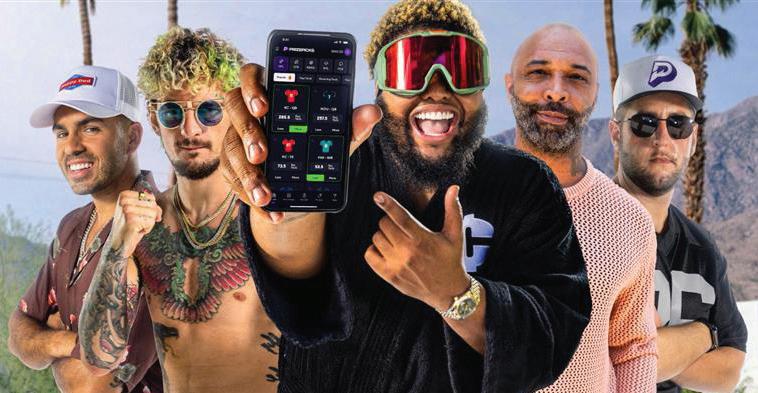



With expert analysis from lawyers in both the crypto and gambling spaces, Gambling Insider assesses the state of influencer marketing in Argentina. Indeed, it is shaping perceptions of the market, but not necessarily for the better...
In 2024 and so far in 2025, online gambling and casino advertising have dominated headlines across Latin America, particularly in Argentina. But not for the reasons the industry might have hoped. What emerged was a troubling lack of awareness around existing regulations, as in uencers, content creators and celebrities began promoting online casinos on social media without considering crucial factors: whether the platforms were legally authorised,
properly regulated or whether their promotional content encouraged responsible gambling practices.

The regulatory framework in Argentina

is straightforward for those who take the time to understand it. As lawyer Tomás García Botta, Partner at MF Estudio –Abogados, tells Gambling Insider: “Today in Argentina, you can’t really talk about a grey market, a white market, or a black market. Gambling is either authorised or prohibited. And this is very clear.”
The distinction is even simpler than many realise: legal gambling sites in Argentina must have domains ending in .bet.ar, while anything else operates illegally. Yet, despite this clarity, a significant disconnect persists between regulatory reality and public understanding. So what went wrong, and why has this become such a contentious issue?






The complexity begins with Argentina’s federal structure. Unlike countries with centralised gambling regulation, Argentina distributes authority across provinces, each with its own licensing requirements and advertising rules – not unlike the US’ state-by-state regulatory system for different forms of gambling. This creates a fragmented landscape where a platform legal in Buenos Aires City cannot operate in Buenos Aires Province, and vice versa.
García Botta states: “You can’t talk about advertising regulation at a national level. Regulatory competence in gambling matters belongs to the provinces. It’s what we call ‘non-delegated’ competence.” This patchwork system has practical consequences that highlight the confusion. He adds: “Watch any major football match, and you’ll see betting company advertisements displaying






multiple provincial logos, sometimes three or four different regulators on a single ad. Even more telling, these ads often feature multiple responsible gambling messages, each tailored to different provincial requirements.”
While regulatory attention traditionally focused on traditional advertising channels, research by the ALEA (Argentina’s State Lottery Association) revealed where the real problem allegedly lies. Its study on how minors access gambling found that the majority were reaching these platforms through influencer promotion instead of football sponsorships or TV ads. García Botta says: “According to the ALEA, when it comes to gambling exposure, minors aren’t influenced by traditional football advertising or what logos appear on team jerseys; they’re influenced by what influencers and streamers do on social media platforms. That’s what the younger public consumes and pays attention to most.”
This concept is particularly concerning because minors can only access illegal gambling sites, since legal platforms have mandatory age verification systems. The influencers driving this traffic were, knowingly or unknowingly, promoting unregulated platforms that represent over 90% of Argentina’s gambling market.
The influencer problem, like ogres and onions, reveals multiple layers of accountability. Legal gambling companies now conduct background checks on influencers, with some refusing to work with creators who have previously promoted illegal sites. But the responsibility extends beyond corporate due diligence.



Tomás García Botta, Partner, MF Estudio –Abogados
García Botta argues: “There’s a responsibility for in uencers themselves regarding the content they promote and the impact that promoting illegal activity can have on the rest of the activities they promote. There are no influencers who only advertise gambling: they advertise a variety of brands, products, or services and, ultimately, those other clients they have can be a ected if they’re advertising something illegal.”
This creates a domino effect for content creators. An influencer’s decision to promote illegal gambling platforms doesn’t just risk legal consequences; it can damage
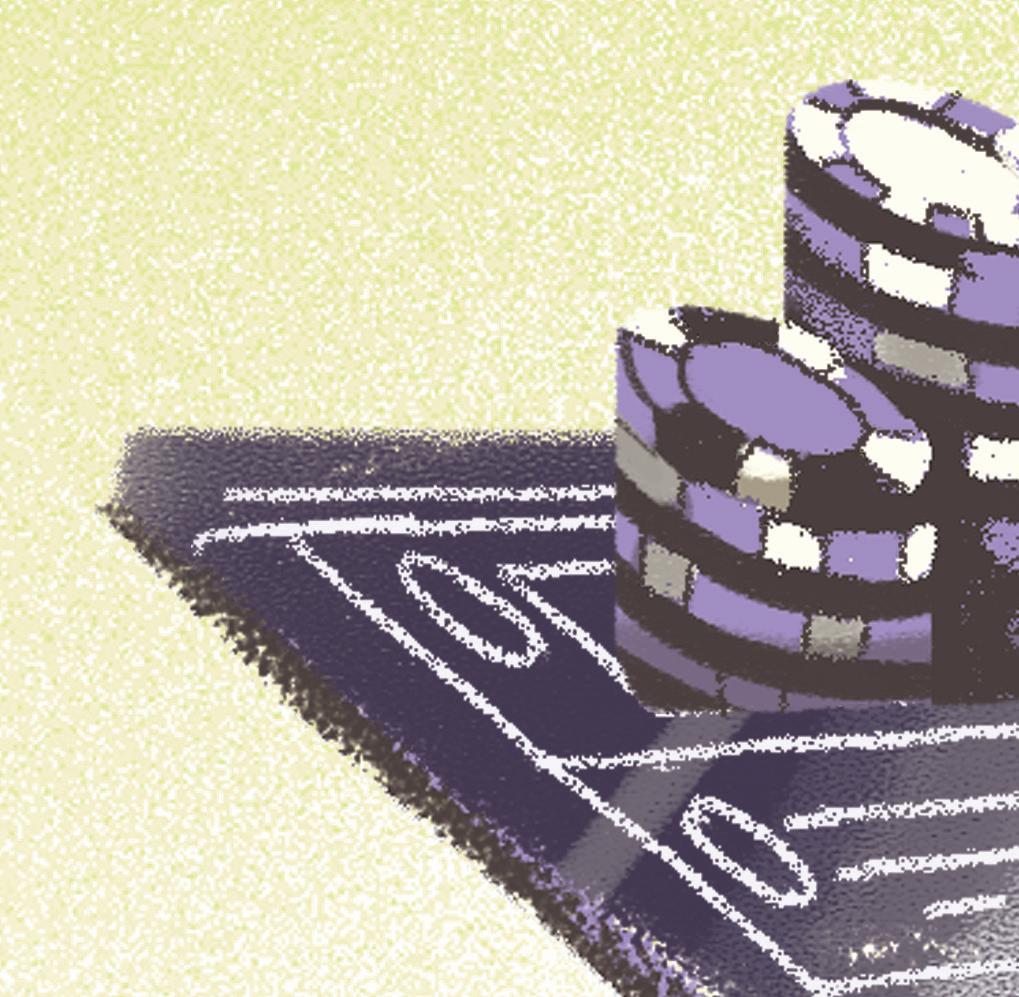

relationships with legitimate brands who may reconsider partnerships with creators associated with illegal activities. The lawyer points to a broader issue affecting the influencer space: many content creators operate from what they perceive as a moral high ground, declaring they don’t accept gambling money. But this blanket rejection often originates from a fundamental misunderstanding.
“You see many digital media outlets that raise a flag saying ‘I don’t receive money from gambling’ as if it were a moral standard,” García Botta observes. However, failing to distinguish between legal and illegal operations opens a different discussion about business sustainability. Rejecting all gambling partnerships might seem ethical, but it puts legitimate, regulated companies in the same category as illegal operations.

But proper gambling promotion could be achievable if influencers followed what regulations actually demand. Many influencers seem unaware of these comprehensive requirements, but Law 6330 in Buenos Aires City establishes specific guidelines for gambling advertising, including requirements for interactive advertising featuring public personalities. García Botta breaks down what proper gambling promotion should include: “When you promote a gambling product, you have to emphasise that it is an entertainment offer, that you have to participate in that entertainment offer responsibly, and that if that entertainment offer somehow affects your mental health, your relationships with others, or your personal finances, you need to seek help. The provider needs to offer channels for assistance, for example, the responsible gambling programs that different provinces have, and tools to limit your consumption and participation in games.”




The requirements also include clear prohibitions: “You cannot diminish or undervalue the importance of work concerning gambling. You cannot say that you’re going to become a millionaire through gambling, or that you should



gamble to pay off debt.” Real examples of problematic content have emerged in the Argentinian market. García Botta recalls seeing influencers advertising that they were paying for dates based on blackjack results, or worse, promoting gambling as debt solutions. “We saw examples of some more well-known influencers who advertised gambling by talking about playing to pay debt, playing as a way to have an additional source of income,” he says. “The reaction from society was very strong in that regard – and that message was corrected quickly.”
The issue moved beyond social media criticism when authorities began taking action. Several high-pro le cases have emerged of Argentinian influencers facing legal scrutiny for promoting illegal betting sites, highlighting the gap between the perceived normalcy of gambling partnerships and their actual legal status. These cases underscore a critical point: many content creators allegedly entered gambling partnerships without understanding the legal landscape they were navigating. The investigations revealed that in uencers were often promoting platforms that not only lacked proper licensing but also targeted jurisdictions where they had no authorisation to operate.
The most significant legal action came from Buenos Aires City, which launched a major criminal case against influencers promoting illegal gambling sites. García Botta notes that this prosecution had immediate industry effects. Agustín Díaz Fúnes, Chief Compliance Officer at Guavapay and a lawyer specialising in crypto and gambling, spoke to Gambling Insider and emphasised the broader significance of this enforcement action: “Today the tools are already there; the legislation is already in place in each of the jurisdictions. Perhaps it was a bit confusing – at the end of 2024, there was a bill that was being discussed and, listening to the speeches in Congress, it seemed like there was no regulation at all. But the reality is that today there are many tools; there has been a lot of work by regulators on this issue.”
The case substantially reduced illegal gambling advertising on social media and forced a public conversation about the distinction between legal and illegal operations. However, when sanctions were eventually imposed on the influencers involved, the Argentinian public was unhappy, to say the least. Indeed, the










or advertising media, here in Argentina, there’s a regulatory restriction regarding the tools you have to advance against or apply sanctions to influencers. There are some contravention codes like Buenos Aires City’s that criminalise advertising, but the penalty is a fine, so ultimately the deterrent element of the sanction has limited value.”

Agustín Díaz Fúnes, Chief Compliance Officer, Guavapay
Buenos Aires City case involved several prominent Argentinian influencers who had been promoting illegal betting platforms to their substantial social media followings. The investigation revealed these content creators had been directing their audiences to unregulated sites that lacked proper licensing, age verification systems and consumer protections.
The legal action sent a clear message about enforcement and the resulting penalties, which involved posting a video on the influencers’ social media platforms speaking about the risks of gambling and taking a gambling course. But they were viewed by many observers as disproportionately light compared to the income these influencers had generated from their gambling partnerships, and the potential societal impact of their promotions.

García Botta acknowledges this enforcement gap: “In terms of influencers


The economic calculation is straightforward for content creators: if the fine for promoting illegal gambling is less than the income generated from these partnerships, it becomes a business expense rather than a deterrent. “The person who’s going to engage in borderline activity thinks about how much it costs versus what profit they have, and they keep doing it,” García Botta explains.
As enforcement actions against in uencers multiply and public debate intensi es, a fundamental question emerges: is additional regulation the solution to the in uencer gambling advertising problem? Díaz Fúnes suggests the issue may be more complex than simply adding new rules targeting content creators. “Maybe it’s not about more regulation, but better regulation. The reality is that the norms exist: each province has quite robust frameworks. It’s not that there’s nothing there,” he explains.
Instead, he points to the need for deeper understanding of how influencers and their audiences interact with digital platforms: “Maybe we should review how people interact with this









technology, do more refined work to understand why these situations occur. Maybe we should think about how people relate to technology: this idea of opening an app to consume content and spending 12 hours looking at your phone.


audiences; especially younger followers who trust their recommendations across all categories.
As Argentina’s provinces continue developing their approach to digital gambling, the influencer advertising challenge highlights the need for regulatory frameworks that acknowledge the unique relationship between content creators and of broader digital consumption patterns. Young audiences don’t just trust influencers with gambling recommendations. They follow their lifestyle advice, product suggestions and entertainment choices across all categories.”

The Argentinian experience suggests that effective solutions require coordination that includes influencers as stakeholders rather than just targets of enforcement. Instead of simply restricting gambling advertising further, the focus may need to shift toward educating content creators about legal distinctions, creating clearer guidelines for responsible promotion
and helping influencers understand their role in consumer protection.
The question isn’t whether to regulate influencer gambling advertising more strictly, but how to create a framework that gives content creators clear, enforceable guidelines while protecting their their audiences in the digital age.

“The evolution of technology that’s been happening in recent times is enormous,” Díaz Fúnes notes. “By creation moves faster than regulatory
“This perspective reframes the influencer gambling issue as part its very nature, regulation always comes after people’s actions.” This creates a particular challenge for influencer oversight, where content creation moves faster than regulatory frameworks can adapt.
The solution likely lies not in restricting influencers, but in empowering them with the knowledge and tools to promote responsibly. García Botta is unequivocal in his conclusion: “Society benefits when you have a regulated entertainment offer, and prohibiting an activity that has always existed is favouring the illegal offer.”

























Gambling Insider reports from Brazil on the country’s state of influencer marketing, best summed up by the recent, high-profile rise and fall of the CPI das Bets
A sunkissed country developed its market without realising the king was already in checkmate. Welcome to Brazil! We’ve got samba, caipirinha and… suspiciously enthusiastic in uencer partnerships with illegal betting operators.
Before the Government could even finish deciding how to regulate the national betting sector, a digital tsunami of affiliate links, promises of easy cash and a fortuitous, or perhaps not so much, tiger washed up on the gambling shores.
And like any great saga, it didn’t take long before the smiling faces on screen were replaced by subpoenas, deleted posts and bizarre Senate hearings. Amid the copious amount of influencers and operators growing in Brazil’s sector, the Senate decided to investigate the phenomenon further – before it was too late, and to hard to keep up with it all.
Ultimately, however, what we saw was the rise and fall of Brazil’s ill-fated Parliamentary Commission of Inquiry into
online betting and influencer marketing (CPI das Bets).
THE EYE OF THE TIGER AND THE INFLUENCERS WHO RODE IT
It all started with a Tiger – more precisely, the notorious Jogo do Tigrinho, the local nickname for Fortune Tiger. Aggressively marketed to young, working-class audiences by Brazilian in uencers, the game promised instant wins and withdrawals with just a tap and a dream. In a country where 15% of the population placed at least one bet in a year and many rely completely on government assistance, the question wasn’t just how it became so popular but why nobody thought about regulating it sooner.
Now, gambling is the same in principle worldwide. No one at Gambling Insider will chastise a good game for being made or marketed appropriately – quite the opposite. But Brazil saw a different phenomenon. Illegal operators were teaming up with influencers who
essentially misled – to put it moderately –their followers by pretending there were glitches in the game that guaranteed wins. Videos were posted of a rags-to-riches story where influencers were now spending their days in Ferraris all because of Fortune Tiger. Any legitimate marketing team in today’s gambling society will know that is outright deception.
The ads were flashy, upbeat and relentless. The platforms didn’t just promise fun, they promised income. For influencers, it was a perfect match. Betting links paid more than beauty deals ever could and still do. Some creators stopped pushing skincare routines altogether and turned their content into 24/7 gambling infomercials.
And no, we’re not talking only about nano or micro influencers, who could actually use the fact that they only have the internet as a source of income, but also the mega-influencers, with millions of followers, millions in the bank and a much wider community.



For example, it came to light that one big influencer wasn’t just promoting a betting platform, she owned it. This wasn’t a bad brand deal gone rogue, it was full-on entrepreneurial integration, with the swipe-up link leading straight to her bottom line.
Known for flashy content and an aggressive promo style, when legal operations knew what she was up to, she vanished. For two months, she was officially on the run, dodging authorities while her name made national headlines. She was eventually arrested in Cuiabá and what had started as an ad campaign turned into a legal thriller, complete with affiliate links and a getaway car. Her case was handled by police and prosecutors through the regular courts but it was one of the many that raised questions on how much influencers should be held accountable for these types of actions. The lines between influencer and operator were now so blurred, the CPI had to expand its scope again.
At the centre of the storm was Senator Soraya Thronicke. Lawyer by training, politician by blood and the one who decided enough was enough to start


consistently raised concerns about compulsive gambling, the lack of advertising guidelines and the risk posed to vulnerable audiences.



Virginia Fonseca, Influencer


Alongside calls for regulation, she also defended the idea of educational campaigns to inform users, especially young people, about the realities behind it. While reactions to the CPI varied across the political spectrum, her name remained the most closely tied to it from start to finish as she was determined to remind players that tigers aren’t just cute, they’re also carnivorous.
our saga. It was Thronicke who formally proposed the CPI das Bets, urging the Senate to investigate the unchecked rise of betting ads, in uencer promotion and the quiet spread of the national digital gambling culture.
She positioned herself as the adult in the room: consistently warning about compulsive gaming, demanding transparency from platforms and calling out the absurdity of it all, often in language that struck somewhere between legal briefing and viral soundbite. Meanwhile, she positioned the inquiry as a necessary step to understand how far the industry had grown without oversight. Thronicke



One of the most notable examples during the CPI das Bets was Virginia Fonseca, the biggest in uencer in Brazil, who became the face of this digital betting frenzy. Known for her family content and ostentatious lifestyle, Fonseca rose to fame in the late 2010s as a YouTuber with daily vlogs, makeup tutorials and relationship content with the kind of upbeat energy that made her instantly viral.
Over time, she built a media empire around her personal life including her marriage to a singer, showing everything her children are doing and her ultrasponsored daily routine. With millions of followers across platforms, she became one of the most influential digital figures in Brazil and, of course, a magnet for brand deals.






She began promoting betting platforms around mid-2023, often through Instagram stories and short-form video content that showed exaggerated excitement and “easy win” claims. Her name became heavily associated with Jogo do Tigrinho, eventually turning her from top-tier influencer into the central face of Brazil’s betting advertising scandal.
She promoted the game with such visible excitement that she was eventually summoned to testify, which she went, wearing a hoodie with her baby daughter’s face in it. The Senators? Theatrically outraged.
Well, all but one… who literally took a selfie with her in the middle of the hearing. (Yes, that really happened. Big smiles and he said his wife wouldn’t believe it.)
During her hearing, Fonseca kept her answers measured, claiming she was simply hired to advertise and had no knowledge of how the platforms operated behind the scenes. She argued she was not responsible for user outcomes and that all her campaigns were handled legally through her agency.
Senators questioned her about the lack of disclaimers and the influence she held over such a large audience. But no formal conclusions were reached as she even admitted she didn’t even use her own account to place bets: the company had provided one. In the end, the committee agreed there was insufficient








Soraya Thronicke, Brazilian Senator
it didn’t end with her either. The CPI soon expanded its investigation to include dozens of other creators who had promoted betting platforms using affiliate codes, exaggerated winnings or just plain bad judgement. Still, it’s important to understand it wasn’t just creators under the microscope. The Senate also started digging into operators themselves, the platforms behind the scenes and even payment processors.


evidence to link her to criminal intent, though her name remained in the final report recommending indictments.
After the hearing, she posted a story on social media alongside the Senators meant to be against what she was doing, as if it was just another adventure. Her lawyer insisted there was no concrete evidence linking her to anything criminal, but the damage was already viral. Between headlines, memes and public opinion, Fonseca became the unofficial brand ambassador of a scandal that didn’t seem to be slowing down.

The Finance Minister himself was called in to explain how betting operations were supposedly being monitored, which helped expose a regulatory system that, at the time, looked more like a sieve than a filter. Many of these activities had occurred before this year’s regulation of Brazil’s online gaming and sports betting markets. And Finance Minister Fernando Haddad has since gone on record saying he would ban online gambling in Brazil if he could, and undo said regulation.
But just like it didn’t start with Fonseca,


That is a strong and perhaps unrealistic stance. As we’ve all learned in gambling, banning an activity does not reduce it, it simply makes it even less safe and under the total whim of illegal operators. But it does show the scope at which Brazilian online gambling, not unlike in the Philippines, operated under a Wild West do-what-you-like set of business ideals.
There were also growing concerns around underage audiences. Very few






influencers were clear on how you could and should be responsible while having fun betting. The ones that attended the hearing, especially, hadn’t added any disclaimers to their posts. Some were actively targeting teenagers with promises, all while hiding the fact that withdrawals were not that easy.
With the net officially widened, the CPI took on a life of its own. A rotating door of testimonies featured in uencers, operators and o cials – each trying to explain how Brazil had let an entire sector grow with virtually no oversight. Some testimonies were well-prepared. Others were chaotic. A few, like Fonseca, felt like performance art.
At one point, the Senate resembled a livestream soap opera more than a legislative inquiry. Senators fumbled through tech jargon while influencers blinked into microphones, wondering how promoting a tiger on Stories had turned into national scrutiny. One moment you were showing your followers a promo code and, the next, you were on national TV being asked whether you knew your link was tied to a Curaçao-based company with no licensing in Brazil. Many simply replied “I didn’t know.”
claimed the process had been hijacked and not taken seriously – as not everyone in the Senate was present during voting. In the end, the report, which recommended indictment for 16 people, including Fonseca herself, was rejected by the Senate committee in a 3-4 voting loss. Months of media spectacle, political grandstanding and meme-worthy hearings… all scrapped.
Still, in true bureaucratic fashion, the Senate received 17 new bills based on suggestions for improvement from Senator Thronicke. It was aimed at tightening betting regulations because, well, if you can’t agree on a conclusion, you might as well flood the system with paperwork. The bills included everything from new ad restrictions and fine systems to more aggressive tracking of operators’ payments and commissions. Whether they’d pass (or work) remained an open question.
in Brazil? There would simply be a Lucky Tiger or Fortune Lion that might take its place. Who knows, perhaps suggestions like that played their part in the final report being rejected?
Still, it wasn’t all for nothing: a clear tone was set. Some influencers pulled back, operators changed their ad policies and lawmakers, finally, admitted the digital space might require actual oversight. Even as the CPI collapsed, the Senate tried to salvage the spotlight by announcing an expanded investigation, this time into ad agencies, payment apps, streaming services and possibly anyone who had ever heard of a slot machine.



Soon, the CPI stopped being about just one app or one game. It became a proxy for Brazil’s bigger digital mess: a market built on reach, virality and very little regulation. The public followed every twist. Headlines swung between scandal and absurdity. And with every hearing, hope quietly built that maybe something real would come out of it.
And then it didn’t.
The final report became a battlefield as accusations surfaced








that names had been added or left out for political reasons. Some Senators
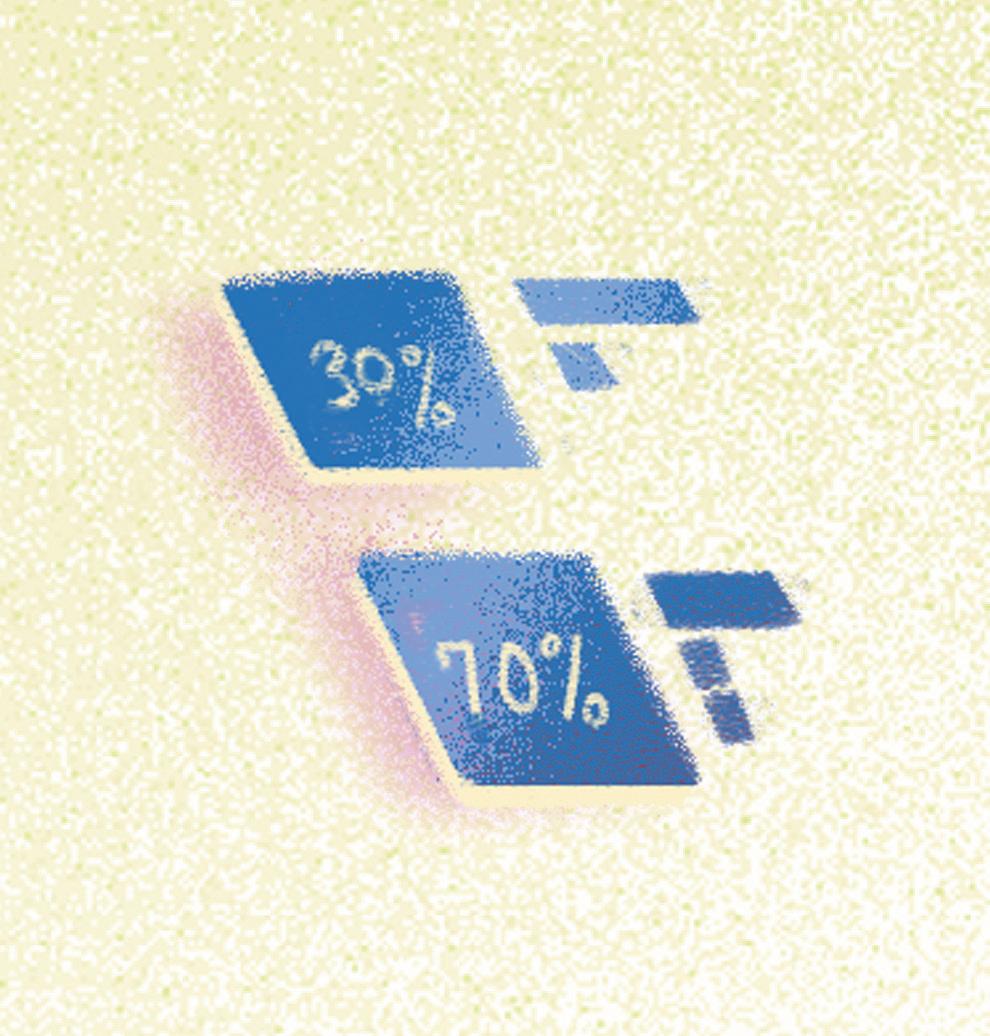







of the deep-rooted

Ultimately, what everyone (with the right intentions) wants is a fair, free market for gambling. That requires regulation – the right kind of regulation. Influencers and illegal operators who have acted with the wrong intentions should be punished; there should be no leniency there. One policy suggested by Senator Thronicke, however, was the banning of Fortune Tiger. How would banning a game fix any of the deep-rooted cultural problems




Finance Minister Haddad called for tougher betting taxation, warning that soft tax structures would only worsen public health issues and financial exploitation, suggesting raising operator’s tax from 12% to 18%. Then came the educational push: a joint campaign with the Bank Federation to help bettors understand financial risks. The same population who had been promised Lamborghinis on TikTok was now getting advice on how to budget. Better late than never? Certainly the right approach.












Just when everyone thought the dust had settled, Congress found something new to fight about. They debated whether to legalise casinos, bingo halls and jogo do bicho, a lottery-style game with animals (apparently, in Brazil, we do seem to like animals in games).
Just when everyone thought the dust animals in games).









Supporters argued that regulation would reduce crime and bring in tax revenue. Opponents warned it would worsen addiction and financial harm. In other words: old arguments in fresh suits while the population stays confused on where to start and where to stop. Senate voting on that is still slated for future chapters.
Indeed, the saga isn’t over. Right now, there is the side to Brazil that excites the industry with its gross gaming revenue potential. But the CPI das Bets helped make the darker side to the industry more mainstream. Hopefully, just like in Argentina and other Latin American markets, operators can work together to help realise Brazil’s betting potential –without caveman marketing tactics that lie to gamblers, promising them the guarantee of endless riches after one spin.
The drama will continue – but hopefully, with a positive contribution from influencers, there can be legitimate progress for this vaunted market.






Rickard Vikström, Founder and CEO of Internet Vikings, the licensed in-state hosting provider for iGaming and online sports betting, explains what it took for the company to grow 600% in just three years
When a European hosting company set its sights on the US, few could have predicted it would achieve 600% growth. But for Rickard Vikström, Founder and CEO of Internet Vikings and his team, the formula for success was simple... not easy, but simple.
Internet Vikings made a strategic pivot that transformed its future. Instead of competing with global hyperscalers on every front, it chose a single, highly regulated niche: licensed, in-state hosting for the iGaming and online sports betting industry in the US.
That focus reshaped the company entirely. Technology, people and strategy aligned. The mission was not just to build exceptional infrastructure, but also to foster a team culture built on trust, a strong work ethic and a deep understanding of client needs.
Hyperscalers tried to serve every industry with the same infrastructure. The US market was just opening up and Internet Vikings saw a gap. The company knew it could o er a hosting solution designed from the ground up for this niche.
The strategy was cautious and deliberate. Today, Internet Vikings holds a strong position in the US, delivering fully licensed, in-state hosting in 24 states and expanding into Canada and Latin America. Its infrastructure is trusted by major iGaming and sportsbook operators and suppliers– and backed by ISO 27001 certification and Cloudflare-powered DDoS protection for the highest levels of security and reliability.
What sets Internet Vikings apart is its ability to serve clients with very di erent operational models without compromising service. Some companies have their own teams and want exibility, while others prefer a partner who takes complete responsibility so they can focus on their core business.
Internet Vikings supports both with the same level of secure, reliable hosting. That support is not just technical; it is also practical. The company’s services are built with the realities of the iGaming and sportsbook sectors in mind:
• Cloud Hosting – Licensed, in-state hosting with rapid scalability for peak loads.
• Bare Metal Servers – Customer-tailored hardware built to meet gaming regulations, giving operators maximum control and performance.


Rickard Vikström, Founder and CEO, Internet Vikings
• Co-location – Compliant, flexible co-location offerings from as little as 1 rack unit, allowing clients to place their own equipment in secure, regulated facilities.
• Disaster Recovery – Same-state redundancy to protect against downtime and data loss. Every solution is backed by transparent pricing, fast deployment and hands-on 24/7 support from real engineers, who understand the sector’s regulatory and operational demands.
Internet Vikings advises European companies to start earlier than they think, invest time to learn the market and avoid rushing into all states at once. Starting small and building gradually saves both time and money, while increasing the likelihood of getting it right from the start.
Across the industry, more operators and suppliers are realising that generic cloud solutions no longer meet their needs. They require tailored infrastructure, real support and a partner who understands the unique demands of iGaming and online sports betting.
For Internet Vikings, that means staying focused on this niche, continuing to refine its specialised offerings and expanding where the market demands.
After all, this is a company that began in Sweden in 2008, built its name across Europe and then methodically conquered one of the toughest markets in the world by staying true to a single principle: do one thing better than anyone else.



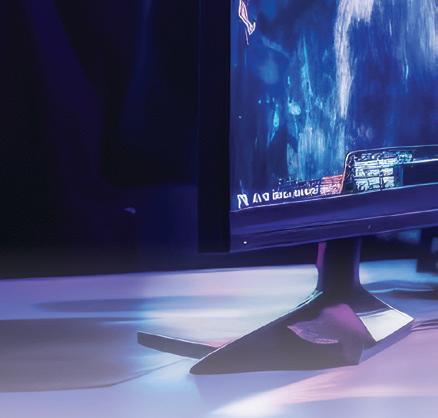




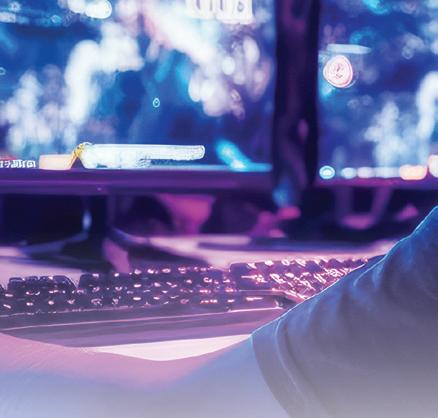

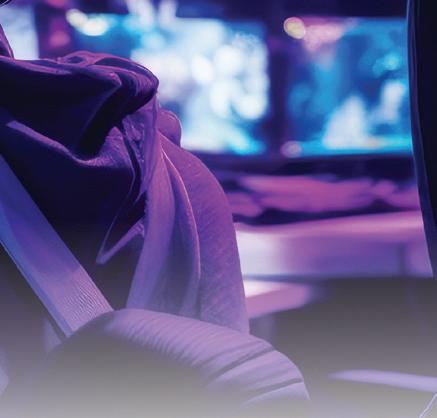



SportGenerate is quickly becoming a dynamic force in the online gaming industry, driven by its vision to deliver high-quality products and exceptional betting experiences. As an ambitious and fast-growing brand, SportGenerate has positioned itself as a key player in the iGaming landscape, with its core focus on live gaming, esports and odds feed solutions.
At the heart of SportGenerate’s success lies a relentless commitment to innovation and quality. The company understands that today’s players demand diverse, advanced betting experiences – and it is precisely this market need that guides its strategic product development. Whether it’s table tennis, esports or its proprietary odds feed technology, SportGenerate ensures each vertical offers partners a unique value proposition.
SportGenerate’s live gaming vertical is built around its mission to popularise and promote competitive sports globally. The brand organises and hosts professional sports tournaments designed to enhance both player engagement and sportsbook content quality. Its agship tournaments, such as the Rocket Masters Cup and Cyber Masters, stand as prime examples of this commitment.
Through these tournaments, SportGenerate delivers continuous highquality betting content, enabling partners to provide players with live events that are dynamic, authentic and deeply engaging. These tournaments are streamed via highquality, low-latency video using platforms such as Twitch, YouTube and HLS, ensuring a seamless viewing and betting experience for audiences worldwide.
• High-definition, low-latency video streaming on multiple platforms
• Advanced 3-dimensional risk monitoring systems
• An experienced in-house trading team managing all operations
• 24/7 dedicated technical support for partners
Esports remains one of the fastest-growing verticals in the iGaming industry and SportGenerate is at the forefront of this revolution. The company delivers over 50,000 live esports events annually, covering more than 40 games and 2,000+ tournaments, with 120+ betting markets integrated into its platform.
SportGenerate provides comprehensive coverage of all major international esports tournaments and leagues, including globally renowned titles such as League of Legends, CS:GO, and Dota 2, alongside its exclusive Cyber Masters Cup. This extensive portfolio enables operators to cater to a wide range of player interests, from competitive gaming enthusiasts to casual esports bettors.
What truly sets SportGenerate apart is its robust operational support. The platform is backed by:
• Dedicated customer service teams
• A powerful back-office system for easy management and reporting
• Strong risk management to protect operators and ensure operational efficiency
With these capabilities, SportGenerate partners can confidently offer their players a stable and rewarding esports betting experience that fosters loyalty and engagement.
In an increasingly competitive market, accurate and dynamic odds are crucial for sportsbooks aiming to stand out. SportGenerate’s Odds Feed is powered by proprietary in-house algorithms, delivering real-time, precise odds across a wide spectrum of sports. This product ensures that operators remain competitive by o ering their players fast-moving and diverse betting markets tailored to modern user expectations.
The integration of Odds Feed with SportGenerate’s exclusive tournaments, such as the Rocket Masters Cup and Cyber Masters, creates a powerful synergy that enhances any sportsbook’s offering.
The result is a betting experience that combines premium live content with dynamic pricing to boost player engagement and operational value.
• Fast and accurate odds across multiple sports and tournaments
• Flexibility for seamless integration with existing platforms
• Continuous optimisation driven by data insights and market trends
SportGenerate is not just a service provider; it is a partner dedicated to driving innovation within the iGaming industry. The company’s team of experts constantly explores new opportunities to expand its product portfolio and develop advanced solutions that meet evolving market demands.
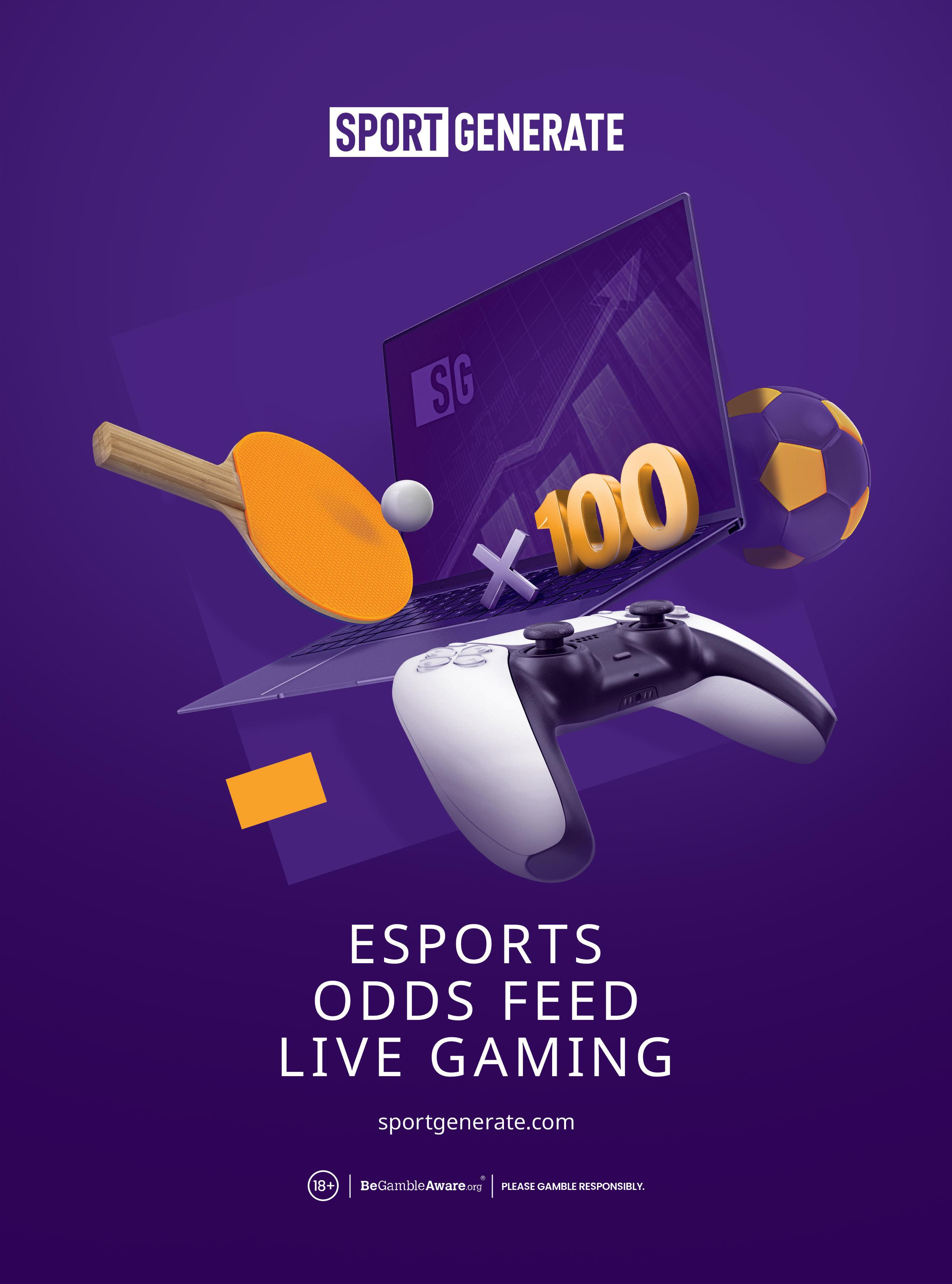



















Having been appointed CEO of VIP Play in June, Les Ottolenghi takes Gambling Insider through his experience in gaming – as well as his hopes for the new role
How have the early adjustments to the new role been and what are some of the early initiatives you hope to progress on with VIP Play?
It’s exciting to be part of VIP Play; this is an industry I’m familiar with, I have experience in and that is constantly evolving. It’s constantly innovating. The exciting part about being in gaming is that it always has this lead around where consumers are in their behaviour or what they like: serving consumers in a way that makes them happy and have fun.
My first observation really focused on online sports betting and soon to be now iGaming as we start our operations in West Virginia. We have an opportunity to define
this 21st century experience and meet the customer where they are, because that’s where all the opportunity is in online gaming and sports wagering.
Was the appointment a “right place, right time” situation, or had you been aware of VIP Play previously?
I think it’s a combination of both. The Chairman of VIP Play, he and I met 5 years ago, and he had recruited me previously. At that time, I was already in a different position but it’s something I kept my eye on. As I moved through my career from being a Chief Digital O cer, Information and Technology O cer, and then into the Chief Commercial O cer role for the last
two companies I worked with, the CEO opportunity was something I was very interested in.
But I really, honestly, wanted to do it in a place where there is this massive scale of opportunity around the intersection of AI. Everybody talks about AI, and it’s overstated in some respects, but it’s not overstated in this industry. What got me most excited was three things that converged, the time that I had with Bruce Cassidy, knowing him for years and watching how he operates, which is with a high level of ethics and a focus on the business.
Number two, the opportunity to be a CEO for a publicly traded company in an industry that I really like, and in a way that is innovative which I love. And, ultimately, where artificial






who was the CEO and my boss, took what was a $2.5bn dollar marketing budget, cut it in half, and then increased yield and return by 28-33%.
I learned lessons about leadership, the ability to scale and know where the market is going through Sheldon and Mike. Through Mark, I learned how a company can be turned around and put into a leadership position within the market, and ultimately be as great as it ever was. So I’m taking both those sets of lessons with me into this role.
How have digital gaming offerings evolved since your time with Caesars and Las Vegas Sands, whether it be iGaming, social gaming or sports betting? It’s bigger and broader between PASPA, the opportunity for mobile devices to get more sophisticated and networks on a communication basis becoming more resilient, faster, secure and introducing outcomes. One thing I’ve noticed is it’s not just about sports wagering or iGaming, it’s actually about fun outcomes. That’s what people are looking for even as we notice consumer behaviour change and players gain the ability to bet online.
poker around a table, throwing dice at craps or they’d be across from each other at slots. Even in the sportsbook, you take something like Circa in Downtown Las Vegas, it’s a very social activity. So we have to ask ourselves, is the online activity actually worthy of that? Is it social? And I don’t think anyone’s done that. I think that’s a step the industry is going to have to take.
Are there ways in which VIP Play can enter this type of gaming space, possibly through social casinos or sweepstakes?
We’re going to be looking very seriously at the social gaming side of things, non-real money wagering. We’re de nitely going to be looking at sweepstakes where it’s compliant, and where the regulation is followed which allows us to do things the right way. What I have not seen, and I think this is going to answer your question, is how do you coordinate those interactions between people?

intelligence is going to redefine not just basic business operations, but the whole consumer engagement model. It was really those three things that got me here.
Having held leadership positions with operators like Caesars and Las Vegas Sands, is there any carryover from those experiences you can bring into your role with VIP Play?
Absolutely. I had the great bene t and honour to work with Michael Leven at Las Vegas Sands, who’s arguably the best operator in the industry. He was COO and when he started there. I believe the stock price was $1.54 and when he left it was $88. Then, I got the chance to work for Sheldon Adelson, the Founder of Sands. I got to see the operations, the thinking, the mind and the execution behind two of the greatest executives in the industry. There’s this scale, and frankly this target, for me personally to try and meet some level of the same success that they both had in the industry.
I also had an incredible opportunity at Caesars of turning around a company that was in bankruptcy and focusing on the new things in the industry, social gaming, operational efficiency, etc. Mark Frissora,
Really what people are doing for the most part is having fun, and you’re seeing this start to expand further. Back then, you could do some online social casino gaming, maybe the folks that were offshore would offer something similar, but it was very narrow-casted. Now it’s super broad and within that same space of time, there’s an entire generation of people who grew up on outcome-based entertainment, video games, esports, the ability to sit in a stadium and record LeBron James shooting a three or dunking over somebody at the Lakers game.
All the excitement you see now is about the activity becoming part of the mental framework, the zeitgeist of everyone who sees entertainment in the form of outcomes. Then you put data into it. Data at scale, everybody’s getting lots and lots of data on everything, and people are combining that into their natural behaviour. Now the one thing I haven’t seen is what’s the social aspect of this? In other words, what I see in the casino is people getting together, playing
What we have already observed and will be mimicking, honestly, because we’ll have to look at what the best practices are as much as our own original thought, are these event-based activities are coordinated through AI. There are companies using AI to coordinate events like marathons, for example, where you can register for a race and text your friends to train or meet people online. Our industry is going to need the same thing.
Coordinate the online and the in-person, coordinate five people all getting together virtually, not having to get together on a Zoom or Teams, but get together in a way that lets them have fun as if they were sitting on their back patio or in the game room of their house. Those are the things people are looking for, and the industry is going to move there with AI. We’re already working and testing this type of capability, user experiences, and we’ll have some announcements later this year on the product.
Given the polarising legality of iGaming across the US, what steps does VIP Play take to ensure the operator is expanding in a regulated manner?
We work very closely with regulators
“I can see a day in the not-too-distant future where, through AI, we have the same operational scale as DraftKings or FanDuel”
and we don’t take a step without approval. I know that sounds pretty conservative, and I know there are operators who do not approach expansion in that way. I came from a compliance-driven background with Sands and with Caesars, we always asked rst before taking action. It actually works better because it gives you an opportunity, as an operator, to work with the regulators and explain the technologies, the user experience and responsible gaming, which I learned to the highest degree at Caesars. I don’t know if anybody was better at it and better prepared than Caesars.
When you look at someone like Jan Jones Blackhurst, who leads Caesars in that area, responsible gaming was foremost and with the way sports wagering has started to develop, that has to become the rst thought for every operator. We have an entire generation of young people who are coming online to gamble and we don’t want them ending up in a bad spot, but we also know there’s some data that shows it’s already happening.
The industry has to act responsibly. The first thing VIP Play thinks of is the responsibility of what we are doing and how we can be compliance driven. Our engagement is first and foremost with the regulators to make certain they understand what we’re doing, how we’re doing it and then gain approval to actually do it.
Are there ways in which VIP Play could navigate the somewhat negative view many regulators have toward sweepstakes should it become part of the operator’s catalogue? We will see if it’s possible to do that, but I do want to make the distinction that sweepstakes are not currently in our plans, because if it does have some sort of negative connotation as you said, it’s just not worth it. You want to be the good guys. You also want to produce things that are good for your customers... if the consumer is not bene ting from it, it shouldn’t be something we do.
Again, we do this on a compliance-driven basis for everything, but with social gaming and no real-money wagering, there are different experiences the consumer is now starting to define what they want. Instead of taking a product-first approach, we can take a consumer-first approach and begin listening to what things they like to engage in that would have a positive social impact. That’s where a lot of our additional effort is focused. It doesn’t mean we wouldn’t pay attention to sweepstakes. Of course we will if it makes sense, it’s compliant and can be profitable; but if we had our choice, our efforts are always going to be on what
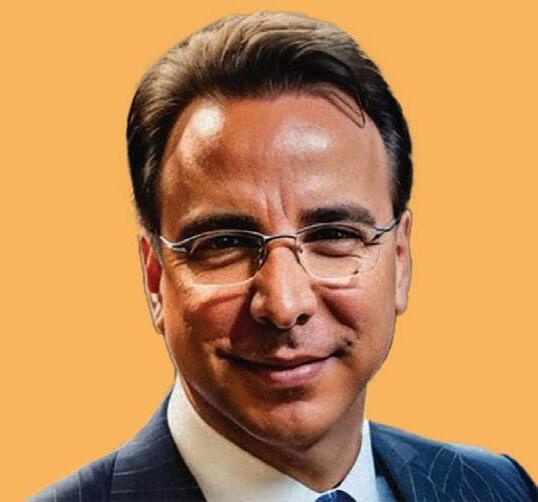
Les Ottolenghi, CEO, VIP Play
the consumer is asking for and going about providing those services.
Sweepstakes are a big thing, so it’s hard to say ‘absolutely we’ve ruled it out,’ but at the same point in time with everything regarding bad actors, there’s an ethical line you draw, there’s a legal compliant line you draw and the ethical one is hopefully commensurate with the legal one. Either way, we will go for the highest possible denominator, not the lowest common denominator.
With VIP Play having most recently expanded its operations to West Virginia, are there plans to continue advancing business into additional US markets?
We’re carefully considering that. It’s an analysis state-by-state of what’s most e ective operationally and some of our guidance is even focused on what are the market opportunities for segments that are currently under-served. The experience is not uniform for everybody. A male between the age of 25 and 35’s experience may be different than a woman who is between those same age demographics, and they’re so highly under-served that we’re actually judging each one of our new markets and opportunities by this criteria.
The typical path is to say ‘oh, where is iGaming going or where is sports betting headed?’ But for us, we prefer to focus on markets we believe need our services because it can result in higher retention rates for players in the long run.
As iGaming grows in popularity within areas such as Canada and LatAm, could those markets also present opportunities for VIP Play?
Yes, we’re not just staying within the US, we’re de nitely going to evaluate Canada, LatAm and South America if there are opportunities. I had the privilege of serving
on the board of Codere, which features enormous operations in both South America and LatAm, so I’m very familiar with those markets, and absolutely we’re taking a very hard look at both of those.
How do you foresee AI becoming an even greater integration for either iGaming or sports betting throughout the remainder of 2025 and in the years ahead?
Again, it’s all dictated by what’s compliant and what’s regulatory-driven, but to ignore it would be foolish, and of course, I think it’ll be foundational. We’re going to lean heavily on AI from an operational point of view, making certain that we stay compliant with everything, but also scale our business via the orchestration AI can provide for an organisation that makes us, frankly, as big as any of the other operators.
I can see a day in the not-too-distant future where, through AI, we have the same operational scale as DraftKings or FanDuel. From the consumer point of view, there is still a strong 20th century presence in terms of how we approach players and attempt to gain their business. But what does the experience need to look like in the 21st century? It probably needs to look like an AI agent acting in a way that helps the person enjoy their experience to a greater level. As I said earlier, AI can help coordinate users to get together in person and bet the same way they would at a physical sportsbook.
How realistic is that as a future prospect for gaming in the US?
That is the type of thing I believe we’re going to see more of when we talk about AI and we’re certainly exploring how that would work at VIP Play. And then, of course, we will talk with our regulators and our compliance team to make certain whatever we do, whatever we test, is fully in alignment with whatever our jurisdiction requirements are.
The industry is going to move fast. It’s going to change because consumers will demand it and, whenever an industry doesn’t meet consumer demand, they find a way to do something else. It’s incumbent on VIP Play and on the industry to meet those new demands, and we’re only going to see them accelerate further as we talk about AI.
Those demands are only accelerating further with the capabilities of large language models and AI agents which are part of the personal experience for players. Somebody can control what they want to see, how they want to experience sports, the act of wagering and ultimately how they have fun with outcomes, which we plan to be at the forefront of.

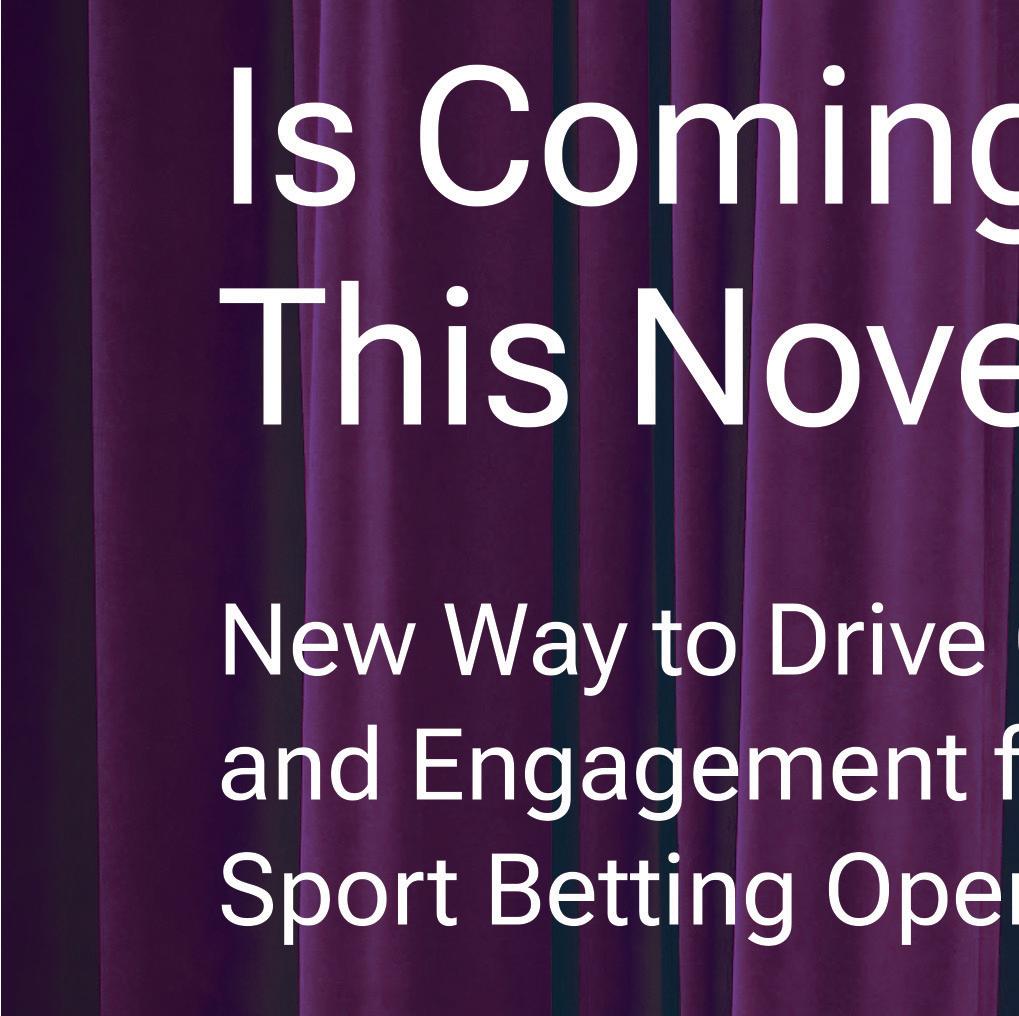

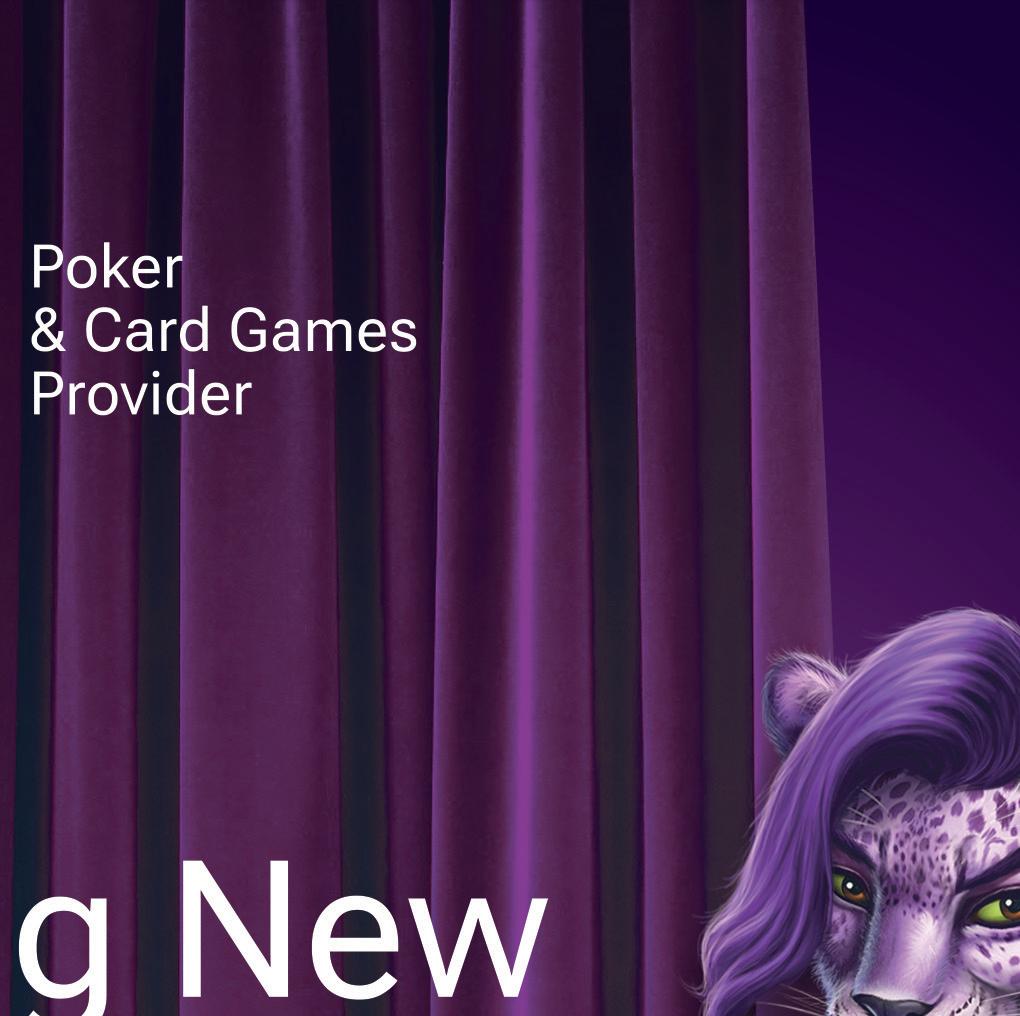

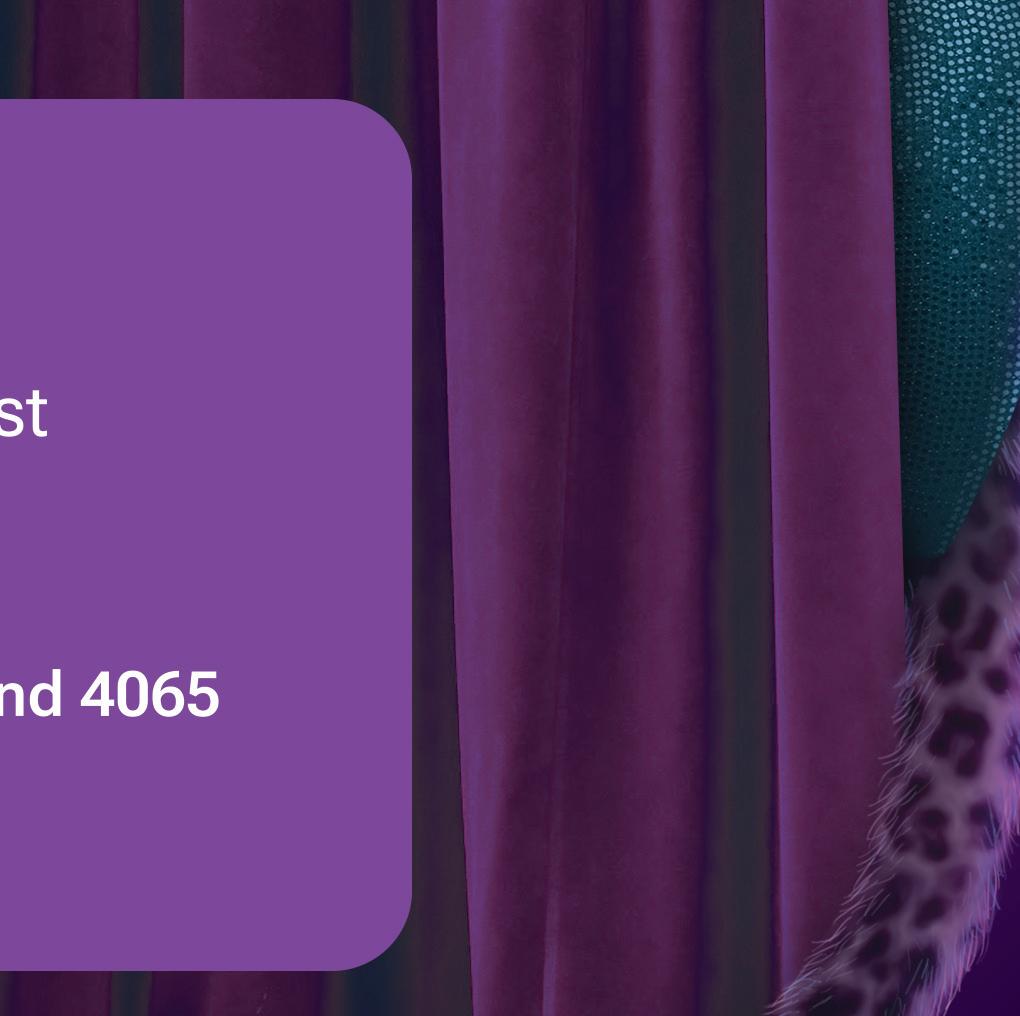






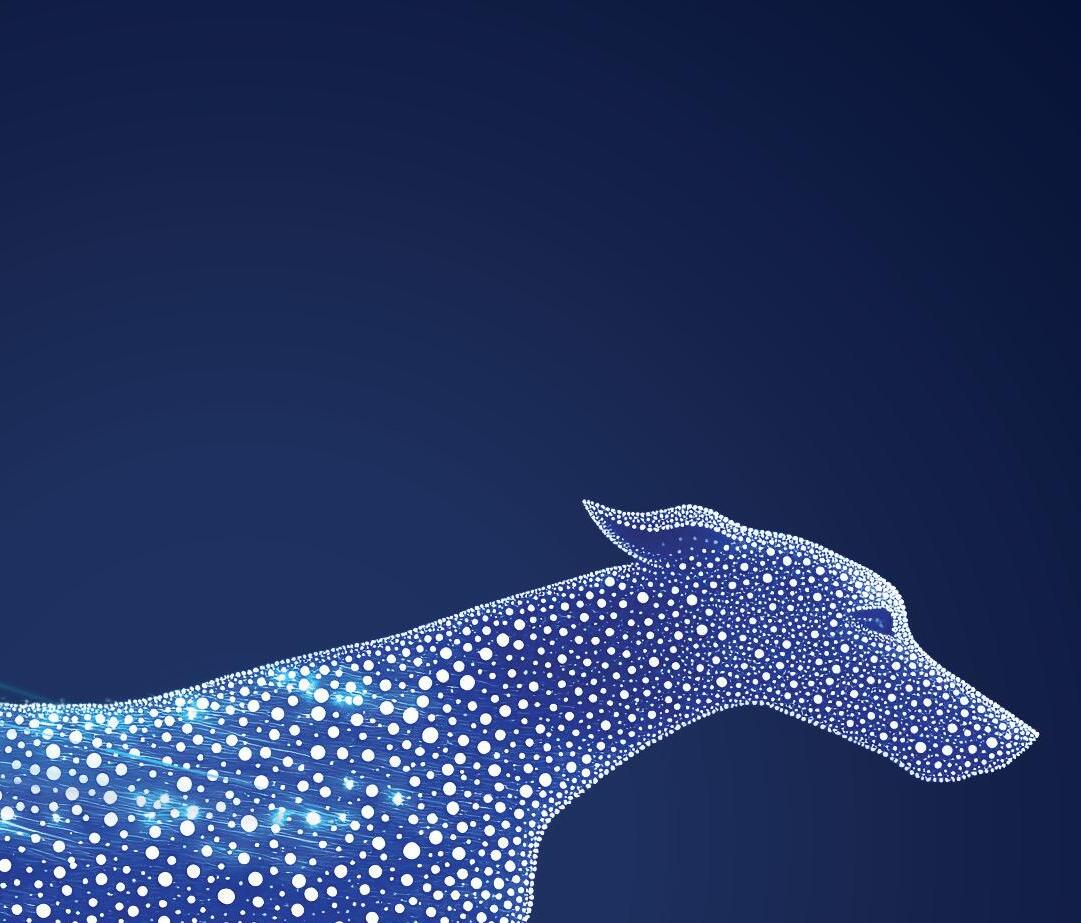

Gambling Insider spoke with Chief Commercial Officer at DS Virtual Gaming, Araksi Sargsyan, on the supplier’s 20-year anniversary
It’s the 20-year anniversary of DS Virtual Gaming. The same year as Gambling Insider’s 15-year anniversary! When DS Virtual Gaming rst entered the market, what did it look like and what services did you o er? Congratulations on your 15th anniversary! When DS Virtual Gaming first started exhibiting its games 20 years ago, the industry landscape was entirely different – and I truly mean that, from the type of content available to the regulatory environment. From day one, we introduced a completely new approach by using real pre-recorded content–a concept that was both innovative and unusual at the time.
Our very first game was Racing Dogs, which remains our best-seller to this day. At the time, the demand was almost exclusively for horseracing, but
the operators who chose to launch with greyhound racing quickly realised players were drawn to it – and for good reason. Racing Dogs offered a faster pace and more dynamic entertainment, which immediately captured player attention.
It took us about a year to prove that this format had a strong future in the market. Since then, much has evolved in our product – from the visual quality to the delivery channels –but the core mathematics behind the games have remained untouched. That foundation continues to define the fairness and reliability of our content.
Technology in 2005 is very di erent from today. How has your virtual greyhound racing product evolved as technology has improved? When it comes to technology, DS Virtual
Gaming has always been at the forefront of the industry. Innovation is deeply embedded in our company culture – there is truly no one on our team who isn’t involved in or passionate about technology. We firmly believe that, without constant technological advancement, sustainable progress is impossible.
Looking back at 2005, many of the components and systems we now take for granted were either unavailable or extremely difficult to implement. Hardware limitations, slower internet connections and the absence of advanced graphic capabilities presented significant challenges. Yet we pushed forward.
As technology has evolved, so have player expectations. Today, games must not only be visually impressive but also seamless, fast and adaptable across
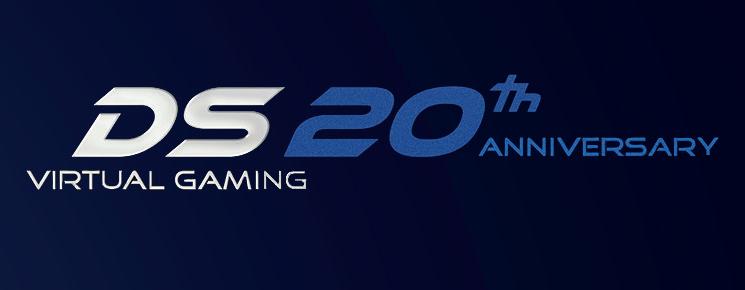
What products does DS Virtual Gaming o er now that simply could not have existed 20 years ago?
While it’s true that most of our current products could have existed conceptually two decades ago, the technology required to bring them to life at today’s standards simply wasn’t available. The di erence lies not in the ideas themselves, but in the quality, speed and sophistication with which those ideas can now be executed.
new games, enhancing our graphics and rethinking our long-term direction.
multiple platforms. We’ve responded to that shift by enhancing our products in every aspect – from highdefinition video and smoother gameplay to multi-channel delivery and greater customisation. While the tools we use have changed dramatically, our commitment to quality, speed and player engagement has remained constant.
In the last 20 years, which technological developments have most signi cantly impacted the direction DS Virtual Gaming has taken?
Two technological developments have had a particularly significant impact on the direction of DS Virtual Gaming: Multichannel provision and communication speed. First and foremost, the ability to deliver our content seamlessly across multiple channels has transformed the player experience. Today, we offer the same betting options, bonuses and jackpots through various access points – including our cashier solution, order ticket system, self-service betting terminals (SSBTs), web and mobile platforms. This flexibility ensures players can engage with their favourite games anytime, anywhere and on the platform that suits them best.
Equally important has been the dramatic improvement in communication speed. We’ve reached a milestone latency of just 150 milliseconds, which plays a critical role in maintaining a smooth, real-time gaming experience. This level of responsiveness is essential for both player satisfaction and operational efficiency. Together, these advancements have enabled us to maintain a high standard of consistency, accessibility and performance across all of our products.
Two decades is a significant span when it comes to visualisation and technological progress. For instance, the video quality we deliver today – high-definition, seamlessly rendered content – would have been impossible to achieve at the time due to hardware limitations and bandwidth constraints. Even five years can make a remarkable difference in our industry; in the past two years alone, the integration of AI into our workflows has transformed how we operate. What was once handled manually is now partially automated, boosting both efficiency and scalability.
If we were to have this conversation two years from now, we would likely be speaking a different technological language altogether. The pace of innovation continues to accelerate and, at DS Virtual Gaming, we remain committed to staying ahead of the curve.
You have personally been with DS Virtual Gaming for over five years. Even in that time, how has the business changed?
A lot has changed. I joined DS Virtual Gaming just as the Covid-19 pandemic began – a time of immense uncertainty and disruption. With betting shops closed and movement restricted, the industry faced unprecedented challenges. However, instead of standing still, we used that time productively. We focused on developing

Over the past five years, DS Virtual Gaming has undergone a significant transformation. The vision of the company has evolved, our goals have become more ambitious and we’ve begun to dream bigger. Today, I feel that we are truly gaining momentum. While there’s still a long way to go to reach the level we envision, it’s clear that with each milestone we achieve, we’re inspired to reach even higher. It’s been exciting to be part of that journey – and the best is yet to come.
If you could go back to 2005 and give the company one piece of advice, what would it be?
Be ambitious, believe in yourselves and have the courage to take bold steps. I often say the best time to plant a tree was 10 years ago; the second-best time is today. There’s no value in dwelling on missed opportunities – what truly matters is taking action now. Each company has its own unique path, shaped by its vision and strategy. What’s most important along this journey is to find the right people to walk with you – partners, colleagues and clients who share your values and ambition. With belief, clarity of purpose and the right allies, anything is possible.
Looking to the future, in 20 years’ time, do you have any predictions for what the gaming market might look like?
Twenty years is a long time, and the gaming industry has proven time and again that anything can happen. However, I do have a few expectations for what the future might hold.
I believe we’ll see comprehensive regulation across all markets, with clear and consistent rules in place. This will bring greater transparency and security for both operators and players. I also anticipate significant consolidation, where many of the companies we know today may no longer exist – yet new, innovative players will emerge. In many markets, we may see dominance by three to four strong operators, which could further enhance player protection and service standards. As for DS Virtual Gaming, we’re not waiting for the future – we’re actively building it. In September, we will launch a new game and, before ICE 2026, we plan to introduce something truly unprecedented in the industry. By 2027, we aim to unveil a product that will be completely unexpected. Our team is highly motivated and we’re ready to make our mark – not just by keeping up with the industry, but by helping shape its future.









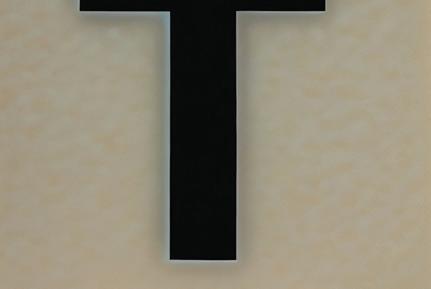


















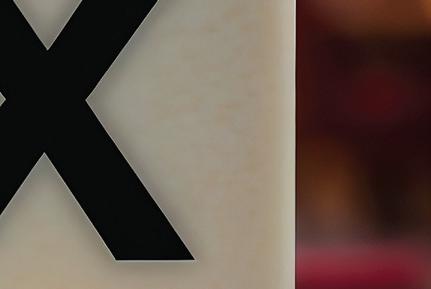








Gambling Insider explores the past, present and future of US gambling taxation, evaluating the potential repercussions of recurring raises across the market
‘What happens in Vegas, stays in Vegas.’ A saying no doubt applicable to many a situation. Yet, one that remains entirely inapplicable to the practice responsible for cultivating the city’s raucous reputation.
You don’t have to be in the industry or even a gambler to recognise Las Vegas as the indisputable epicentre of modern gambling in the Western world. Indeed, while the practice was contained in the US almost exclusively to the state of Nevada for much of the 20th century, the US industry
has now proliferated into a near-$72bn entity – according to the American Gaming Association’s (AGA) revenue statistics from 2024.
While it is a one Christopher Colombus who is largely credited with the introduction of gambling to the Americas in 1492 – it was the British colonisers who pushed the practice to the fore in North America. However, during the centuries in which the country was at war with itself, the ‘fore’ failed to really extend past local casinos, saloons,
riverboats and betting booths. Further, even though the American Revolutionary War in 1776 was partially financed by the sale of lottery tickets, the US’ initial approach to gambling as an independent nation was extremely tentative. A pendulum of indecisive legislation continued to swing back and forth for almost 150 years following independence until, in 1931, the Wide Open Gambling Bill was passed in Nevada – opening the floodgates for wagering in the state.
This, as they say, is where it all began –and a lot has changed in the time following regulated gambling’s humble beginnings in the US. Namely, tax.
Indeed, specified as part of the Wide Open Gambling Bill in 1931 was a monthly unit-based tax structure that imposed a $25 tax per table, $10 tax per slot machine and $50 tax for any other casino games. Nowadays the industry has taken on a completely di erent form – and changing with it is the shape of taxation.
Currently, gambling in Nevada is taxed largely at a blanket rate of 6.75%, which is, incidentally, the joint-lowest rate of tax in the country alongside Iowa. Considering the Nevadan economy’s dependence on gambling – alongside the frenzied expansion of the practice across the US –this fact may not be surprising. On the other end of the scale, the regulated states with the highest sports betting tax rates are almost exclusively located on the more liberal East Coast, including; New York (51%), Delaware (50%), New Hampshire (50% retail, 51% online), Rhode Island (51%) and Pennsylvania (36%).
Elsewhere, other states such as Vermont impose tax by operator. Since only DraftKings, Fanatics and FanDuel are allowed in the state – they are charged rates of 31%, 31% and 33%, respectively. Generally, however, the meat of the bell curve for tax rates on gambling in the US lies between 10% and 30%.
Yet the fast-paced evolution we are now seeing within the US comes with the inevitable caveat of shifting agendas. And as the scale of the industry continues to expand, the conflicting ideologies of operators and regulators have led to disagreements both more frequent and spectacular in nature.
It feels as though each new week brings with it a fresh regulatory con ict between operators and lawmakers – perhaps the most amboyant of which in recent times was FanDuel and DraftKings against the state of Illinois. In June, less than a year after raising sports betting tax to a minimum of 20% (and a maximum of 40% for some operators) the Illinois Gaming Control Board announced in June 2025 it would be levying a 25% tax on all wagers – increasing to 50% for any operators that accept 200 million or more bets.
Naturally, this essentially limits the 50% rate of tax exclusively to FanDuel and DraftKings, who each responded almost instantaneously by introducing $0.50 transaction fees per wager in the
Amid the regulatory whirlwind, sports betting continues to explode in the US – and it won’t be long before a state hits the $3bn monthly handle mark. But who will get there first?
As we know, the story of modern (regulated) sports betting in the US began with the May 2018 dismantling of PASPA, which saw Delaware become the rst state to regulate sports wagering. Indeed, Delaware’s rst ever monthly handle saw the state accept $15m in wagers. The soon-to-be big boy market of New Jersey was hot on Delaware’s heels, however, accepting $40.6m in wagers for the month of July.
Then, in June 2018, New Jersey also legalised sports betting –followed later by Pennsylvania in November 2018, Illinois in March 2020 and New York (mobile) in January 2022. As of August 2025, New York’s cumulative handle ($71.5bn) has now surpassed that of New Jersey’s ($64.5bn). Of course, the regulation of these particular states came amid the simultaneous stampede of state sports betting markets being opened across the country. Nevertheless, since the US has continued to develop into maturity, the New Jersey, New York, Pennsylvania and Illinois markets
state. This reaction split industry opinion, with some labelling it extreme and others viewing it as a provoked response. Regardless, it represents something of a crescendo to what has been a growing trend of rising tax rates on gambling across the US. In 2025, so far, New Jersey has also inflated its rates to 19.75%, Maryland has increased its mobile wagering tax from 15% to 20% and lawmakers in Louisiana have also passed a bill to increase sports wagering taxes from 15% to 21.5%.
Elsewhere, proposed raises are also on the table in Wyoming, Pennsylvania, North Carolina, Massachusetts, New Jersey (again) and Ohio. From an operator’s perspective, tax raises must feel as though they are flying in from almost all angles in
have become the key jurisdictions of wagering popularity and volume. Now, with sports betting statistics on a meteoric rise in the US, Gambling Insider evaluates which of these states could be the first to surpass the $3bn monthly betting handle mark. Looking back, it was the Garden State that surpassed the first major milestone, becoming the first to turn over a $1bn+ monthly sports wagering handle in September 2021. Indeed, in the three years following the overturning of PASPA, New Jersey was undoubtedly the number one state for sports betting in the US. It wasn’t long before it was knocked from its perch, though, as New York exploded onto the scene in 2022 with an initial monthly handle of $1.6bn. Naturally, the Empire State was then the first to cross the threshold of the next major milestone, turning over the US’ first ever $2bn+ monthly handle in October 2023. Now, New York also retains the record for highest-ever recorded monthly state wagering handle of $2.48bn. When could New York (or other) break $3bn?

the US – but there is certainly no indication of the trend slowing down. Regulators, much like operators, have begun to recognise the financial potential of the gargantuan national market and it would appear that they are now looking to ‘cash in’ on the tax revenues that can then be re-invested into industry and elsewhere.
Positive initiatives pertaining to responsible gambling and related industry areas are becoming increasingly important as the scale of gambling continues to rise in the US. But these kinds of initiatives often only draw smaller investment from the operator’s side – hence one potential reason for fast-increasing tax rates.
Almost as certain as death and taxes is the inevitable response from the operator’s side that these increased taxes will lead players towards the black market. Of course, there is truth in this argument – and while it would be refreshing to hear an alternative argument presented as to why operators shouldn’t have to shell out additional tax funds, it is always an important point to consider.
Nevertheless, when analysing the recent Illinois hike, DraftKings and FanDuel’s response of imposing a $0.50 transaction fee – to be paid by the players – seems to render this duty of care argument insincere at best.
What this instant reaction from the nation’s two biggest operators tells us for certain, though, is that they’re worried. Rapidly increasing tax rates are, of course, bad news for industry participants. And FanDuel, alongside DraftKings, will want to send a message to other states not to follow in Illinois’ footsteps of introducing two sizeable levies in one year. This leaves regulators with a tough line to walk... they will not want to give in to the power of any corporate gargantuan. However, increased taxation combined with the subsequent implementation of transaction fees across multiple states is a surefire combination for black -market proliferation.
Predicting the future direction of the current US gambling market – even for the most well-versed industry experts – would be as futile an exercise as turning to Kalshi to predict the relationship status of your favourite celebrity couple.
Something that has become increasingly clear over the past seven years is that the US has no intentions of following any legal, cultural or protective models laid out before it by the more mature European space. A lack of regulatory oversight on sports betting advertising and more emphasis on the self-exclusion model have highlighted that many in the industry want to leave the responsibility in the players’ hands. Nevertheless, when it comes to ensuring a fair marketplace, the direction of future travel seems to be caught between the respective GPS systems of the regulators and the largest operators in the US. And the two sides are at loggerheads. Indeed, unification is almost as difficult as predictability. Yet the US industry has certainly united against one of US gambling taxation’s more notable recent developments; Trump’s ‘Big Beautiful Bill’.
player won $100,000 in 2025 but also lost $100,000, they would still have to pay $10,000 in taxes. Many have suggested the bill has the potential to completely kill the professional gambling industry in the US, irreversibly changing the shape of the wider national market.
If this happens, improved lines of communication between operators and regulators will become an absolute necessity – as thousands of players will have to be barricaded from flocking to the black market in a stampede.
This, combined with the reaction of the nation’s two biggest gambling operators to back-to-back tax hikes in Illinois, are two developments that have reverberated across the spine of America’s regulatory network. And if concerns pertaining to the oversight of regulated operators and players is one thing, dealing with the prediction markets, sweepstakes and DFS pick’em operators that are currently circumventing sports betting taxes altogether is another entirely.








The bill has the potential to all-buteradicate the professional gambling sector of the US market. This is because, specifically, President Donald Trump’s budget reconciliation bill would only allow for gamblers to deduct 90% of their losses along with any winnings made throughout the year; meaning if a






As such, amid the currently ferocious climate of legislative contention pertaining to ‘new wave’ gambling operations –namely; sweepstakes, pick’em DFS and prediction markets – regulators will want to do everything they can to retain some kind of amicable equilibrium with ‘traditional’ gambling operators. If they don’t, it is easy to see the US market becoming something of a toxic free-for-all.
















































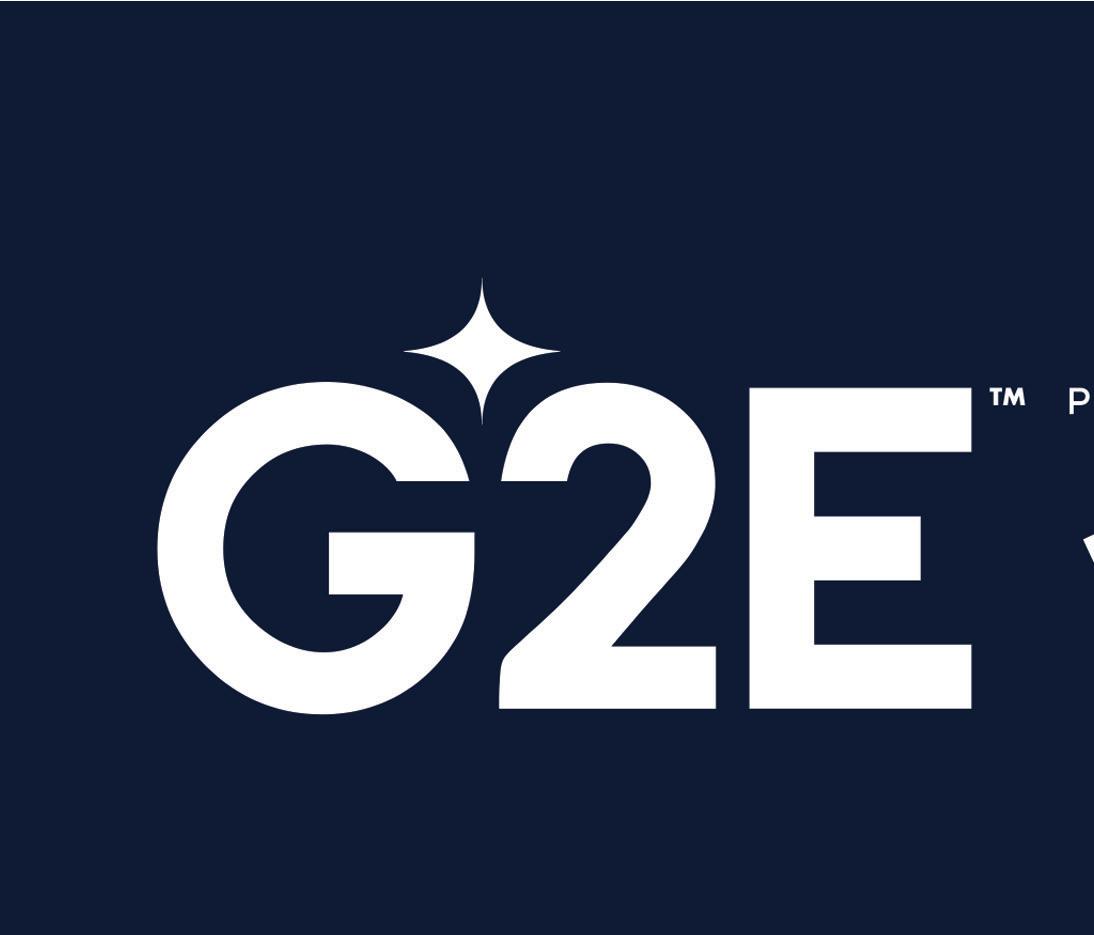
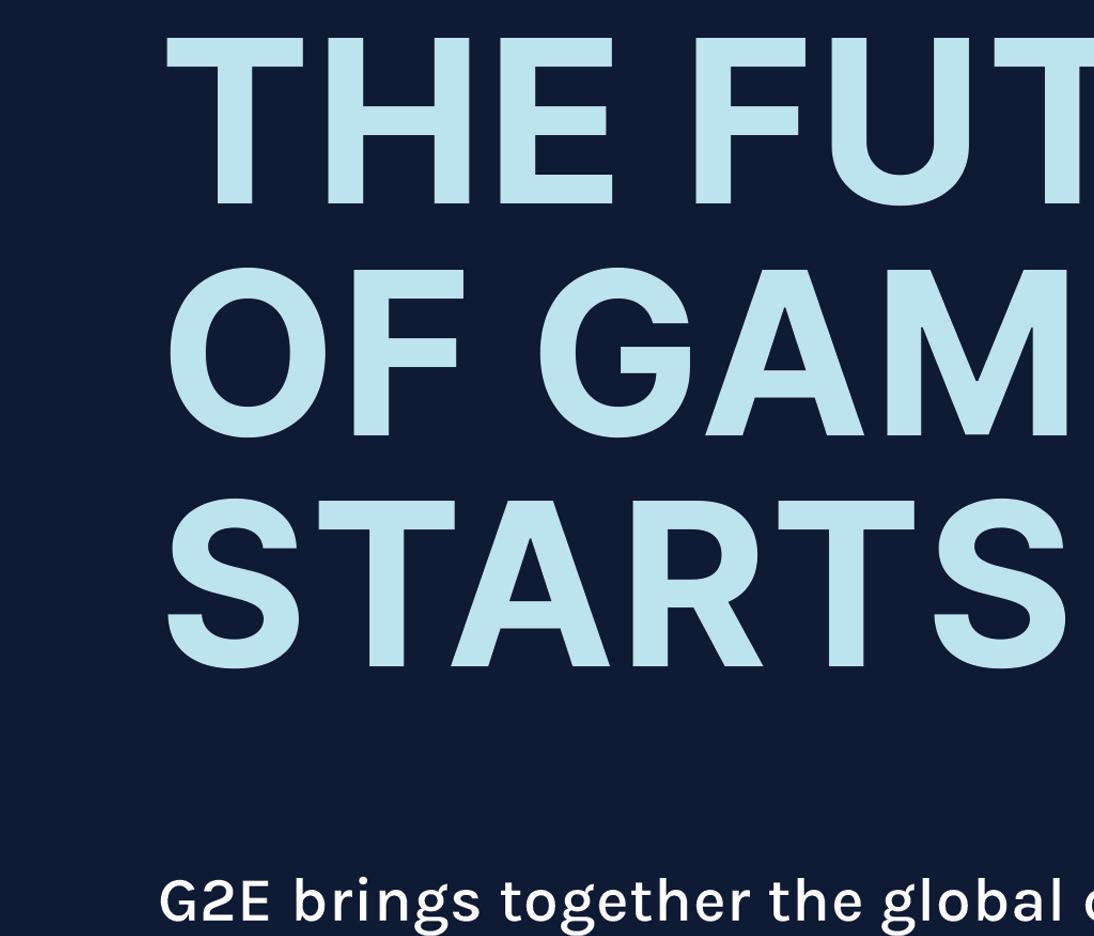

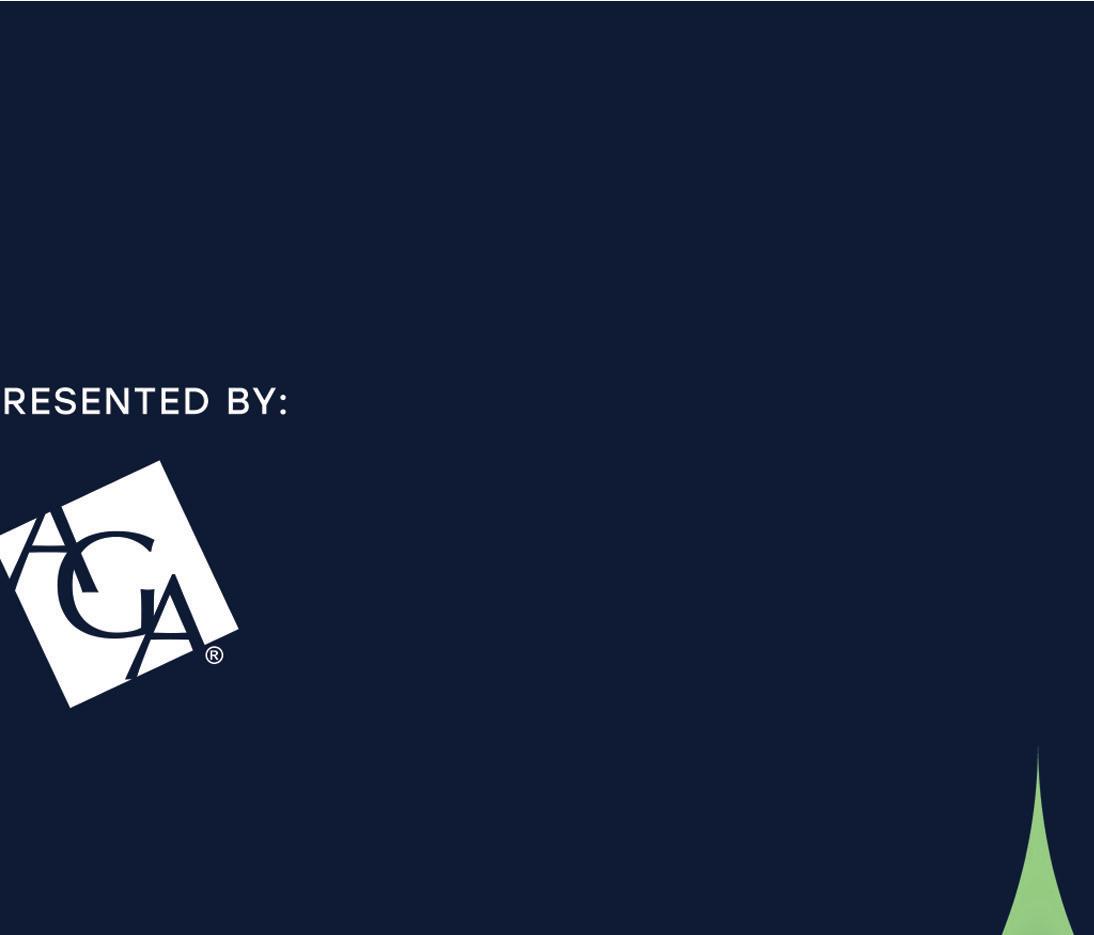

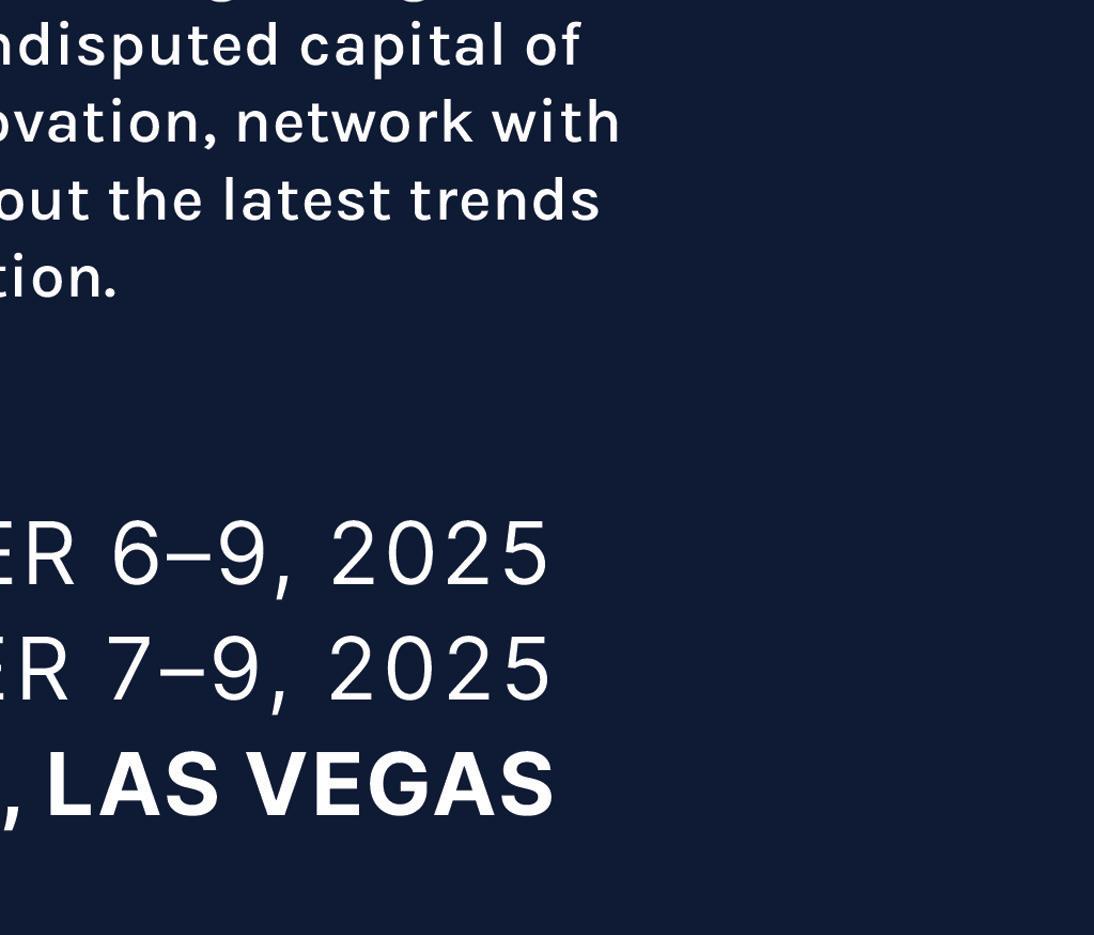








ZwillGen
Founder and Managing Member,
Marc
Zwillinger
, speaks with Gambling Insider about the regulatory turbulence on the Californian DFS scene – and what this could mean for operators both in and outside the state
To begin, can you give us an overview of the background behind (and legality of) daily fantasy sports (DFS) in California? What exactly are Attorney General Rob Bonta’s powers in implementing a potential ban on operators?
For a start, I would say it’s a little too soon to talk about eliminating any operators or practices from the state, but the AG has de nitely issued an opinion that explains why, in that o ce’s view, both traditional DFS and what some people call DFS 2.0, and other people call Pick’em games, are illegal in California.The rst thing Attorney General (AG) Rob Bonta correctly pointed out is that skill isn’t all that matters with regards to gambling laws in California. If someone places a bet on a sporting event, it’s not solely a question of whether it’s chance versus skill.
The next big question then becomes: what is DFS? Every other court that’s considered the question, including the Illinois Supreme Court and the New York Supreme Court, has said DFS is a contest that doesn’t take place on the field but that takes place between a bunch of participants who are in a separate peer-to-peer contest, in which whatever is happening on the field is simply an input – but not the actual contest itself. In California, the AG has issued the

opposite opinion, saying that fantasy games are really wagers on what is happening on the field. I think that’s probably an incorrect analysis of California law and not how California courts might see it. Nevertheless, the AG disagrees –and the only way to resolve that is usually via litigation. Either through the operators suing the AG for a declaratory judgement or through the AG bringing in enforcement action. That might be the next step if operators don’t leave the state, their choices are to either sue first or wait to get sued by the AG for a variety of different potential conflicts including; deceptive and unfair trade practices or violating the gambling laws.
The usual path in the past has been that some operators will sue the AG for a declaratory judgement, arguing that the games are actually legal in the state. The operators can also simply wait, and if the AG wants to kick them out of the state, then he would have to bring enforcement action against them seeking either a temporary restraining order or a preliminary injunction to get them to cease operations. Otherwise, they would continue to operate while the litigation is pending. And at this point we don’t know if anyone is going to initiate litigation, but we know that Underdog unsuccessfully sued prior to the issuance of the AG’s opinion to try to stop it from being issued. This makes Underdog a likely candidate to

seek a declaratory judgement that their games are legal. It’s also worth pointing out is there are two different types of operators. There are the operators like Underdog and PrizePicks who have the Pick’em type games, and then there are the operators like FanDuel and DraftKings who run a more traditional daily fantasy that doesn’t have the Pick’em offerings, and the AG’s opinion dealt with them differently. This opinion creates the perception that Pick’em games are essentially more illegal – and easier to declare illegal – than the traditional DFS, which is a much closer question.
Recently, the proposed law has been swiftly moving through the state Senate – but Governor Gavin Newsom disagrees with the legislation. Where does all this leave DFS and sweepstakes operators hoping to remain in the state right now?
De nitely in an uncertain place; it’s a bit of a grey area. Operators can take the risk of staying in the state, but they’re going to have to be prepared to litigate to defend their legality. It’s an uncertain time and it depends on the risk tolerance of the operator whether they remain or not. The Governor’s views certainly will be very signi cant here, especially when it comes to legislation. However, as to whether


the Governor is going to stop the AG from engaging in enforcement actions, that depends more on their relationship and political context.
Indeed, the Governor’s Office has stated that he prefers a collaborative approach to the issue. How would you expect that collaboration to manifest between the Government and the operators – if it were to happen?
I would expect that there would be meetings with the AG’s office and there would be a discussion about which types of contests would still be allowed in the state that the AG wouldn’t enforce against, and which types would be prohibited. There would be a common understanding of where the line is, because currently the opinion that has been issued doesn’t really provide that. Indeed, the opinion contains ambiguous language that essentially states that “season-long DFS may be permissible because there’s more control.” But how do you de ne the type of “seasonlong” contest where the contestants have more control? Is ve weeks long enough? Based on the vagueness of the opinion, there is a lot of room in there for discussion around the AG’s interpretation of things and what kinds of contests might still be permissible. That’s what I think the Governor’s reference to a collaborative approach might mean here.
Do you think some companies have been using the medium of DFS to intentionally skirt anti-gambling regulations, reaping the bene ts of California’s massive untapped gambling market?
Traditional fantasy is on solid ground in almost all states, even California. The o ering of Pick’em style contests pushed the boundaries of fantasy into what looks closer to sports betting, to tap


into an unserved market in certain states. Overall, I think it’s important to reiterate that there is a material di erence between Pick’em style DFS and traditional DFS.
On the ipside, some in opposition of the bill have indicated suspicions of tribal lobbying in relation to AB 831 –what are your two cents on this?
I think it’s self-evident that the tribes are having a signi cant in uence to try to preserve their monopoly in gaming in California, and they view all of this as cutting into the monopoly. To me, again, the di erence between DFS and Pick’em style games is key, because for years the tribes didn’t have any serious misgivings about DFS. They understood that that was a separate type of contest. People who play DFS aren’t the ones most likely to gamble in a casino; they’re doing statistical analysis, it’s math.
Pick’em style games come closer to threatening the tribal casino’s interest. On the sweepstakes side of things, I think it could be the case that tribes feel their market share is being usurped by the operators in that sector.
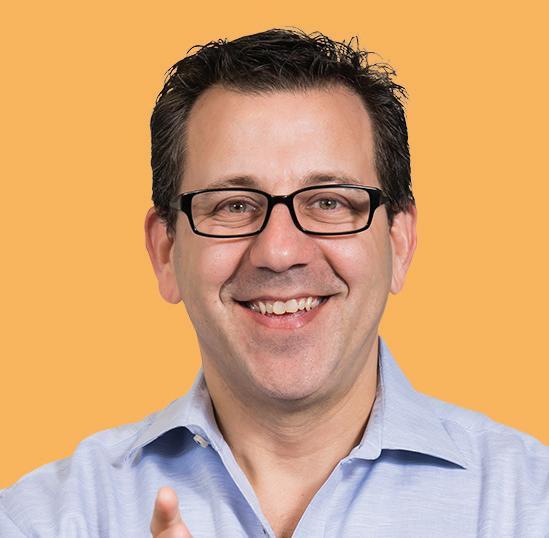
Marc Zwillinger, Founder, ZwillGen

The prediction markets are a completely different animal because there is an argument that the states can’t touch them due to preemption, but that issue is being litigated in several forums, with varying results. I don’t think it’s the prediction markets or standard DFS causing the tribes to push so much. It’s Pick’em games and sweepstakes.
As someone who has successfully defended Apple against the US DoJ, how realistic do you think it is that these ‘new wave’ forms of gambling –DFS, sweepstakes and prediction markets – will be able to remain part of the regulated US landscape in the long term?

That will entirely depend on the di erent types of games and operators. I think DFS is here to stay. All the studies and all the court cases are on the side of traditional DFS. I think DFS will remain legal in the US market. I think the sweepstakes and Pick’ems are on much more uncertain ground. Elsewhere, the Commodities & Futures Trading Commission under Trump looks like it’s going to allow prediction markets and event contracts, but that doesn’t mean that’s going to be the case long term. What we also know for sure is that some forms of legalized sports betting and non-gambling contests are here to stay in the US, no question about it.
As we know, VGW recently announced that they’re going to start paying sales tax revenue to states, something they’ve never done before. That’s obviously a play to try to be able to stay in the good graces of certain states and not get kicked out of the market(s) because they’re contributing tax revenue to the economy, and money drives everything. This is a new approach and maybe we will see more of this. Ultimately, however, DFS is not sports betting – and it’s also here to stay as regulated fantasy.
What would you say is the best way for sports betting operators to optimise their engagement during European football’s summer break?
The summer break is actually a golden opportunity for operators, if you know how to play it right. More than lling the calendar with lots of content, the focus should be on keeping the user experience dynamic. And for that, diversi cation is key. Just look at the global sports calendar: football youth tournaments, tennis Grand Slams, esports, it’s all happening. A standout event this year is the first edition of the FIFA Club World Cup. While it doesn’t replace domestic football in volume, it offers the perfect stage for marketing activities, whether it’s attracting new users, reactivating players or increasing the lifetime value of casual bettors. These kinds of high-profile, summer-located tournaments are exactly what operators need to convert entertainmentdriven interest into long-term engagement.
At BETBY, we also place a strong emphasis on our Betby.Games offering during this downtime. It maintains engagement with e-sim content that feels real and immersive, offering ultra-fast settlements and non-stop 24/7 action. We also encourage operators to use this period for deeper CRM campaigns: presenting bonuses, personalised bets and engagement tools that keep bettors connected, even when their favourite teams are resting.
With many recent updates across Asia from the UAE to Sri Lanka & Thailand, how do you anticipate the role of sports betting to proliferate in the region and what are your plans to grow into the burgeoning market?
Asia’s regulatory landscape is evolving rapidly. What we’re seeing is a shift from grey markets to more structured regulation in different countries. For example, Sri Lanka is advancing legislation to regulate online gambling platforms and Thailand has announced plans to explore legalisation, signalling a major change from its current situation.
This opens the door for global suppliers and operators to enter the region with greater clarity and stability, something that’s long been missing. For the past five to seven years, a handful of providers have dominated the space,
but the appetite for next-gen solutions and innovation is growing fast.
For BETBY, our strategy in Asia revolves around strong local partnerships and flexible technology that can adapt to varying regulatory and cultural requirements. We’re expanding our presence on the ground, investing in local talent and tailoring our sportsbook to reflect regional preferences, from kabaddi and cricket in India to combat sports in Southeast Asia. Asia is a collection of distinct markets and ecosystems, and we’re treating it that way.
Conversely, in LatAm, sports betting is already well established. How do your long-term strategies di er here?
LatAm is a whole other beast because it’s already deeply embedded in the sports betting space. What works in Asia, where you may need to start with education and trust, won’t work in Brazil or Mexico, where most players are well-informed and demanding.
Our LatAm strategy focuses on localisation and flexibility. That means offering a bespoke solution aligned with local preferences, markets tailored to national and regional leagues, and a hyper-personalised experience. Brazil is a great example. We’ve tailored our sportsbook to include unique regional sports like vaquejada – a rodeo-style sport popular in the northeast – showing our commitment to local relevance.
From a flexibility standpoint, our Bet Builder was developed to offer enhanced options

Sergey Tsukanov, Chief Sportsbook Officer, BETBY
across sports and markets. Not just football, but also basketball, volleyball and niche sports with regional traction. In Brazil, while football reigns supreme, there’s a strong following for other sports, and our Bet Builder enables operators to tap into that diversity.
Have you seen greater interest in Magnus Carlsen’s Brand Ambassadorship from the LatAm market, perhaps related to local players’ in uencer interest?
Absolutely – and it’s been a fascinating case study. Magnus’ global reputation resonates differently across regions and, in LatAm, particularly in Brazil – which ranks fth globally for registered users on Chess.com – we’ve seen a strong connection. Chess registered a major digital revival during the pandemic, and Magnus embodies the kind of competitive excellence that transcends borders and speaks to sports fans everywhere.
LatAm also has a vibrant influencer culture, and partnering with a name like Magnus opens doors for expansion and increased brand visibility. But beyond exposure, the real goal is to build credibility and foster an emotional connection with the audience.
Looking forward, what can you tell us about your roadmap for 2025?
2025 is shaping up to be another landmark year for BETBY. On the product side, we’re doubling down on AI, especially in personalisation, odds creation, risk management and operational e ciency. On top of that, we’re also expanding our Betby.Games portfolio.
Geographically, we’re continuing our global expansion. After securing GLI certification in Peru, we’re moving forward in LatAm with even more confidence and a regionalised approach. A bit further north, Ontario is also on our roadmap this year, representing a strong opportunity for us to grow in a well-regulated and competitive market.
Besides that, we’re putting a lot of energy in strategic partnerships and enhancing the overall betting journey. The goal is clear: to give operators the tools to deliver local, immersive and compliant betting experiences, no matter the market or the sport.

